

A FUTURE THAT BRINGS US TOGETHER
NO.119

In a challenging and constantly changing world, at Empresas Copec we believe that the future is built on responsibility, commitment, and the joint efforts of all members of society, understanding that every action and decision we make today has an impact on the legacy we will leave to future generations.
Therefore, through a long-term vision, innovation, and collaboration, we seek to leave a positive stamp on people, society, and the planet.
The future is built today and brings us together with a common purpose: To shape the world for future generations.
:
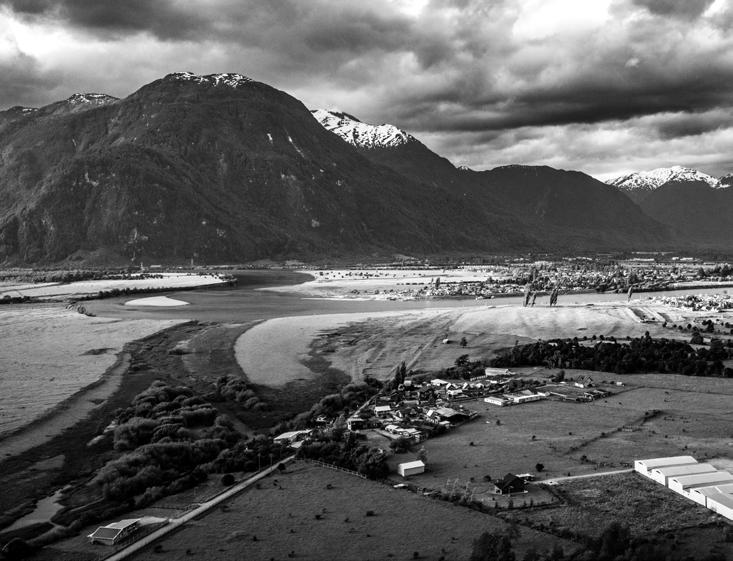
Expansion with a southern touch
Fiordosur, a company acquired by Nutrisco in 2023, plans its global expansion by growing its premium seafood offering and strengthening its presence in key markets such as Asia and the United States.
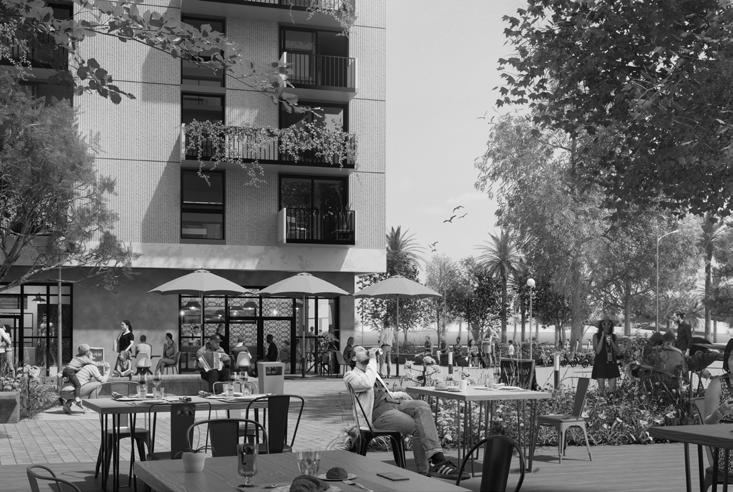
:
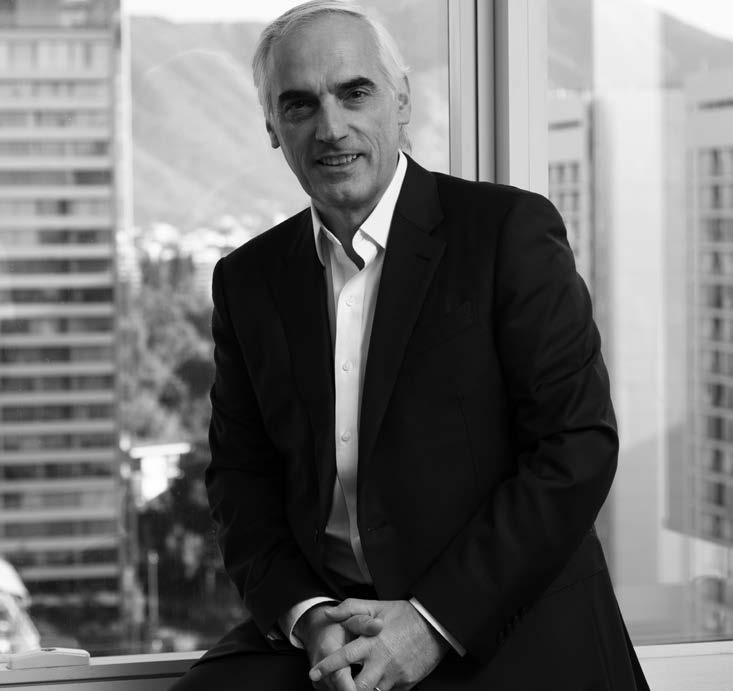
In his editorial “Conviction or nothing,” Eduardo Navarro, CEO of Empresas Copec, states that in order to move forward and grow as a country, we need agreements, purpose, courage, and, above all, a deep conviction to want to get things done.

: Coyanmahuida Park and the silent power of the fungi kingdom
Through the Bosque Abierto initiative, ARAUCO is restoring the native ecosystem affected by a forest fire in 2017, where fungi are regenerating the soil and bringing it back to life.

:

General interest: "The revolution of dialogue"
Poet, academic, writer, and communicator Cristián Warnken reflects on the crisis of conversation in Chile and calls for a return to civic friendship as the foundation of democracy.
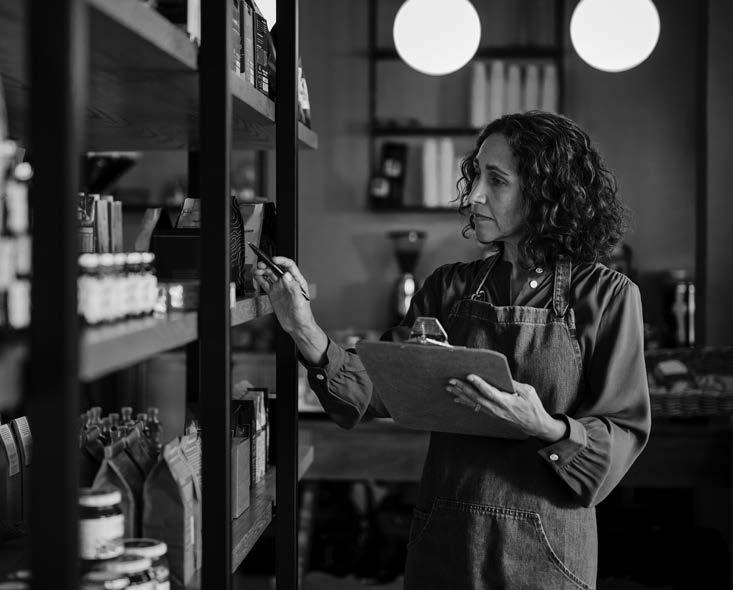
Led by Abastible, BCI, Entel, and Sura, the Grande Pyme corporation brings together efforts from the private sector and trade unions to open up new opportunities for the development of small and medium-sized enterprises in Chile.

Rodrigo Huidobro, CFO at Empresas Copec, analyzes the company's results as of June 2025, which showed EBITDA of US$1.489 billion and net income of US$437 million.
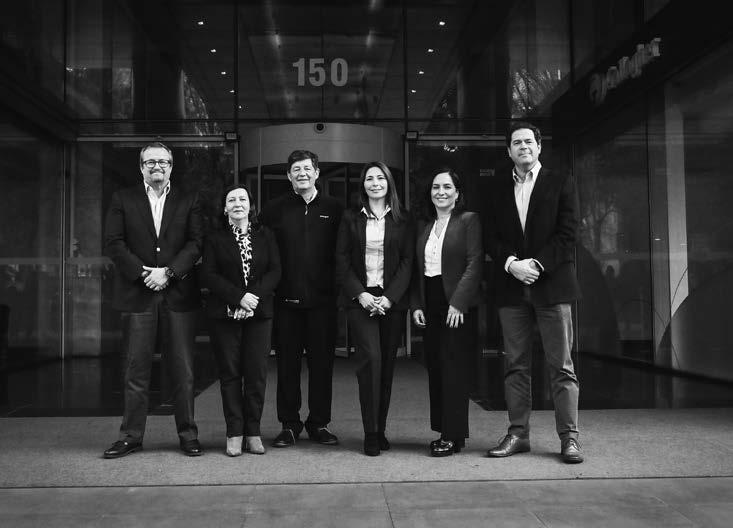
Six employees from Empresas Copec and its subsidiaries, who have been working for the Group for more than two decades, shared what has motivated and inspired them to remain with their respective companies for so long.
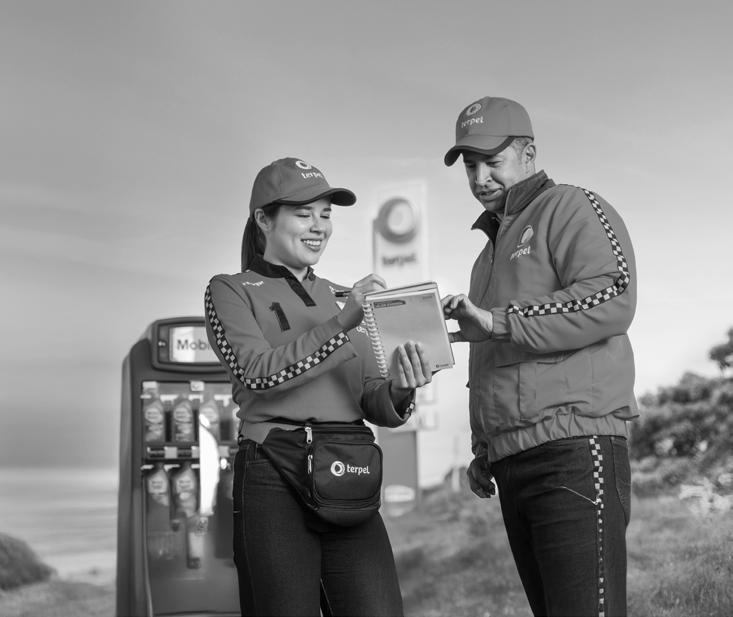
Copec subsidiary Terpel expands its energy and convenience solutions, strengthening its leading position in mobility and services in Colombia and the region.

: A successful rise in the Chilean energy market
Copec Emac consolidates its position as a strategic ally for non-regulated customers, combining 100% renewable energy with efficiency and digital monitoring solutions.

The Company and its subsidiaries experienced important milestones in terms of business, sustainability, innovation, and recognition.
:

and 1KO unveil a collection of scarves that combines Chilean dissolving pulp, local design, and biodiversity protection.
:
EDITORIAL
CONVICTION OR NOTHING
We are approaching a new election period. Chile faces a much deeper dilemma than choosing between very diverse ideological options. From what one experiences in the private sector, it would seem that the great challenge facing this enterprise called country is to build a roadmap for development that transcends and brings together a large majority. And that goal must be based on a basic but essential assertion: Chile is a country full of opportunities. What is lacking is conviction.
We have strategic natural resources and privileged geographical conditions, enormous human talent, and a
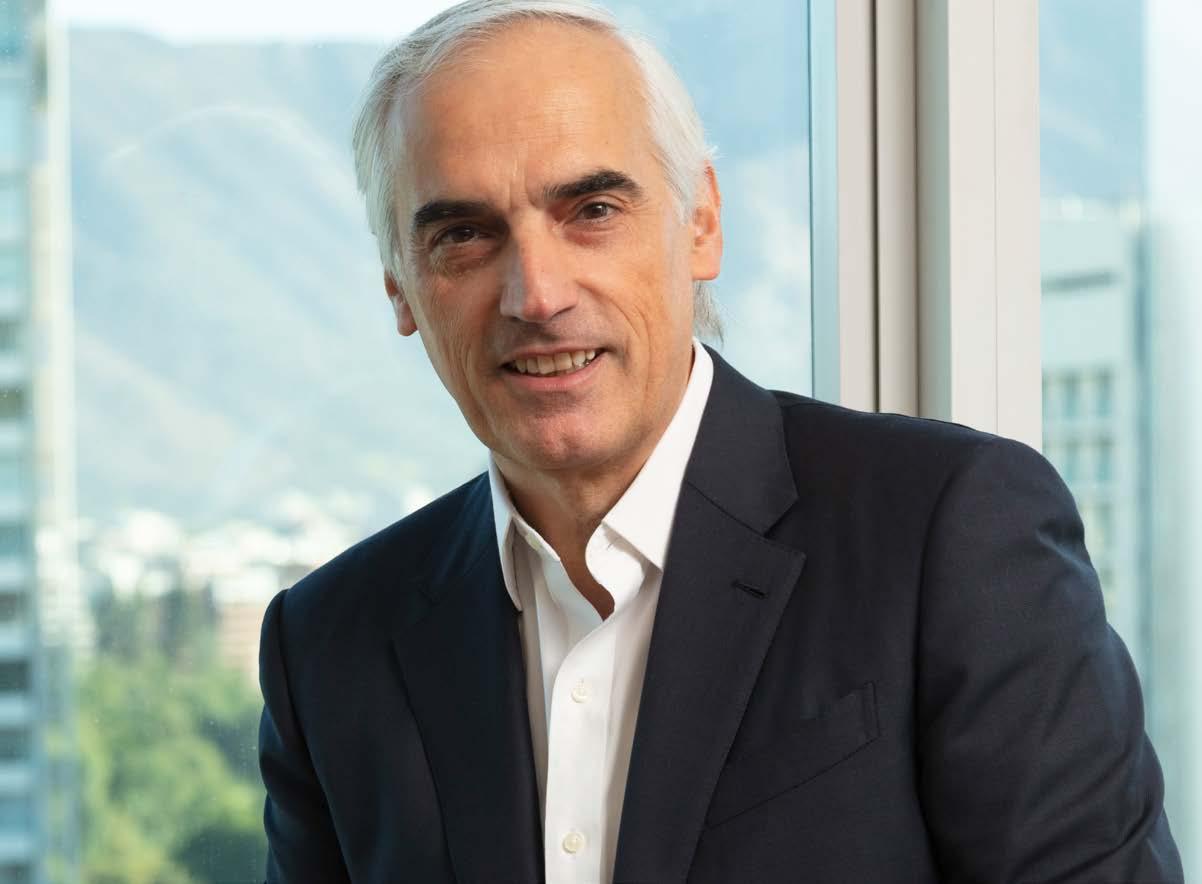
thriving and creative private sector. However, as it has already been said in this publication, we have fallen into the trap of short-termism, institutional fragmentation, excessive ideology, and conformism, which has robbed us of our ambitions and goals.
Demanding more of ourselves means raising our future aspirations and achieving them means growing. The issue of economic growth, indispensable for addressing the social urgencies we face as a society, has been regaining the relevance it should never have lost. One of the most direct consequences of slower
growth is reflected in the labor market, where the important thing is not to describe its current state with adjectives. What is transcendental is that the unemployment rate is close to 9%, in a context where no new jobs are being created, the number of discouraged workers (people who have stopped looking for work) is increasing, with young people and women that, in percentage, are still facing greater difficulties in entering the labor market; informal work is growing, and the emergence of new phenomena, such as the tension generated by technological transformation -accelerated by
_ IN THE PHOTO: Eduardo Navarro Empresas Copec CEO.
artificial intelligence- poses a challenge not only for the lessskilled workforce.
Why have we accepted this as normal? Why not aim for a significantly lower unemployment rate? Just over a decade ago, unemployment hovered around 6%, and today the OECD average is below 5%. However, in Chile, we have lost the ambition to return to those levels, settling for celebrating when the unemployment rate drops a few tenths of a point.
Behind these official figures are nearly a million people without formal employment, with all that this means for their families, their life plans, and their social protection. Promoting the sustainable creation of formal and decent jobs is not only a tremendous social urgency, but also a moral obligation.
In this context, good politics, the one that allows for guidance and consensus building, has an irreplaceable role to play. And that is why, at this electoral juncture, it is crucial that leaders rise to the occasion. Citizens have shown that they value agreements that allow to move forward. Democracies around the world are undergoing a crisis of legitimacy, eroded by a lack of specific responses and the discrediting of their institutions. Chile is no exception. Recent cases that have
We are approaching a new election period. Chile faces a much deeper dilemma than choosing between very diverse ideological options. From what one experiences in the private sector, it would seem that the great challenge facing this enterprise called country is to build a roadmap for development that transcends and brings together a large majority.
affected the image of a wide range of institutions, amid the security crisis, not only generate uncertainty but also weaken social cohesion and confidence in our system. This is where leadership with a sense of State is required, that is, working on long-term solutions at the same time as immediate measures, with the participation of multiple social players who will provide stability over time to the consensus reached.
But it is not enough to talk about growth. It is also necessary to promote it with conviction. And that means making decisions that pave the way, even when the context is challenging. How could we, from this holding company, forget the case of authorities who have taken an interest in promoting and facilitating investment initiatives? At the time, it was the authorities from the state of Michigan, US, who were looking to lead an ambitious forest industrialization process, as the years passed by, and their forests were growing and needed to be transformed into value. That is where the panel mill that ARAUCO built in Grayling was born. Or, more recently, the authorities in the state of Mato Grosso do Sul, Brazil, who wanted to transform that region in the “Pulp Valley”, thus giving rise to the Sucuriú Project, currently under construction. Or when authorities from municipalities such as Madrid and Bilbao say that they are doing everything they can to attract investment and win it over from other cities.
This requires clear signals of how knowledge and entrepreneurial capacity are valued. Authorities who understand that the role of the public sector includes bringing together the private sector and making it easier for them to exercise all the magic of doing business, convinced of the positive impact on well-being, and without neglecting, of course, compliance with regulatory standards.
It seems that in Chile we are far from this perspective, and we still see many projects caught up in a web of permits, observations, delays, and judicial processes that end up delaying, in some cases preventing, and certainly discouraging investment.
Why not think of a system that guarantees the evaluation of permits in a much shorter and more certain period? Why not professionalize, digitalize, and simplify the processing procedures once and for all? We need a State that accompanies, facilitates, and acts as a strategic partner for growth and development.
Today, there are investment projects in infrastructure, mining, and other areas, totaling tens of billions of dollars, that could be unlocked to the extent that our institutions allow. In this context, it is worth noting that CPC, Chile's Confederation for Production and Commerce, recently released a document with 50 tangible proposals to boost
economic growth, investment, and employment in Chile, with ideas that address this issue, as well as tax stability and regulatory efficiency.
We need to agree on a vision for the future that allows us to define a common national project, one that focuses on quality education, social cohesion, institutional modernization, and environmental sustainability, among other issues. One that acknowledges our strengths -such as those in the forestry industry, responsible mining, and energy transition, among others- and proudly promotes them. One that makes quality employment a cross-cutting priority and defines the private sector as an ally in building a better Chile. One in which companies are strategic and indispensable partners in tackling major long-term tasks.
At Empresas Copec, we believe that development is not possible without a clear purpose. And our purpose is precisely that: to shape the world for future generations. But that will only be possible if we are able to imagine, together, the world we dream of and work decisively to achieve it.
The time is now. Chile has everything needed to move forward; our history shows that we are a society of efforts. But we need purpose, agreements, and courage. We need to move forward and change many things, but perhaps the first of these is not related to laws or other formalities, but rather lies within us. It is simply a matter of a deep conviction to want to get things done.
At Empresas Copec, we believe that development is not possible without a clear purpose. And our purpose is precisely that: to shape the world for future generations.
But that will only be possible if we are able to imagine, together, the world we dream of and work decisively to achieve it.
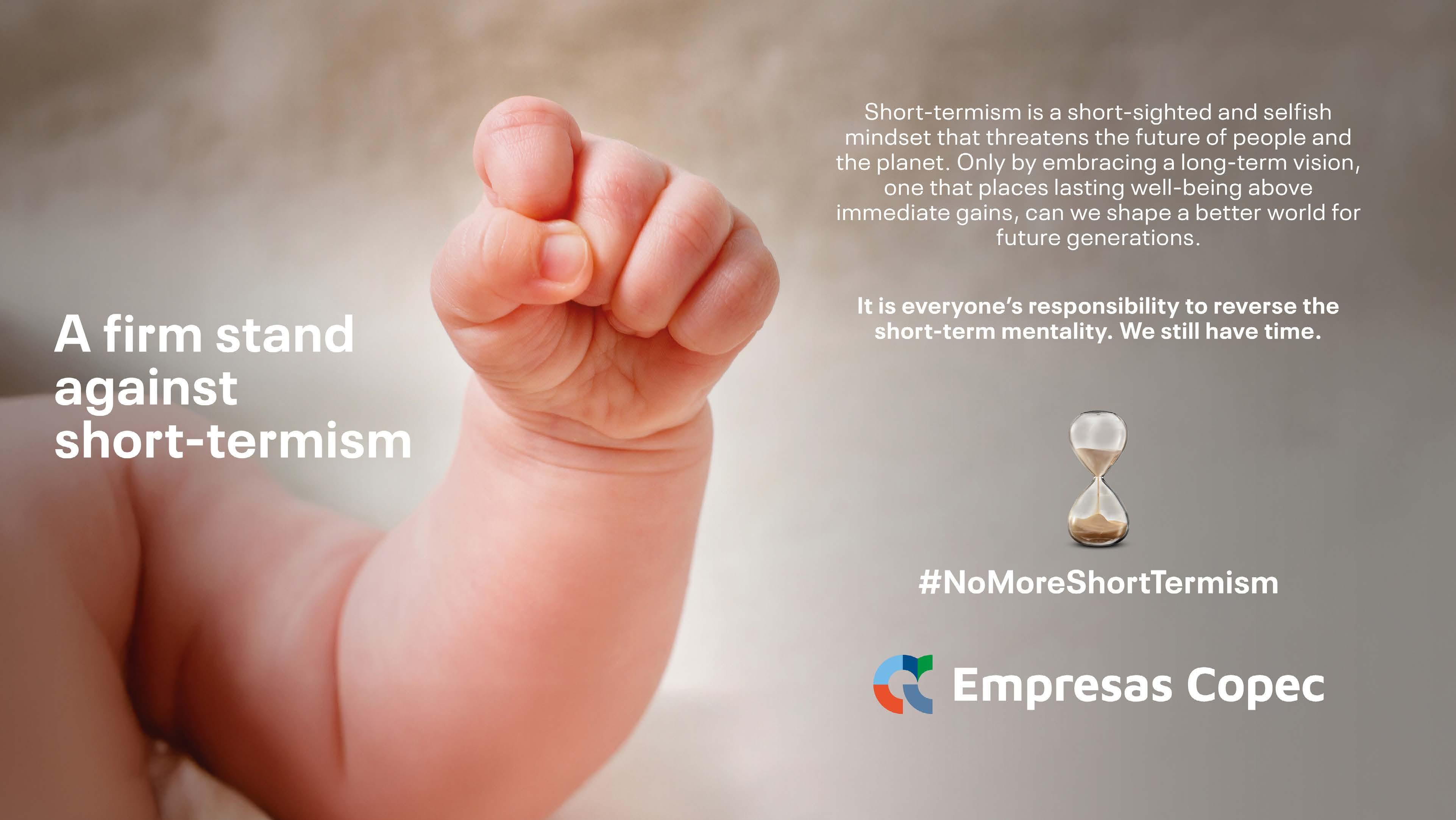

In this column, Cristián Warnken reflects on the crisis of conversation in Chile and calls for a return to civic friendship as the foundation of democracy.
opinion: general interest
THE REVOLUTION OF DIALOGUE
By Cristián Warnken
Poet, literature professor, column writer for El Mercurio and communicator. Creator and host of programs such as “La belleza de pensar” (The beauty of thinking) and “Desde el jardín” (From the garden).
Director of “País Humanista” (Humanistic Nation), Universidad San Sebastián.
In his book “Arqueología de lo cotidiano” (Archaeology of everyday life), Chilean philosopher Humberto Giannini explains why dialogue -which he distinguishes from conversationis indispensable in a community:
“It is because the usual routine communication is seriously clogged in its discourse. Or because it is frankly in crisis, that dialogue becomes indispensable (...). A break in the “modus vivendi,” in the routine course of things. Transgression to its unreflective way of being.”
And then he says: “But we speak here of a true dialogue, as opposed to the dialogue of the deaf in which no one is exposed to the intrinsic quality of the other's argument (...).”
Giannini invites us to treat ideas more as guests than as personal
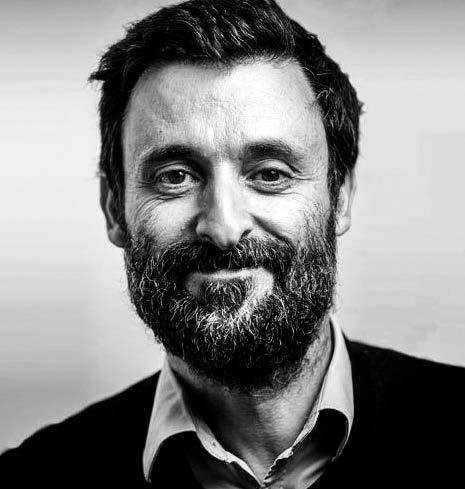
possessions: by a conscience that knows how to “let them go”, which, it must be said, proves to be especially difficult when it comes to matters of faith (…).”
According to Giannini, “for political argumentation, in which the earthly interests of individuals are at stake, the establishment of a dialoguing society is a moral imperative. Nothing less is at stake here than the humanity of the being that only through the 'logos' is man.”
“Chile does not need more revolutions (from one side or the other), but to ‘lower the revolutions.’”

_ IN THE PHOTO: Cristián Warnken Poet, literature professor, columnist for El Mercurio, and communicator.

Giannini's reflections, written several decades ago, seem to me to be absolutely valid in today’s Chile. Conversations in our society are at crisis, contaminated by what Spinoza called “sad emotions” (resentment, hatred, anger, etc.). These are tense times in which we either do not talk enough (in the family, in the neighborhood, in schools) or we do not know how to talk at all. Giannini himself defines conversation as one of the highest forms of human hospitality. To converse is to offer hospitality to the other.
We are not being hospitable, and we cannot be so if our society is impacted by suspicion, loss of trust and fear. The deterioration of the web of conversations that constitutes a community weakens that community from within; and, on the other hand, the irruption of “digital communication” in our lives has meant that, rather than “communities,” there are now “swarms” (as the Korean-German thinker Byung Chun Han asserts). The problems of
school coexistence (including violence in schools), the arguments that end in violence and even death in the streets (something that has become commonplace), among others, are some of the symptoms of a sick society that must be addressed. This has worsened after the pandemic and also after the social uprising, but it is something that has been incubating for decades.
If the space for conversation has deteriorated in everyone's daily life to this point, it is here when dialogue becomes indispensable, as a sign that elites must provide to a society sick with a lack of communication, as a pedagogy or “paideia,” that shows that listening to the other is possible and effective. Dialogue in these times, Giannini reminds us, is a “moral imperative.” But our elites are failing on this point and the signs they give every day go in the opposite direction: within the conversation of the political class prevails disqualification and caricaturizing the other, considering the adversary as an enemy to be destroyed, favoring communication through

social networks rather than face-to-face conversation and dialogue. The elites, that should be role models or benchmarks of dialogue (to be a politician is also to be an educator), are today becoming negative role models. Aristotle places friendship at the center of philosophy and politics, and says that friendship is a community of actions and thoughts. It is this friendship, civic friendship, which, due to a lack of dialogue, is damaged and urgently needs to be repaired.
For the German philosopher Hans Gadamer, the experience of the world is, from the very beginning, an experience of otherness. And how does this experience of otherness place? in conversation, in dialogue? For Gadamer there is no experience, no possible language, outside of dialogue. But what we have today are not dialogues, but autistic monologues of “tribes” closed in on themselves, feeding back their own prejudices, gazing in the mirror, a shattered mirror that reflects back a broken image.

Models of genuine conversation and dialogue are scarce. It is worth remembering this dialogue between Socrates, the old master, and Philebus, the young disciple. Philebus, exposing a point of view on something, says: “This is my opinion and I will not deviate from it,” with the characteristic arrogance of youth. Socrates answers serenely but categorically: “At least here and now, we will not strive for the triumph of your thesis or mine, but we must ally the two of us in what appears to us as the truest.” Magnificent response from the master: there is nothing more dangerous than believing that one “possesses” the truth or a truth: truth is built, discovered, it appears in the journey together that is dialogue. Today, Socrates are scarce and Philebus abound. And young people (the Philebus of our time) do not have before them role models like Socrates, therefore, intolerance and cancellation prevail, even in the hallways of universities, which beyond being “temples of knowledge” should be “temples of
“There is nothing more dangerous than believing that one ‘possesses’ the truth or a truth: truth is built, discovered, it appears in the journey together that is dialogue.”
dialogue.” But today, people read more Carl Schmitt (who spread the idea of the adversary as an enemy to be destroyed) than Socrates (via Plato) or Giannini or Jorge Millas. In his speech as rector at Universidad de Chile, Andrés Bello stated that in the university “all truths touch;” he was referring to the need for interdisciplinary conversation. Today, unfortunately, in our universities, different truths seem not to touch, but to attack and exclude each other.
Is this pure poetry? No. Rather, it is pure philosophy and “pure” politics. Western philosophy, in its foundations, was built this way, and so was politics
and, of course, liberal democracy as we know it, when it replaced war. But today, it seems to yield more electoral benefits to bring the war into the political dialogue, and politicians are playing with this approach, but are playing with fire.
Socrates revolutionized Athenian society through dialogue, and this led him to martyrdom. There are examples in the 20th century of revolutions through dialogue that have not ended with their promoters in martyrdom and that have allowed societies to emerge from moments of polarization and confrontation. There is the outstanding example of Nelson Mandela, leader of South Africa, who came out of prison and crossed the street to visit his “enemy,” the head of the white government that had kept him in prison for years, to drink tea with him and change the course of history. Or the example of an important leader of the Latin

American left, former president of Uruguay, “Pepe” Mujica, who also crossed to the other side, leaving behind the hatred and rage of the guerrilla, to go and talk with his adversaries. His tributes to his political opponents are remarkable: exercises of admiration that are scarce around here.
The two failed constitutional processes could have been magnificent schools of dialogue and spaces for agreements and encounters. But the left and the right missed that possibility. We witnessed -more in the first than in the second process, it must be said- a “dialogue of the deaf in which nobody was exposed to the intrinsic quality of the other's argument (...)” -as Giannini says. It is believed that reaching agreements and engaging in dialogue is
being “unadventurous,” and those who take the risk are accused of being cowards. In reality, true courage is that of those who dare to treat their own ideas - as Giannini says - more as guests than as personal possessions. The same philosopher describes the difficulty of this task: “Letting go of ideas is extremely arduous for matters of

faith (...).” Consequence is confused with attachment to one's own ideas when, in order to make real politics, it is necessary to consider these ideas as “guests.” And the problem is that politics -contaminated by ideologies, where certain ideas are absolutized - has become a sort of substitute for religion. Hence the “crusades” and “religious wars” that abound in the political conversation, not only in Chile, but in the world.
Before being loyal to one's own ideas, one must be loyal to democracy. That was scarce -for example- in the 2019 social uprising, where in some sectors the loyalty to democracy itself failed. This was tried to be repaired with a constitutional process, but instead of giving a dialogic drift to the conflict, it reproduced the tribal logics of the street in the constitutional discussion.
“We are not being hospitable, and we cannot be so if our society is impacted by suspicion, loss of trust and fear.”
Chile does not need more revolutions (from one side or the other), but “lower the revolutions” and sit at the table or rebuild the severely damaged dialogue table. That is the only revolution we need. The revolution that Chile needs -to recover the path of comprehensive development, not only economic, but also social, cultural and political. It is the revolution of dialogue. This requires courageous leaderships that “burn” their political capitals, that take risks, that take the leap of conscience that every certain time our democracies must take to reconstitute and rebuild themselves from the foundations of civic friendship.

When will this be possible?
As Neruda cried out in his nostalgic poem about Chile: “Chile, oh, when and when will I meet you?” Our nostalgia must be that of reunion, of hospitality in conversation and dialogue, of the Socratic search for the truth built among different and “legitimately others,” as Humberto Maturana repeated ad nauseam. To teach the young Philebus to walk together with his adversary to search or build together a shared truth, a common sense.
Cristián Warnken Winter 2025
What has kept these six employees at Empresas Copec and its subsidiaries for more than two decades?
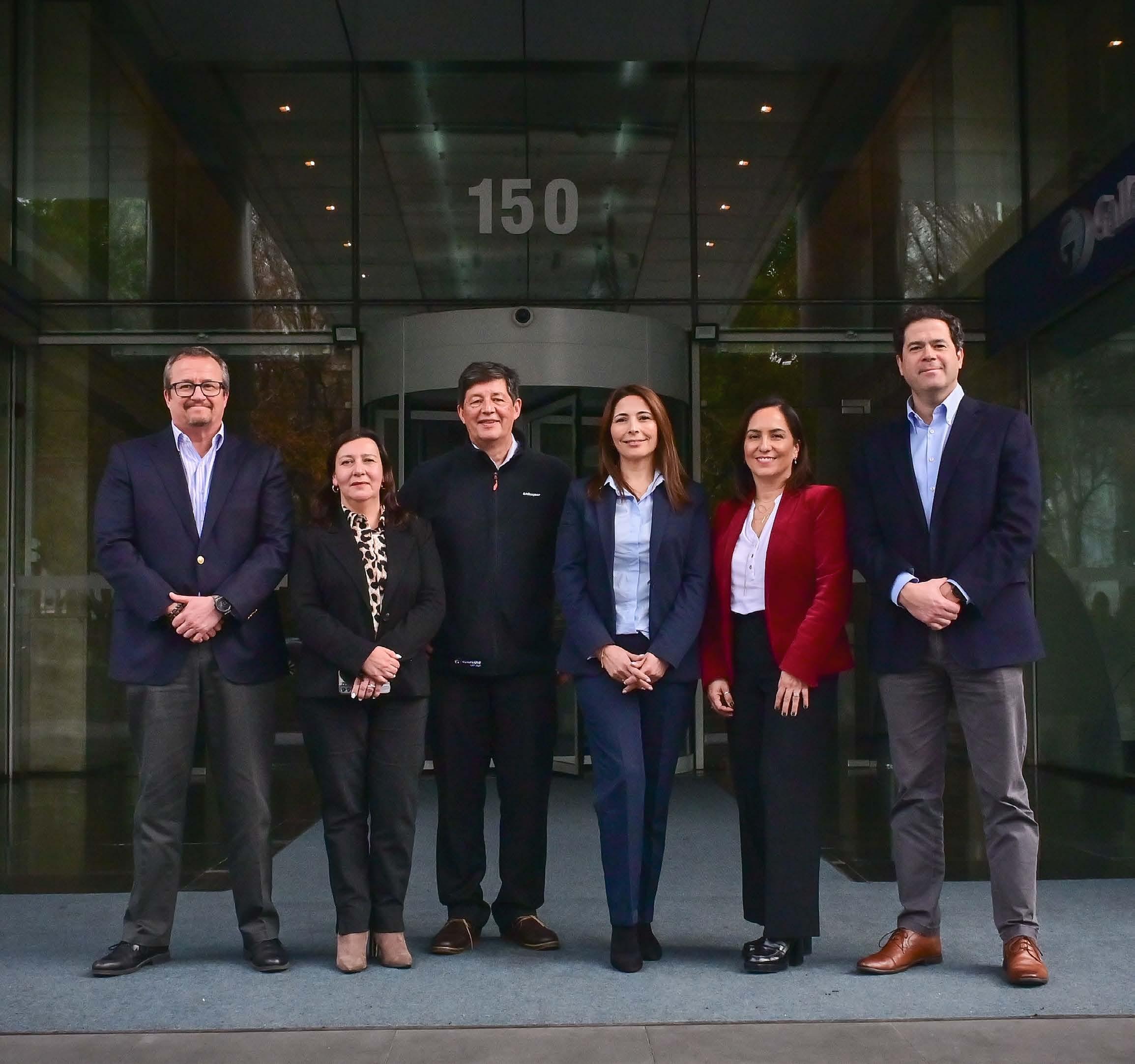
empresas copec roundtable: with first and
A LONG-TERM COMMITMENT
Six employees, who have been working at Empresas Copec and its subsidiaries for more than 20 years, shared stories, anecdotes, and what has kept them at the Group for decades.
In an entertaining, honest, and emotional conversation, they all agreed that the values and people of the holding company are the main reason for their long-standing commitment and motivation, which continues to this day.
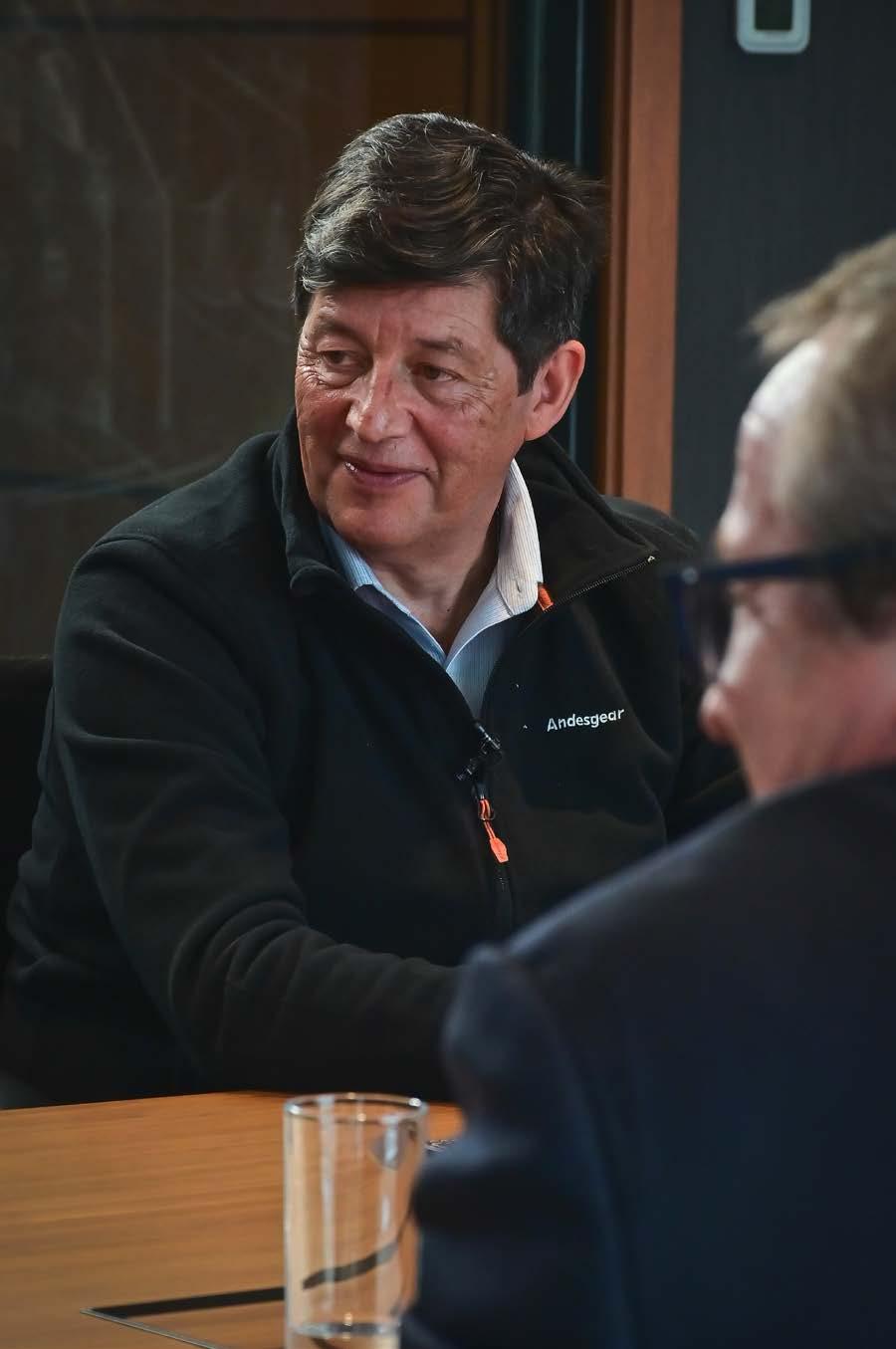
This new roundtable brought together Juan Carlos Avilés, Head of Collections at Abastible; Marcelo Bennett, Treasury Manager at ARAUCO; Pamela Bórquez, Integrated Management and Quality Manager at Nutrisco's Seafood Business Unit; Carina López, Head of Customer Service at Copec; Alfonso Rivas, Business Manager at Alxar; and Marcela Rojas, Head of Administration and Well-being at Empresas Copec.
The meeting was hosted by Francisca Riveros, Chief Communications Officer at Empresas Copec.
The starting point
On August 18, 2025, Juan Carlos Avilés celebrated 39 years working at Abastible. It has been his only job since graduating as an accountant auditor from Universidad de Talca. “I love being at Abastible, where I have participated in many projects. Outside of work, I have also done many things: I have participated in a sports team, a folk group, and community activities, among others. In addition, I fully identify with and am passionate about the company's purpose,” says Abastible's head of collections.
Marcela Rojas, an accountant auditor from Universidad de Concepción, began her relationship with the Group in 1996, when she joined for her professional internship at Celulosa Arauco y Constitución, located in the latter city, where she is from. After graduating from university, she moved to Santiago. That is how she came to Copec in 2004, and a year and a half later, to Empresas Copec, where she has spent practically her entire professional
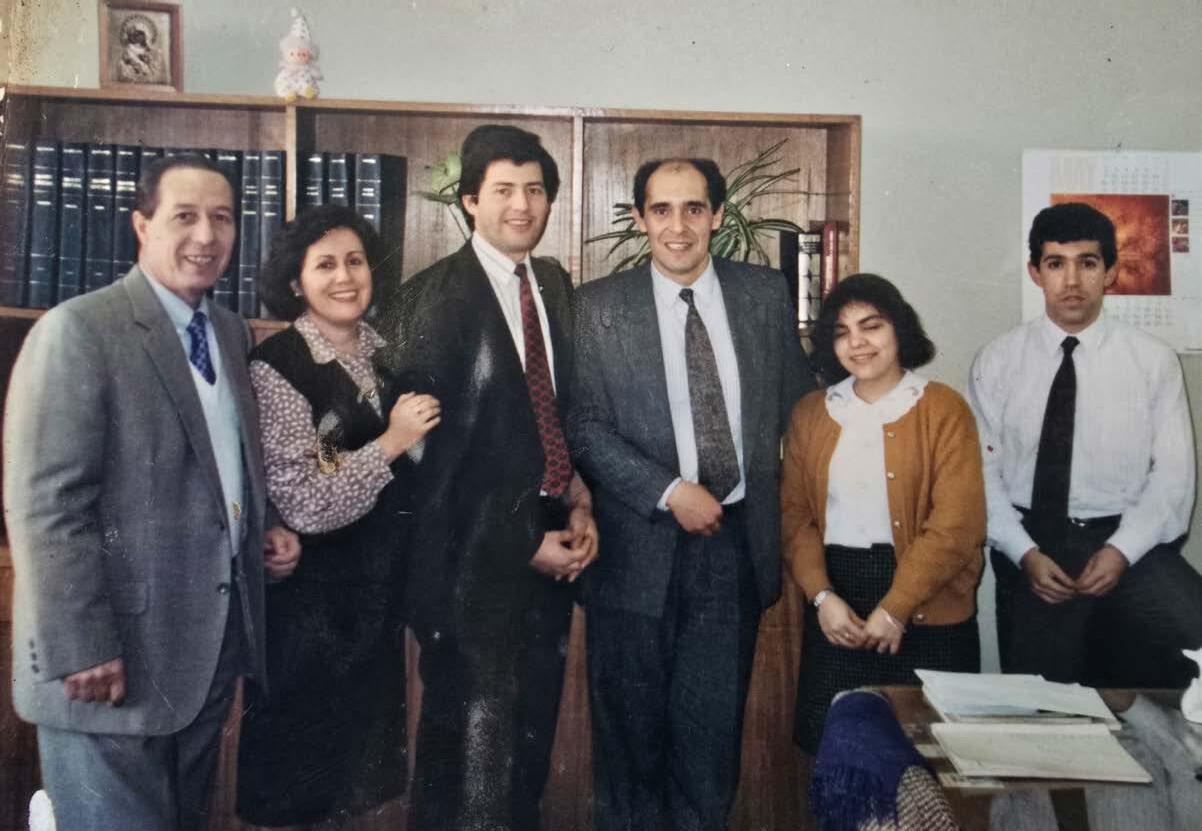
career. “I started as an accounting analyst, then became a supervisor and then head of the department. But at some point, I became interested in Well-being issues, an area in which the Company has allowed me to train and learn, and which I am now proud to lead as head of Administration and Well-being,” she says.
In 2003, Pamela Bórquez, a food engineer from Universidad Austral, left her hometown in Valdivia to move to Coronel to work at SouthPacificKorp (SPK), a company that merged with San José in 2010 to give rise to Orizon, which is now part of Nutrisco. “Fresh out of college, I joined the Quality department. At that time, we produced 400,000 cases of canned goods in a very small plant. Today we make almost three million,” she says with pride.
IN THE PHOTO:
Juan Carlos Avilés Head of Collections at Abastible.
IN THE PHOTO:
Juan Carlos Avilés with his team, in 1990.
with the
On April 25, 1994, ARAUCO welcomed Marcelo Bennett, a young man who had just graduated from Commercial Engineering at Universidad de Santiago. During his career, he has worked mainly in Finance, although he spent eight years in the Commercial Department. “With my wife, I have the same 31 years of relationship, as I started dating her the same year I joined ARAUCO. I got married three years later, so these are my two great relationships,” he says, sparking laughter from the other participants.
For 27 years, Alfonso Rivas has worked at several companies within the Group. In September 1998, the Commercial Engineer from Universidad Católica joined Sigma; in 2002, he joined ARAUCO; in 2009, he joined Guacolda; and since 2014, he has been at Alxar, where he currently serves as Business Manager. “I joined the Group in 1998, the same year I left university and met my wife. So my work and family life have always gone hand in hand,” he says.
Carina López joined Copec 24 years ago as a Customer Service executive in a small call center with five employees, in a field that had nothing to do with her profession as a social worker with studies in accounting. She then became supervisor of another contact center, which grew from five to 25 employees. During her career at Copec, she has had up to 100 employees under her supervision. “These have been years of learning, development, and many challenges. I am very proud to belong to Copec.”
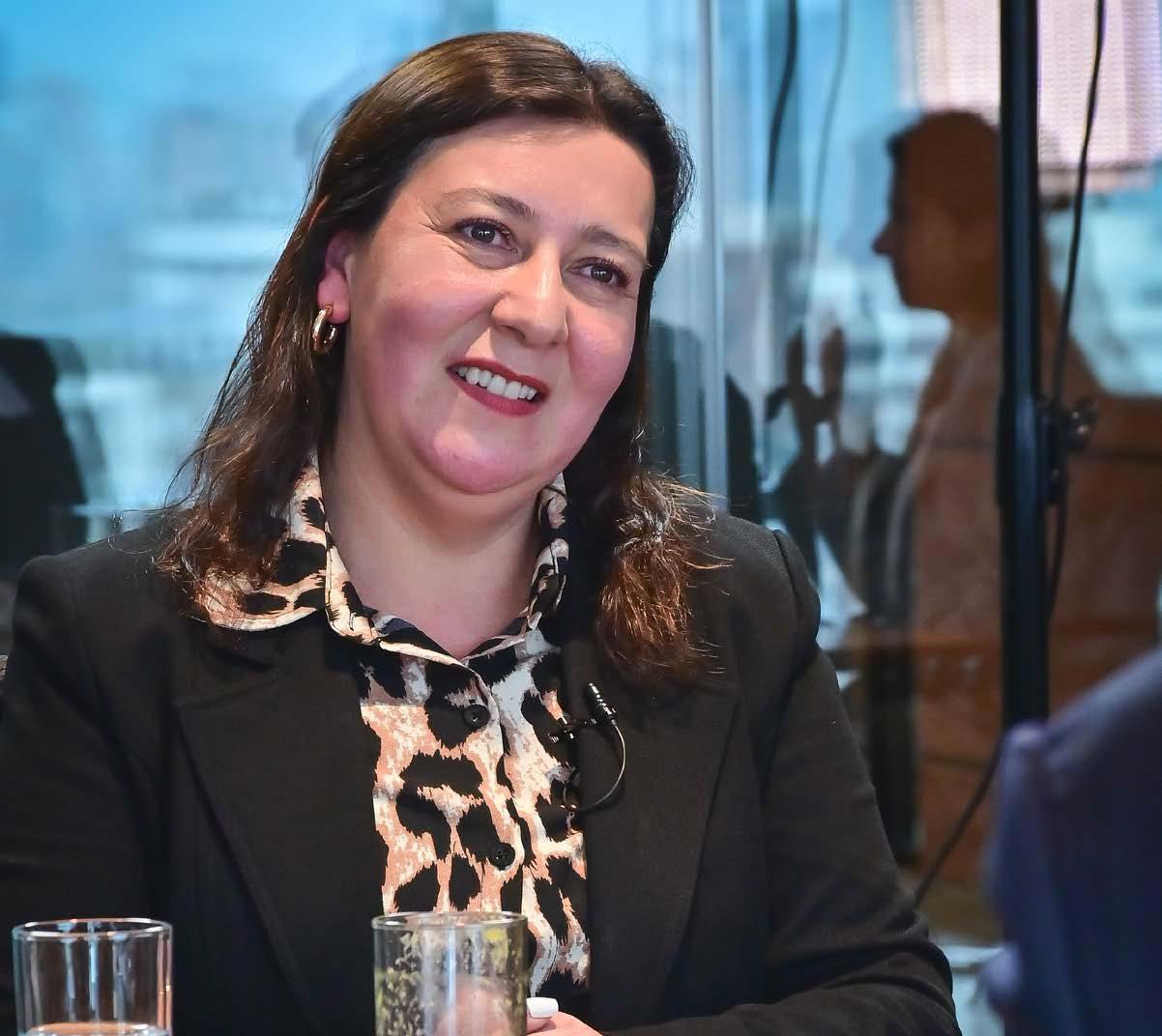
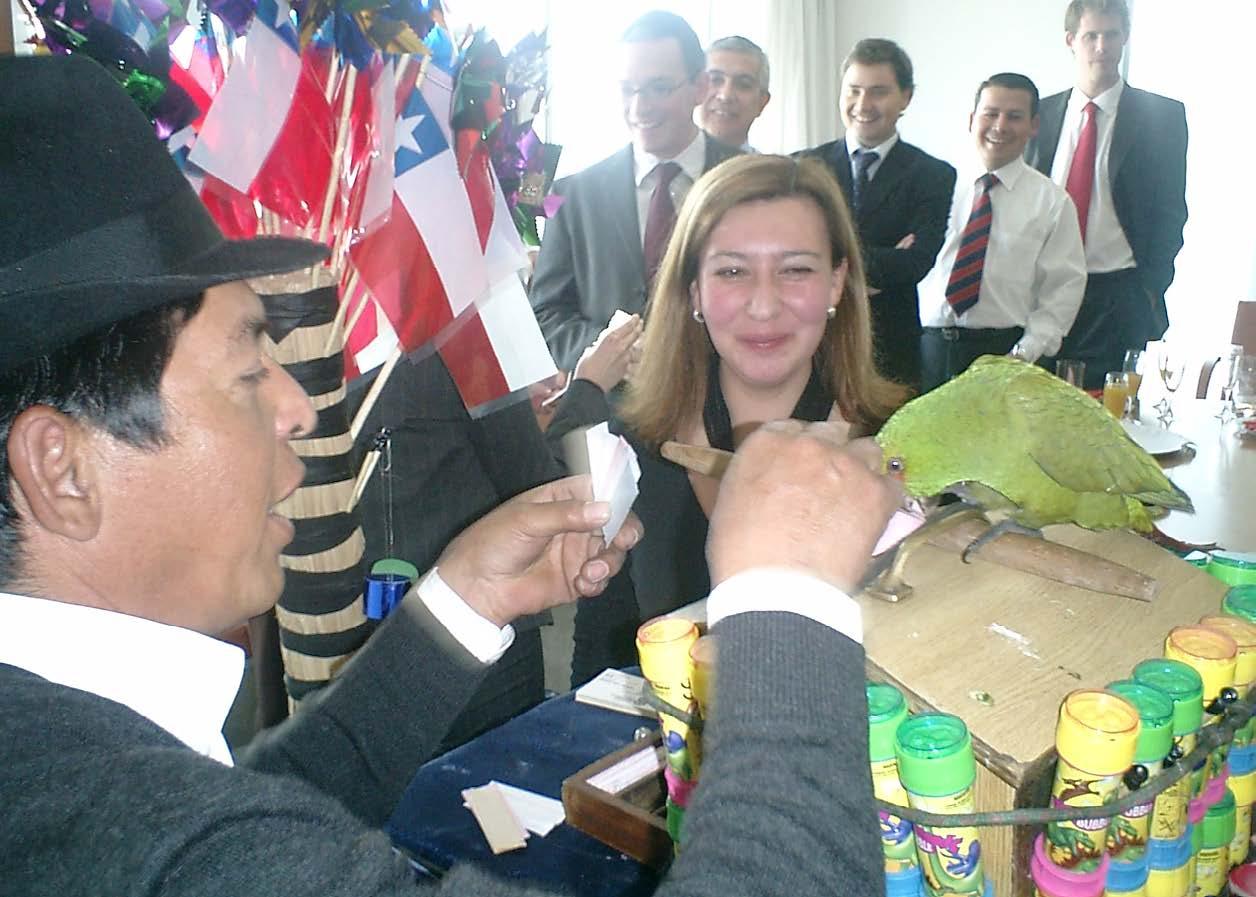
What has kept them at Empresas Copec and its subsidiaries for decades?
The answer is unanimous: the people and values.
_ IN THE PHOTO: Marcela Rojas Head of Administration and Well-being at Empresas Copec.
IN THE PHOTO:
Marcela Rojas during a National Holiday celebration in 2006.
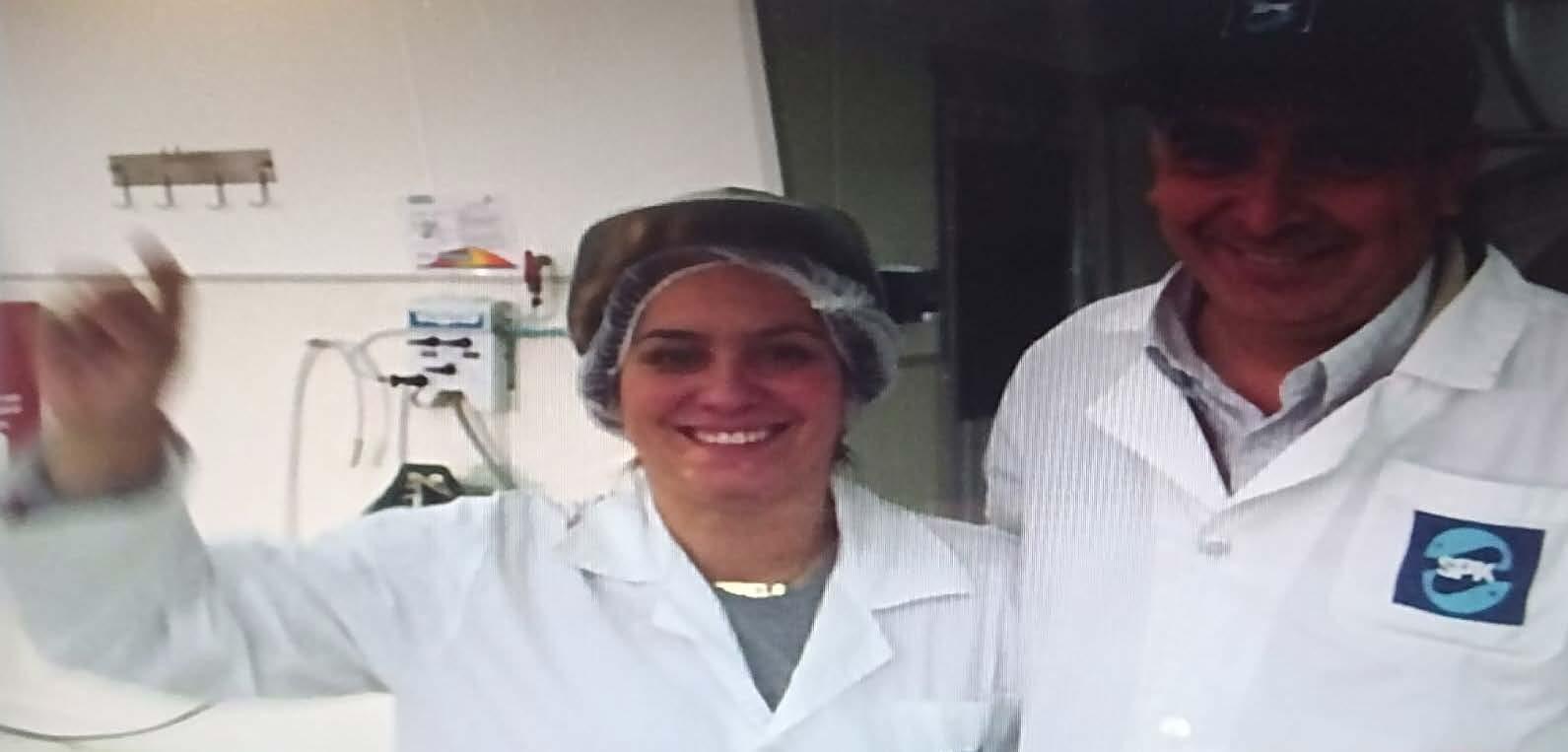
A lunch with Don Cleto
Having worked at Empresas Copec and its subsidiaries for so long, brings with it numerous stories and anecdotes, such as those of three participants who met Anacleto Angelini, founder of the business group.
Marcelo Bennett recalls that in the early 2000s, after a very important financial transaction, he was invited to lunch with Don Cleto, as he was known to those close to him. “I was lucky enough to meet him. I remember him as a very simple and kind person, who was always concerned with making us feel comfortable. And that's when I understood where the hallmark that we still have today in the Group comes from.”
Alfonso Rivas, who also had a few encounters with the founder of Empresas Copec, agrees: “Yes, he was a very simple, very approachable man, a visionary. And I also believe that something of his character clearly remains to this day: in the executives, in the workers, in the way everyone is treated equally, regardless of hierarchy or position.”
As an anecdote, Marcela Rojas recalls that she was only eight years old when she met Don Cleto. “It was in 1985, in Constitución. My dad worked at a hotel in the area where I spent a lot of time. And once Don Anacleto stayed at the hotel and my dad, who served him, introduced him to me. I remember that he was very tall, imposing, and I was amazed to meet the owner of a plant that was changing the history of Constitución, bringing so much development to such a small city.”
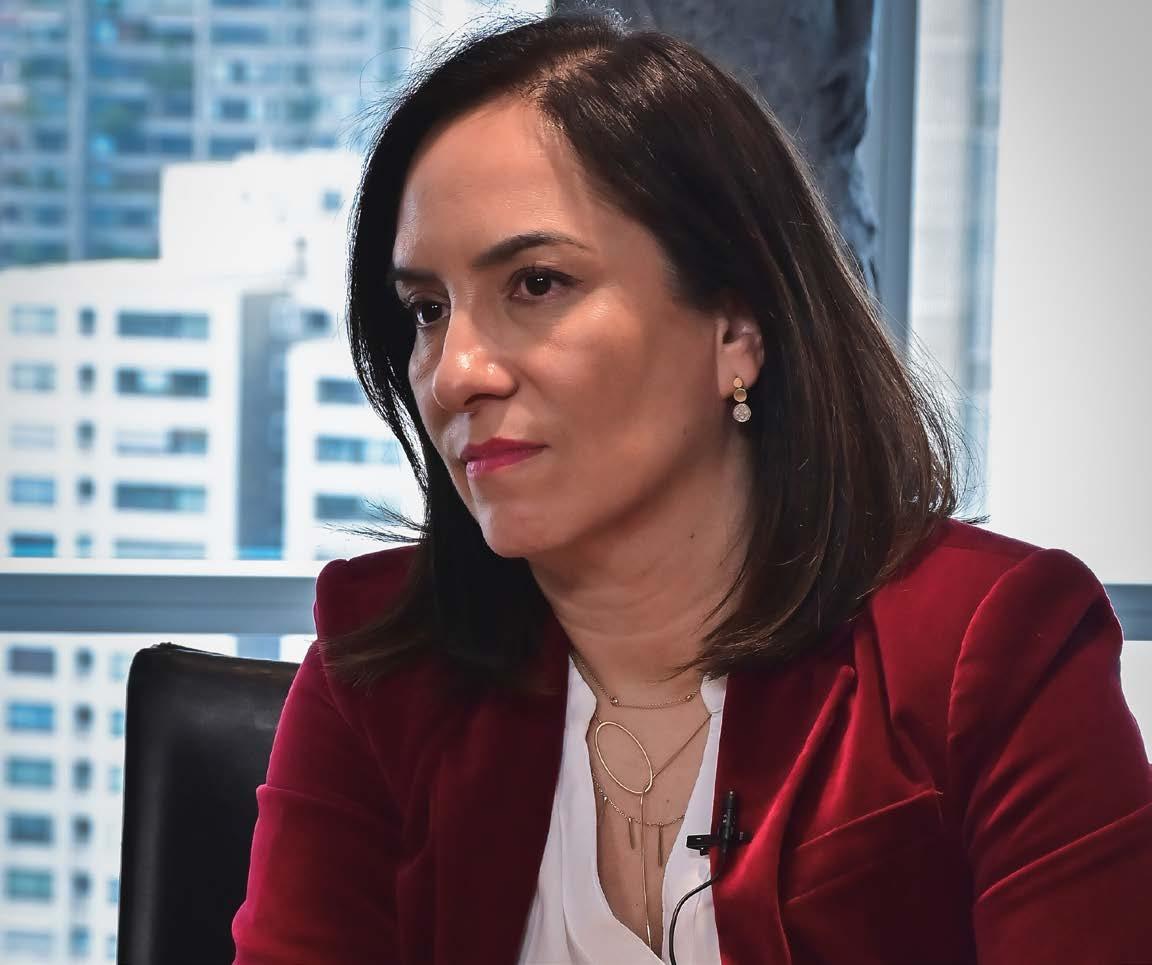
IN THE PHOTO: Pamela Bórquez Integrated Management and Quality Manager at Nutrisco.
_ IN THE PHOTO: Pamela Bórquez during her early days at SouthPacificKorp (SPK) in 2007.
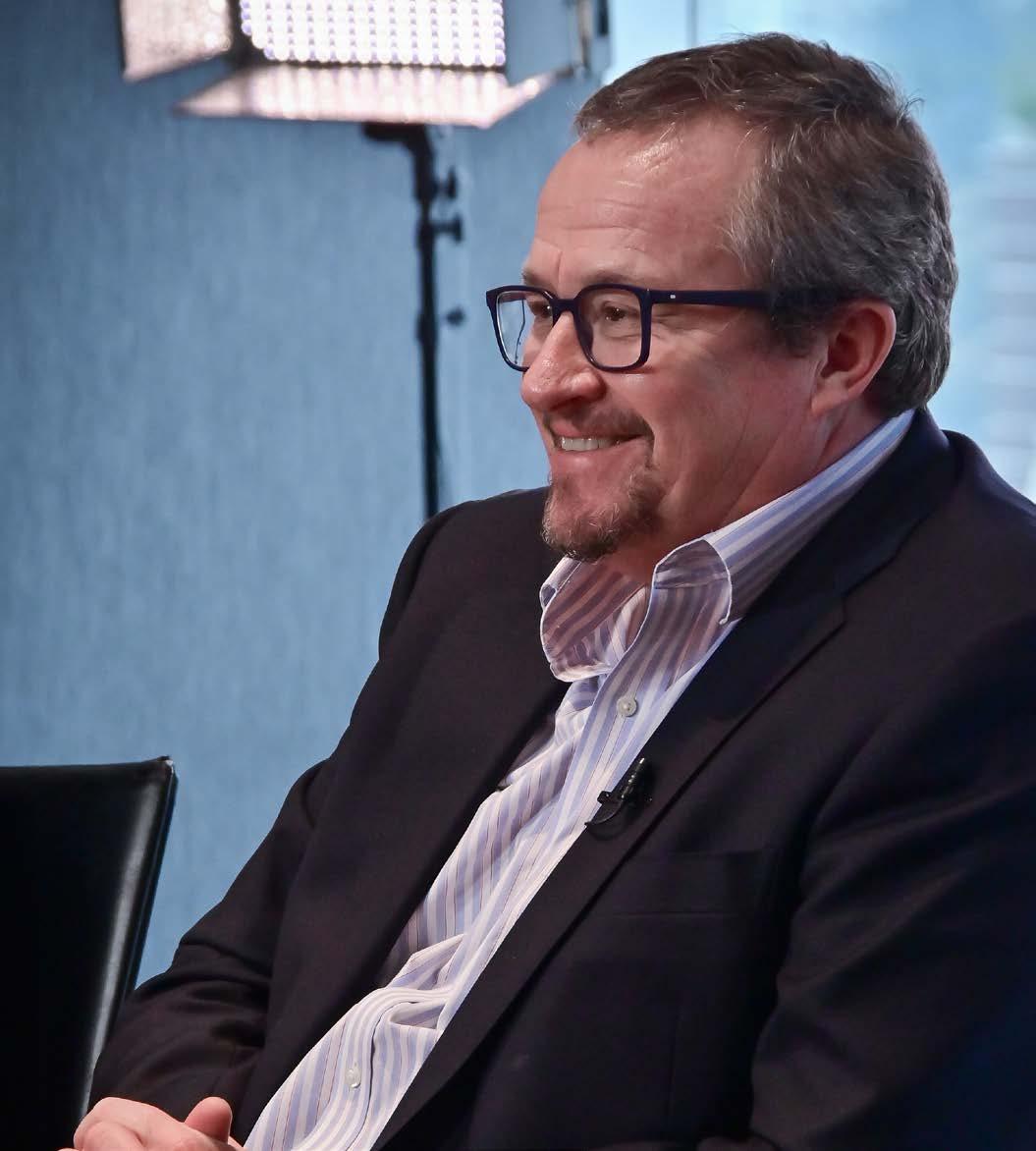
-
Decades of transformations
Internationalization, growth, new technologies, and ways of communicating are some of the developments and transformations that Empresas Copec and its subsidiaries have undergone throughout their history. Pamela, Marcelo, Carina, Juan Carlos, Alfonso, and Marcela have witnessed several of them.
After almost four decades at Abastible, Juan Carlos Avilés recalls that when he joined the company, the offices were located in a residential building and there was very little technology. “There were no computers, cell phones, or the internet. When I talk to the young people who work with me, they can't imagine a life without the internet, where everything was done by hand, the telephone was landline, and we traveled by train. So, the technological change has been dramatic. But what I highlight most is that I believe Abastible was injected with energy to do things. We started,
at that time, between the Fifth and Tenth Regions, with little market share in some of those areas. Then we expanded throughout Chile to become number one. But that wasn't enough, so we went to Colombia, Ecuador, and Peru. And last year, to Spain and Portugal. Today we are a multinational company that not only sells gas but is also venturing into new energies,” he says proudly.
Speaking of technological transformation, Alfonso Rivas shares an anecdote: “I remember when I started working at Sigma, there were seven engineers, each with their own computer, but only one of them had email, so we had to take turns. But it wasn't a problem... because you didn't get any emails!” he says, to the laughter of the participants.
Marcelo Bennett adds: “When I joined ARAUCO in 1994, its main customers were in Asia, mainly in China, so there was a room where three people received telexes and
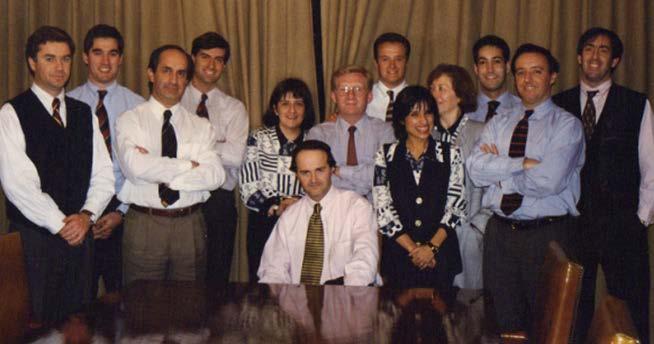
_
IN THE PHOTO: Marcelo Bennett Treasury Manager at ARAUCO.
IN THE PHOTO: Marcelo Bennett with the ARAUCO Finance team in 1996.
faxes all day long with purchase orders. And a man would walk around the hallways with a cart delivering them. We all had a physical inbox and outbox on our desks.”
But for Marcelo Bennett, technology has not been the only evolution at ARAUCO.
“It's very impressive to see how it went from being a very industrial Chilean company, closely associated with the world of pulp production, to producing wood, which is much more retail-oriented Moreover, today it is a global company, with plants in 11 countries and sales in more than 80. Another striking change is that it used to be a company that was very inward-looking in terms of communication, sharing very little with the community. Today, it is quite the opposite.”
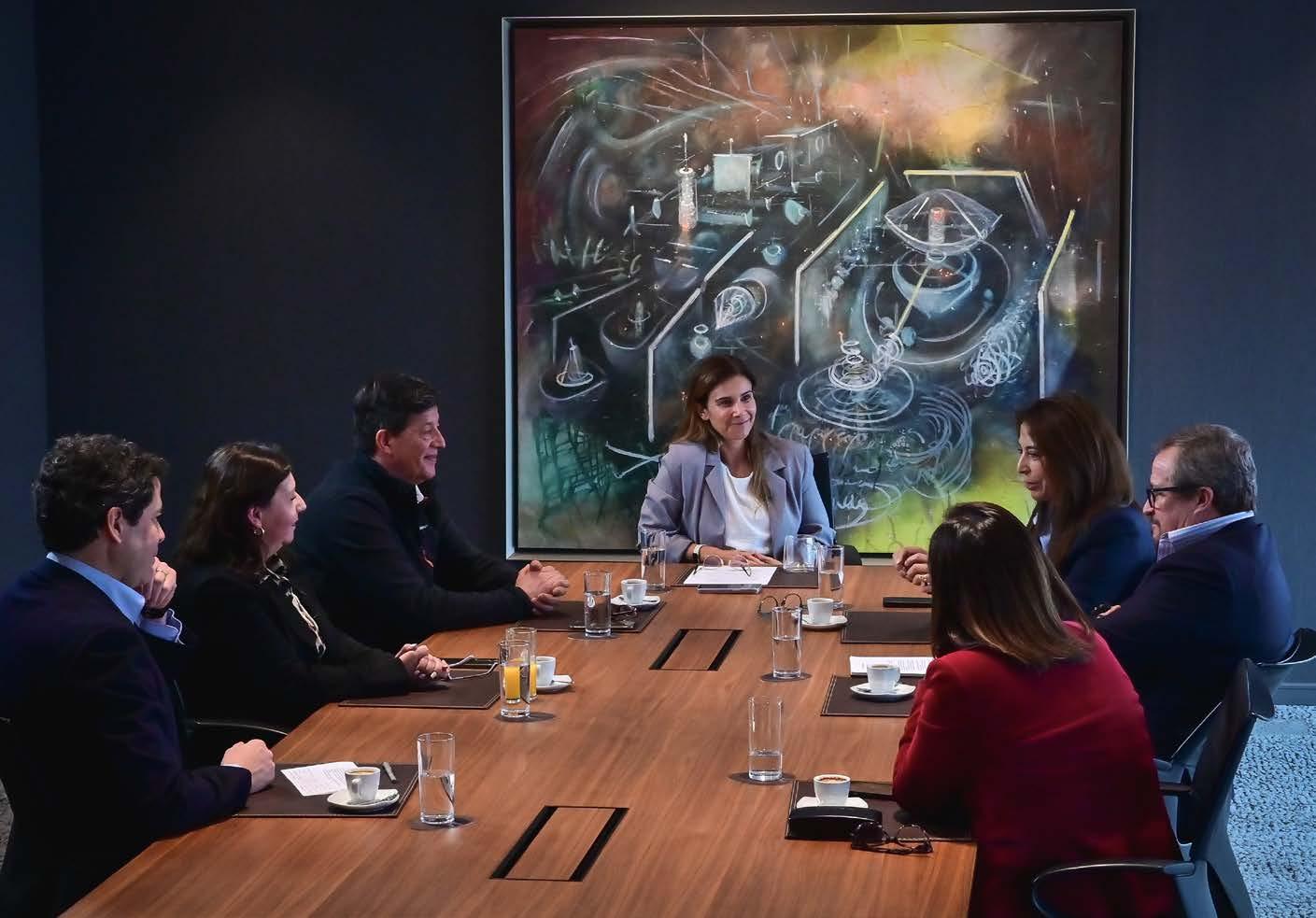
Among the common grounds highlighted by the participants is the importance that their respective companies, although in different industries, place on customers.
Marcela Rojas, meanwhile, believes that one of the biggest changes she has seen at Empresas Copec is the way of working and communicating. “In the past, each area was very independent and there was little interaction. Today, however, the work is much more collaborative, with a lot of interaction, where ideas and different perspectives are shared. Added to this is a new way of communicating, which is more effective and transparent, both internally and externally.”
Alfonso Rivas points out that, over the last decade, Alxar has gone from having a small gold mining operation in Chile to participating in a much larger copper mine in Peru. In addition, he says he has been struck by how the Group has evolved into something more corporate. “Today, it works much more in sync. There is coordination between the companies; they know what the others are doing. And that gives you a culture of doing things, of getting to know others, of having access to what the other subsidiaries are doing. That has been a remarkable change.”
For Pamela Bórquez, the big evolution has been the migration to becoming a human consumption company.
“This was consolidated with Nutrisco, the Group's food company. And that is a real challenge, because the bar is set quite high compared to what the other subsidiaries are doing.”
Since Carina López joined Copec in 2001, the company has transformed and reinvented itself to become an ecosystem of innovative companies that complement its core business. “I truly feel that during all these years we have never stopped, we are always evolving, we are always challenging ourselves, there is always something new. It has been an impressive transformation, but we have maintained certain important things, such as service and customer focus, which have been its hallmark.”
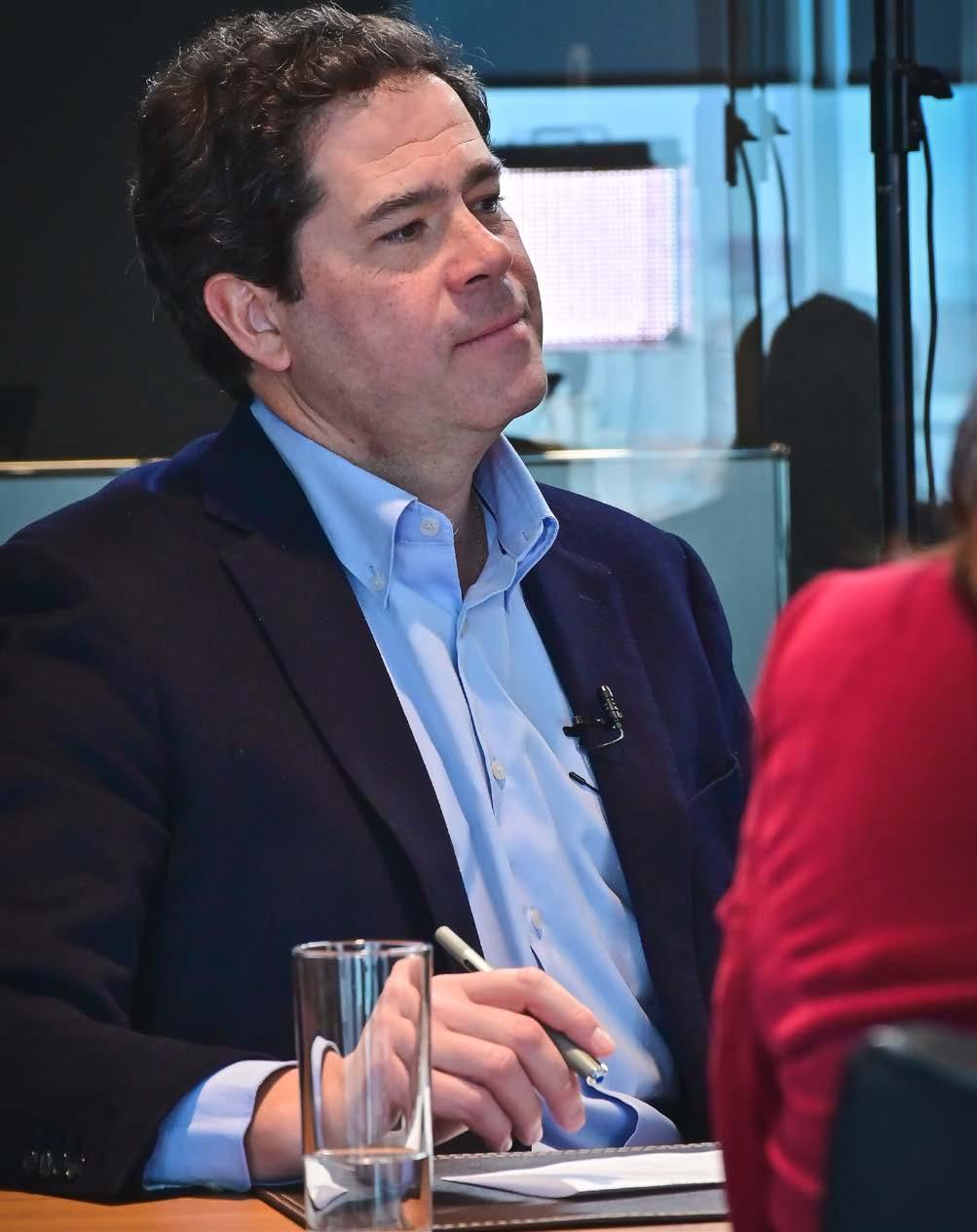
First in service
One of the common grounds shared by the participants is the importance that their respective companies, although in different industries, place on customers.
Pamela Bórquez comments that “we have increasingly demanding and informed consumers, for whom it is no longer just about eating, but about eating food with certain conditions and characteristics. The issue of food has a somewhat complex connotation: we all eat, and therefore, when you eat something, you assume that nothing will happen to you when you eat it. But that's just the starting point.”
“At Copec, being first in service is not just a tagline: it is a powerful promise that we take on with responsibility and full awareness. That promise cannot be broken, in any contact channel nor at our service stations. Every action we take -and also everything we fail to do- has a direct impact on those who trust us. Because, in the end, behind every interaction there is a person, and our focus must always be on them,” says Carina López.
Marcelo Bennett says that he also uses the phrase “first in service” for ARAUCO. “Even for products that are much more industrial, such as pulp. Today, under equal commercial conditions, customers in Asia and Europe prefer ARAUCO because of the service we provide. So being first in service is already in the Group’s DNA.”
Juan Carlos Avilés agrees and adds: “Service is what sets us apart and is what companies compete for. For example, you remain loyal to a hairdresser because of how they treated you, or to a company, not because of the brand, but because of the service they provide. That's why at Abastible we have a very clear focus on the customer, on people.”
“That has to do with excellence. With doing things right,” adds Marcela Rojas.
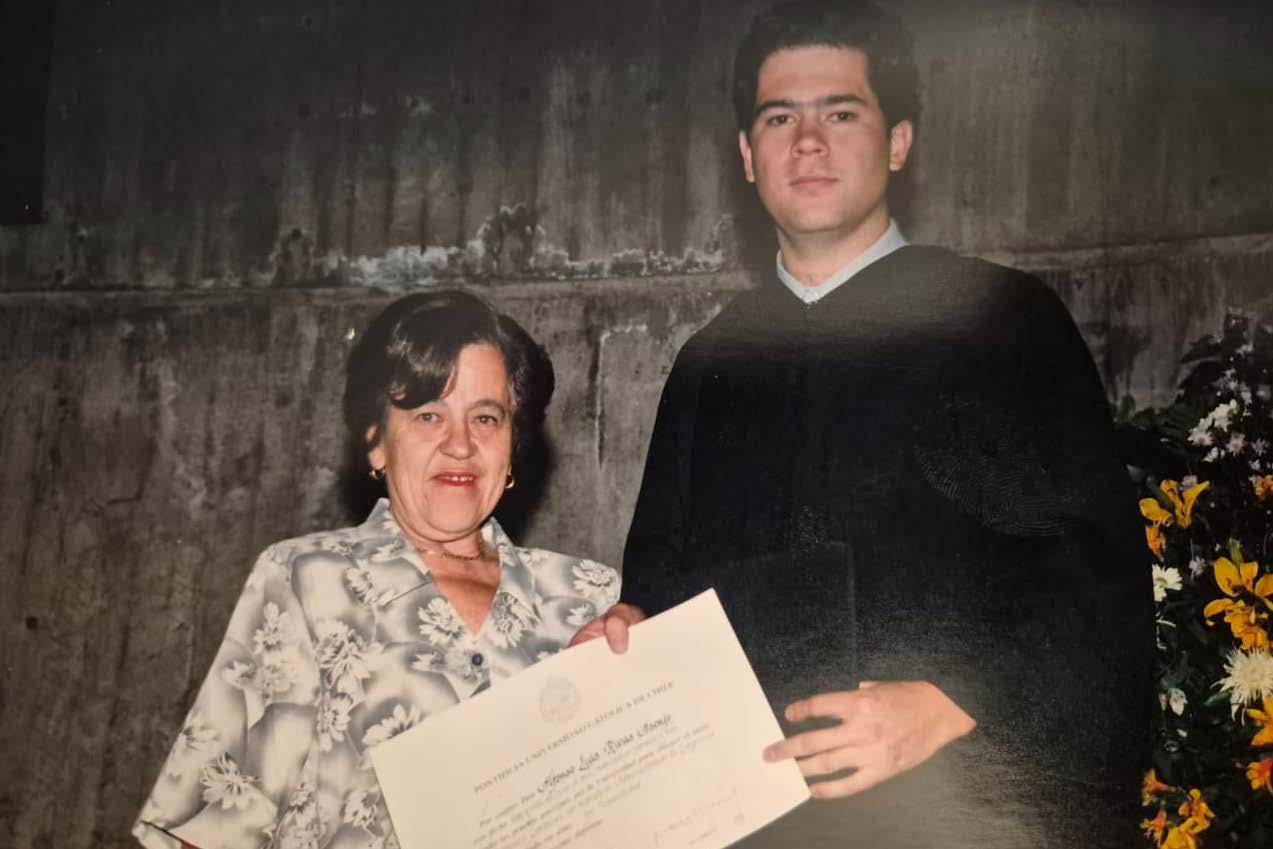
_ IN THE PHOTO: Alfonso Rivas Business Manager at Alxar.
IN THE PHOTO:
Alfonso Rivas during his graduation in 1998, the same year he joined the holding company.
The “R factor”
What has made these six employees stay with Empresas Copec and its subsidiaries for so many years? What has been, ultimately, the “R factor” or retention factor?
The answer to this question is unanimous: the values and people of the holding group.
In this regard, Marcela Rojas comments: “I have been able to reinvent myself within the company, do different things, and contribute in different areas. But, in addition to that, I believe that human quality is key. Camaraderie and how respect is lived are extremely valuable things. I had the opportunity to leave many years ago and decided to stay, and shortly after, my husband was diagnosed with cancer. I believe that if I had been somewhere else, it would not have been the same. My boss would look at me and say: Marce, go home, go see your children, be with your husband. You have
to be with your family. I don't know if I would have had the same support somewhere else,” she says emotionally.
Alfonso Rivas agrees and adds: “For me, the most important thing, and why I've stayed so long, is the people. And I can say that because I've worked in several companies in the Group and I couldn't define it in a single word, it could be culture, trust, integrity. I, for example, have never felt uncomfortable with a decision I've made. It's like the right thing comes easily, naturally. In these 27 years, I have never done anything that I did not agree with or that caused me any kind of moral conflict. I feel that I work in a place that has the same principles as me.”
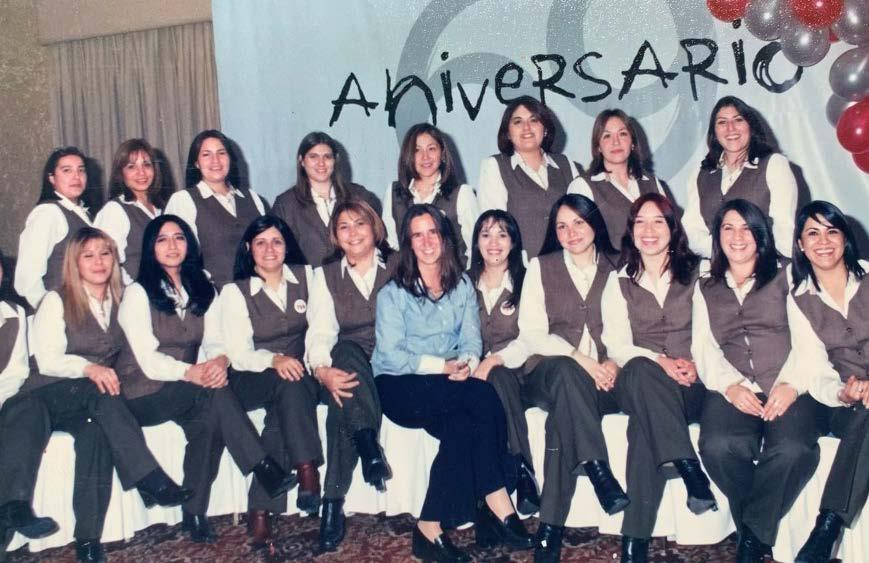
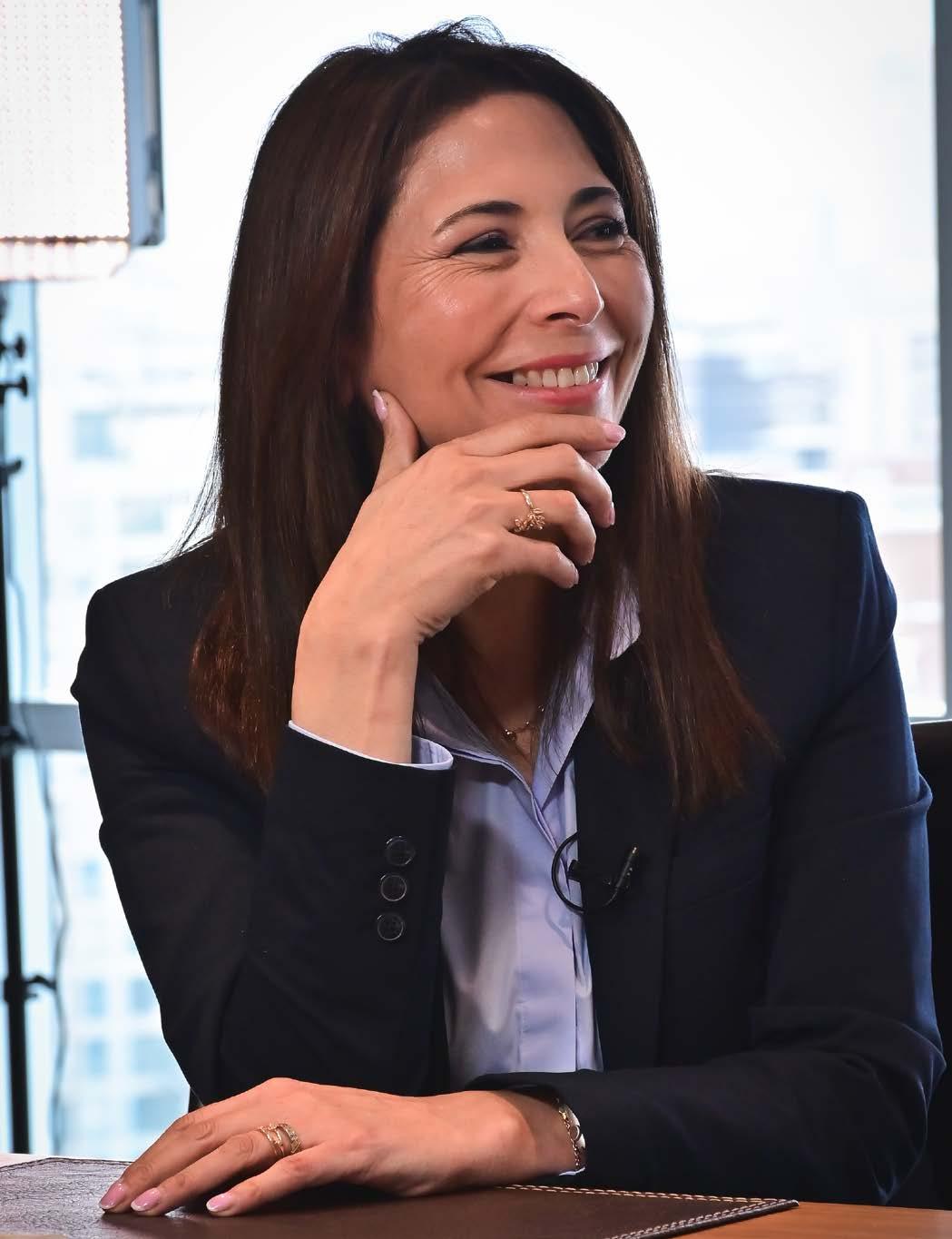
IN THE PHOTO: Carina López Head of Customer Service at Copec.
_ IN THE PHOTO: Carina López with the Copec Contact Center team in 2004.
For Juan Carlos Avilés, leadership has been important throughout his career at Abastible. “They let you do things, they trust you, they support you, even when you make mistakes. That's vital. At Abastible, quality always takes precedence over quantity. Here, people make the difference: your peers, your bosses, your work team.”
Marcela Rojas agrees and states, “We have very good leaders.”
Enjoyment has been key for Marcelo Bennett: “I have had and continue to have a great time at ARAUCO. You laugh, you joke around, and when you have to stay late to work, you do that too. In the elevator, you might run into the CEO or an assistant and you can joke around and have fun. Because we've known each other for so many years! Because there are six of us here, but there are many of us who have been working in the Group for a long time. So we've known each other since we were single, before we had children, etc. So I think that's also super important: having a good time at work.”
Alfonso Rivas adds: “I mean, it sounds kind of cliché, but it's like a family.”
Marcela Rojas adds: “Of course! If we spend more time here at the office than at home, how could we not be a family?”
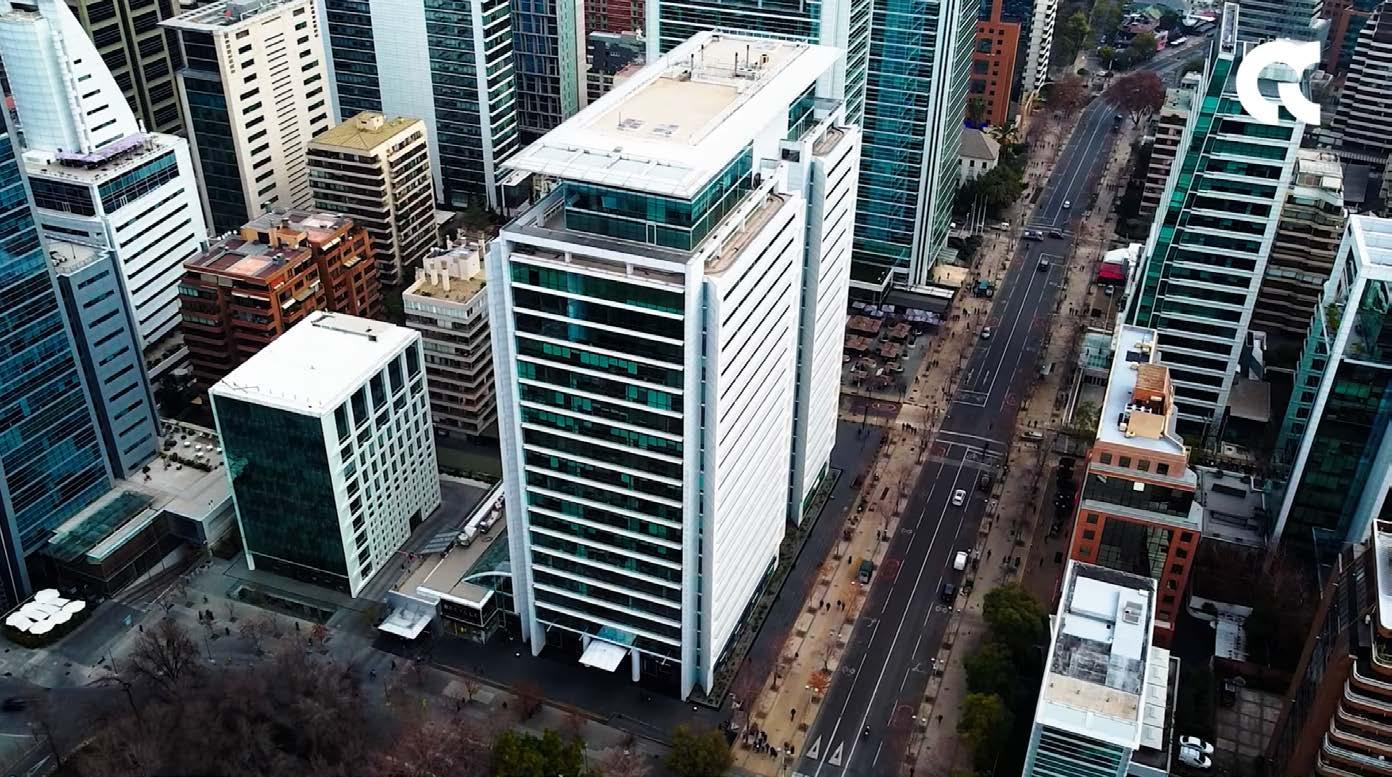
For Pamela Bórquez, her career development has been crucial during her 22 years with the company: “I've had to work in a field where most people are men. That has been a challenge for me, but I've had the same boss since I arrived, who has given me space, trust, and respect, which has allowed me to grow professionally and demonstrate that the Quality area is very important. And as Alfonso said, I have never had to do anything that went against my values. I always had that apprehension or fear, especially at the beginning, that I would be asked to do something that went against my principles, and that has not been the case. Even when what had to be done was not economically convenient. So that has been super rewarding for me, where I am and who I work with.”
Carina López says: “What has kept me here is feeling like I belong, feeling that I am contributing from the role I am working in. I also believe that being constantly innovating, always learning new things, always being challenged, all of that keeps me enthusiastic about being part of Copec. This company has given me so much. I have grown professionally, I have studied, I have trained within Copec. Here, concern and respect for people is not something that is written in a manual, but rather something that is felt, lived, and part of our internal culture, and I have felt it throughout these 24 years, especially in difficult moments in my life, where I have felt support, a space where I can be my genuine self. So, of course, the truth is that I don't want to leave, because I feel that Copec is my space, my heart is there.”
WATCH HERE A SUMMARy OF THE ROUNDTAbLE.
How do you live your company's purpose?
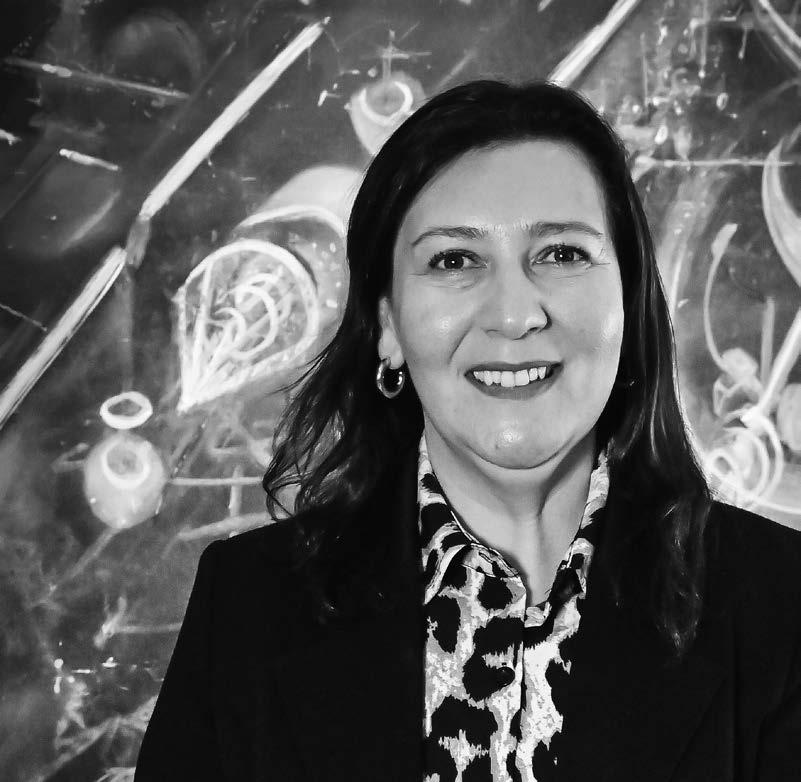
“In our case, the purpose was really beautiful, because the Company involved all the collaborators in defining it. After many sessions, workshops, and meetings with the whole team, it was really exciting when our CEO shared with us the purpose of Empresas Copec: to shape the world for future generations. Personally, as an employee and as a mother, it moves me, I feel I belong, it makes a lot of sense to me, and it makes me proud. Because it is a purpose that is in line with my values, with what I want for my life, and with what I want to leave to my children.”
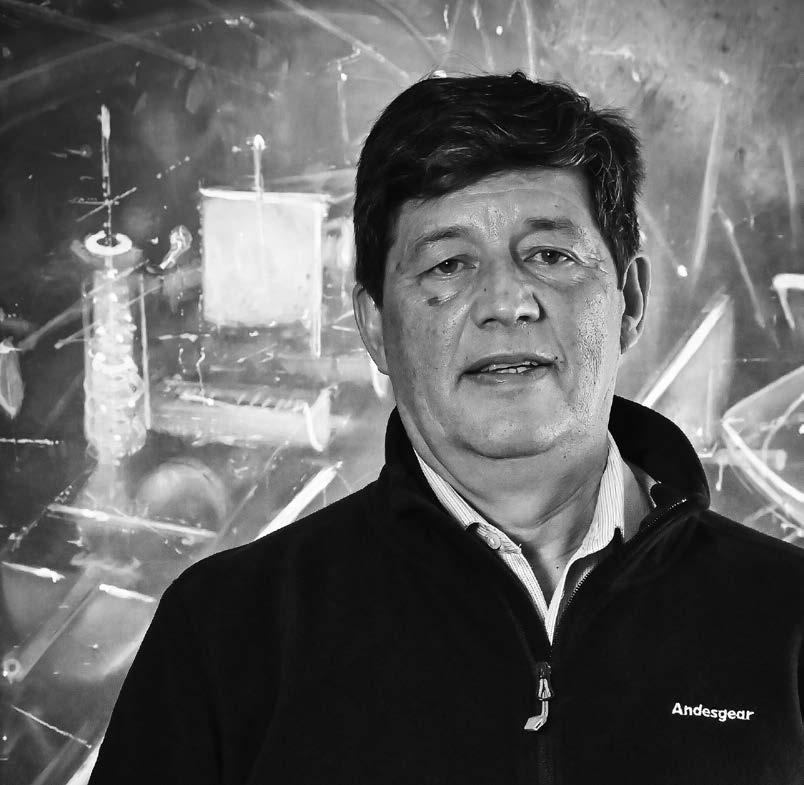
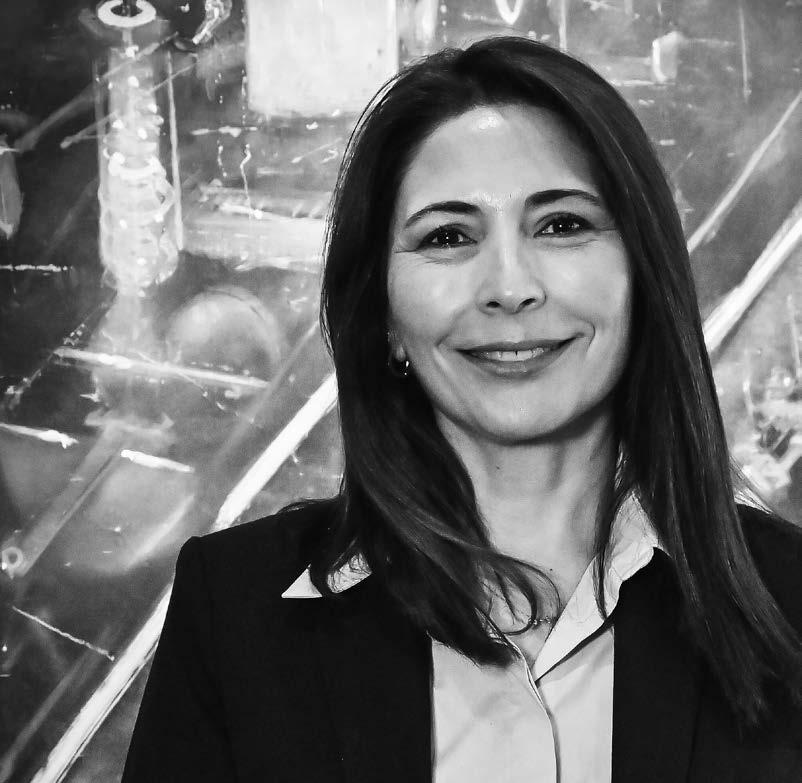
“Because of my work in the Collections department, I know the daily pain of SMEs. So I am truly passionate about our purpose: to empower the entrepreneurial spirit. At Abastible, we want SMEs to be the economic and social engine of Chile and all the countries where we operate. Personally, I am excited to know that we are supporting entrepreneurs, because behind them there are people, families. And I know for a fact that this is not just a phrase or slogan, because there are specific actions, such as seven-day payment. Because it is not enough to have a purpose; you also have to live it.”
“At Copec, our purpose is: we exist to empower the development and mobility of people, companies, and the country. And that is extremely powerful. When I apply this to my daily work, I immediately connect it to what I do. Every contact, every call from people challenges me to deliver excellent service and make the customer experience memorable. Furthermore, in difficult times such as the pandemic, earthquakes, and floods, Copec never stops working. And that makes us proud as a team, because we truly feel that we are helping people and the country to continue operating.”
JUAN CARLOS AVILÉS HEAD
CARINA LÓPEZ
HEAD OF CUSTOMER SERVICE AT COPEC
SERVICE: 24 yEARS
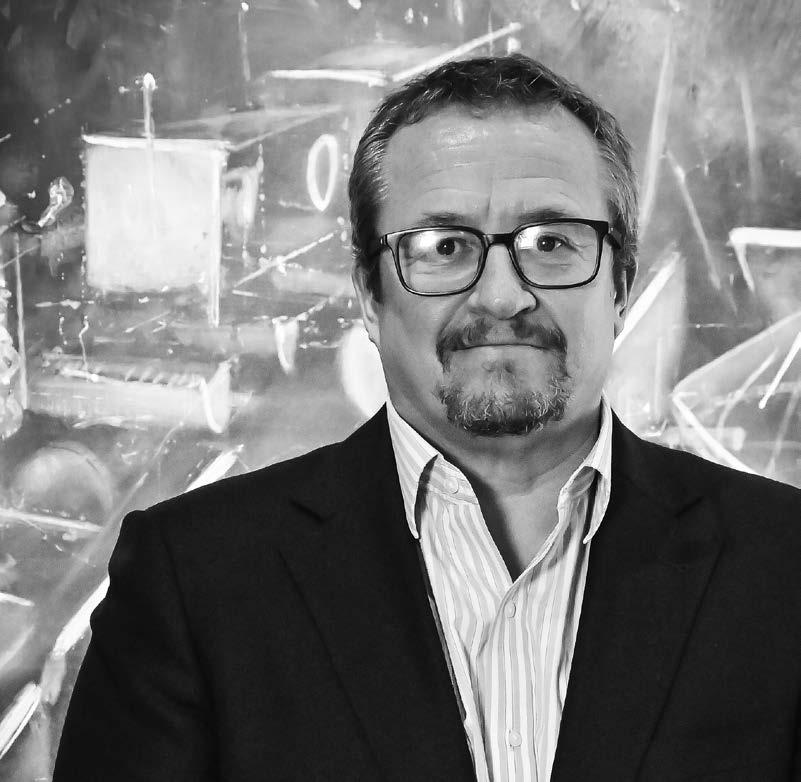
TREASURy MANAGER AT ARAUCO LENGTH OF SERVICE: 31 yEARS
“Our purpose at ARAUCO is: from nature and renewable resources, we contribute to people and the planet. It focuses on providing solutions to people, but based on the sustainability of our product. In other words, there is no doubt that wood is the most environmentally friendly building material. ARAUCO was also the first forestry company in the world to be certified as carbon neutral. But although we only defined this purpose recently, it has always been part of the company, where we have always thought long term and about leaving a better world for future generations.”
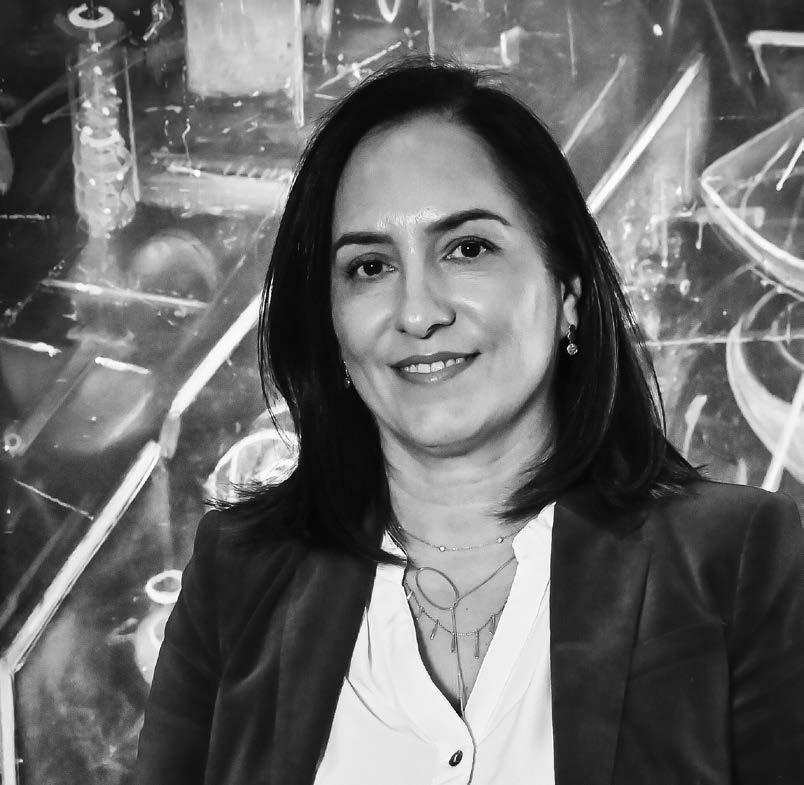
INTEGRATED MANAGEMENT AND QUALITy MANAGER AT NUTRISCO LENGTH OF SERVICE: 22 yEARS
“Our purpose is: we promote better nutrition so you can enjoy your life. And it's a commitment that impacts your business, because you have to ask yourself what you're going to sell. For example, if we sell potato chips, they have to be healthier than those on the market. So there's a whole process of looking at the product portfolio. And it's not just about eating well and healthily, but also about enjoying the experience of eating. And that enjoyment also has to be shown at work, in the day-to-day, where collaborators also enjoy being part of Nutrisco.”
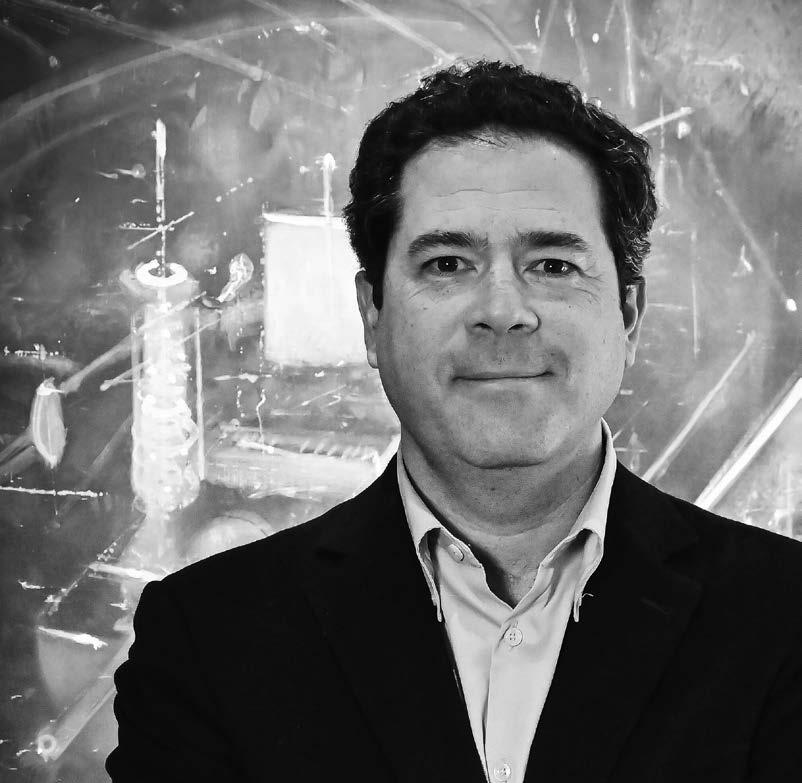
ALFONSO RIVAS
bUSINESS MANAGER AT ALXAR LENGTH OF SERVICE: 27 yEARS
“Our purpose is: we improve lives by transforming minerals into well-being. And I believe that this reinforces the sense of belonging and responsibility that companies have towards society. Nowadays, doing well from an economic point of view is very basic. It is necessary to have a purpose, a more transcendent meaning, through which value is added to people, communities, and the environment.”
PAMELA bÓRQUEZ

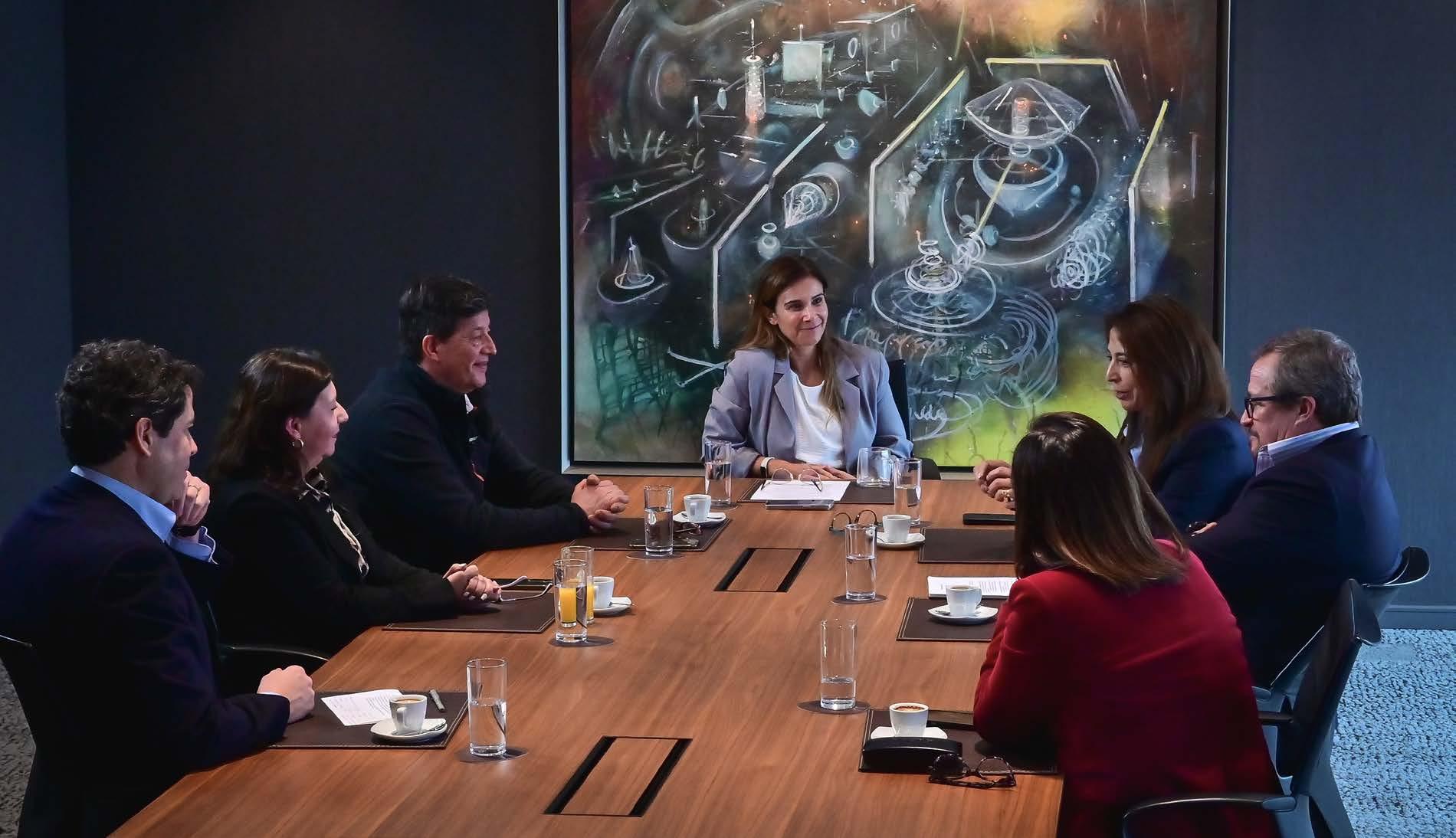


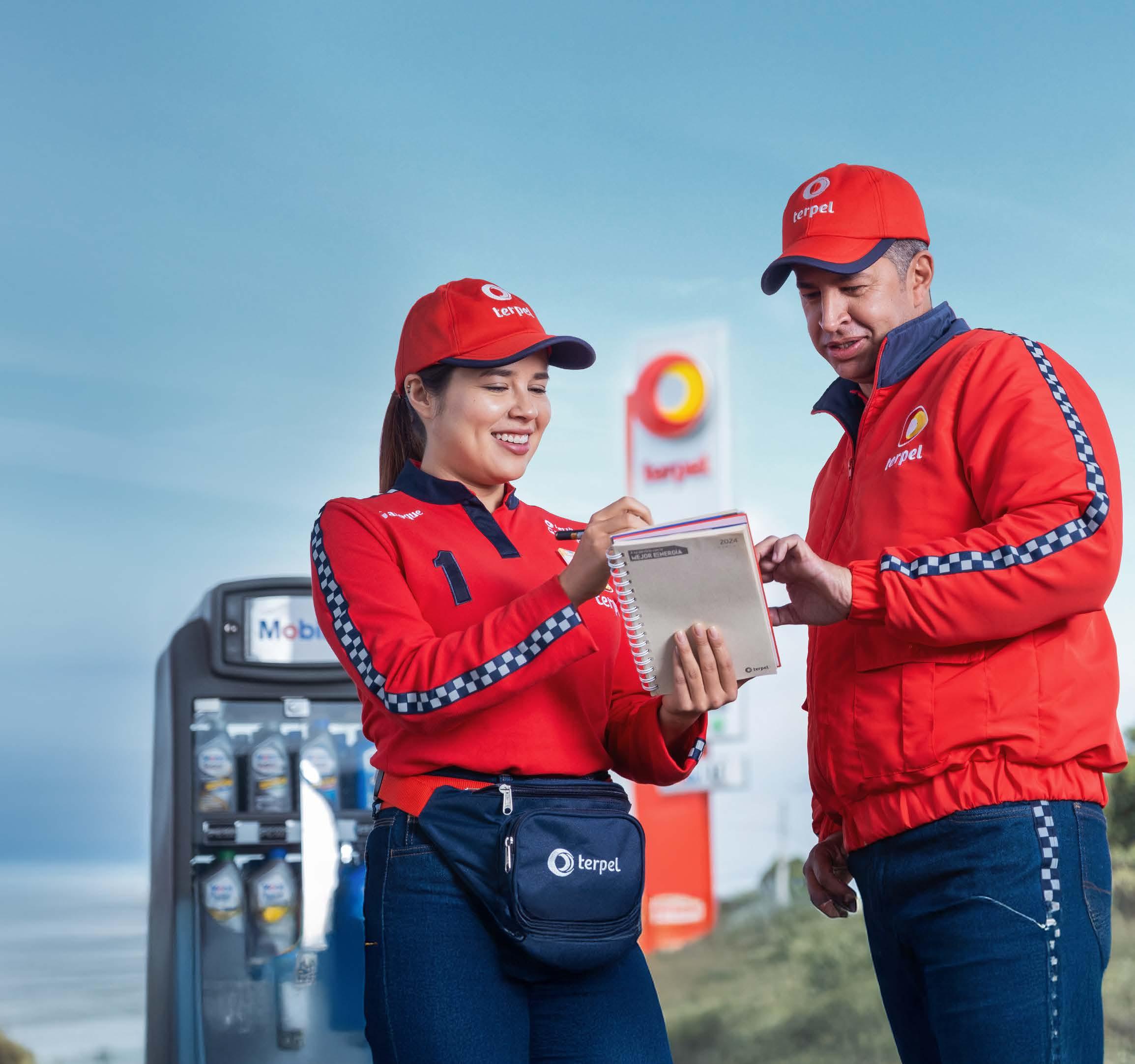
terpel: from the inside Terpel has evolved from a fuel distributor to a diversified energy solutions ecosystem.
LEADING ON TWO FRONTS
The Copec subsidiary consolidates its leadership in Colombia, strengthening its traditional fuel business while investing in new mobility, convenience, and energy solutions.
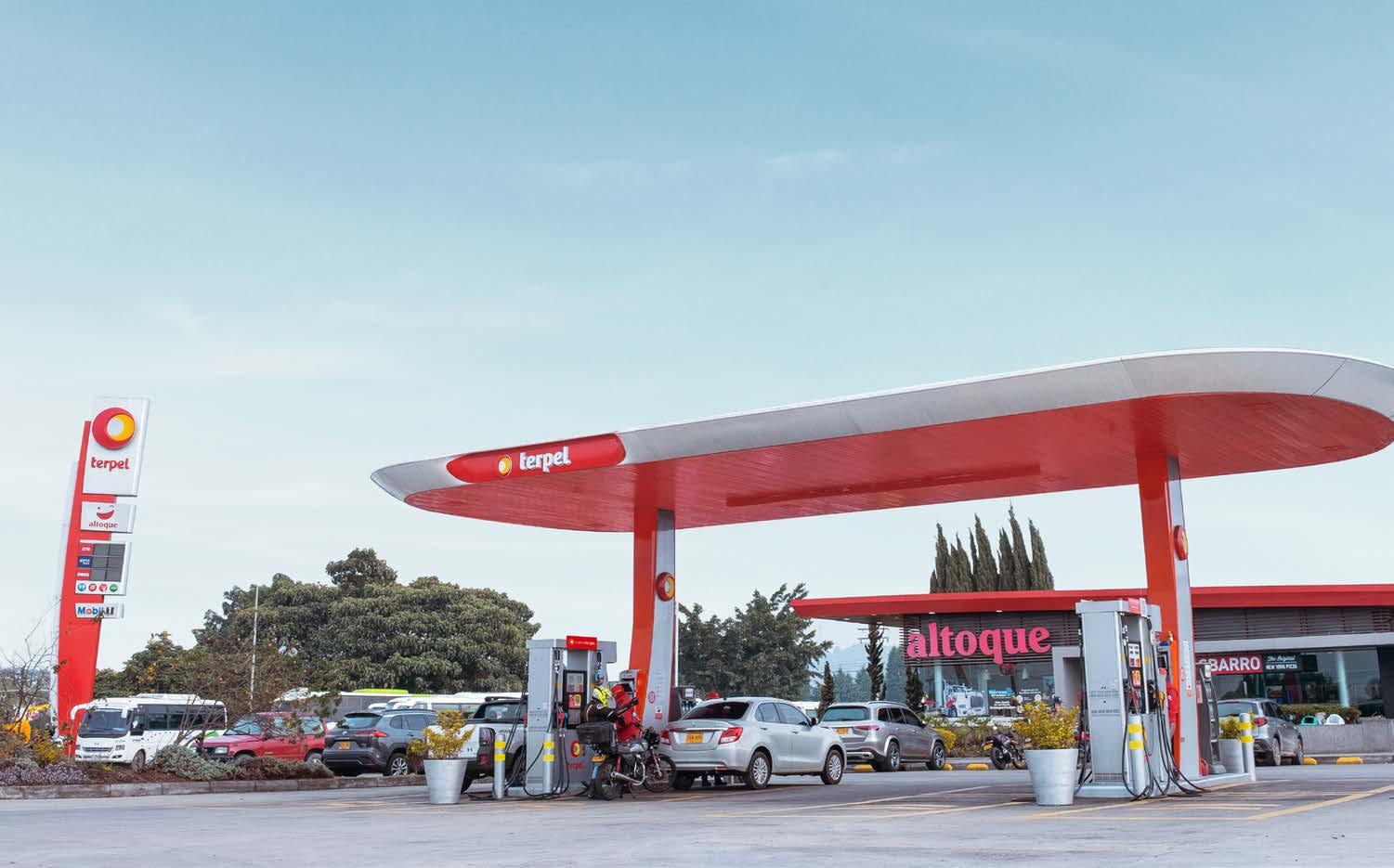
Its purpose is loud and clear: “To drive and mobilize people, companies, and the country with the best energy.” This slogan has become the mantra of Terpel, a company with more than 50 years of history and a leader in the distribution and marketing of liquid fuels in the coffee-growing nation.
With more than 2,000 service stations in Colombia alone (2,460 including Peru, Ecuador, and Panama) and consolidated EBITDA of USD $447 million in 2024, the company has evolved from a fuel distributor to a diversified energy solutions ecosystem. In this regard, Óscar Bravo, Terpel's president, states: “We have strengthened our ecosystem of products and services. We are moving forward with a dual strategy: on the one hand, we continue to strengthen and innovate in our traditional fuel distribution business and, on the other, we are expanding our value
“We have strengthened our ecosystem of products and services. We are moving forward with a dual strategy,” says Óscar Bravo, president at Terpel.
offering with convenience solutions, electric mobility, solar energy, and emissions offsetting, actively contributing to the country's energy transition.”
This is the strategy that, as Bravo points out, “has its feet firmly rooted in the present, but its eyes set on the future,” and is focused on diversifying its portfolio in the countries where it operates besides Colombia, namely Ecuador, Peru, Panama, and the Dominican Republic.

_ IN THE PHOTO: Óscar Bravo President at Terpel.
with the people
Leading comprehensive solutions
One of Terpel's hallmarks in Colombia is that consumers can find everything they need for mobility in one place: gasoline, diesel, vehicular natural gas, and liquefied gas (LG). With a market share of 43.7% and sales exceeding 1.738 billion gallons in 2024, the company seeks to create a memorable experience: “At our service stations, users find different mobility solutions for private and cargo vehicles, sustainable innovations, and convenience services that make them the ideal stop,” says Terpel’s president. Along these lines, they plan to open 14 new service stations during 2025.
On the other hand, they have set out to consolidate their regional presence, where they already have 109 service stations in Ecuador, 192 in Panama, and 33 in Peru.
In this regard, Bravo comments: “This participation reflects our ability to adapt to different markets, consolidating Terpel as a key player in mobility and energy supply in Latin America. Each station is a gateway to our commitment to quality, sustainability, and closeness to our customers.”
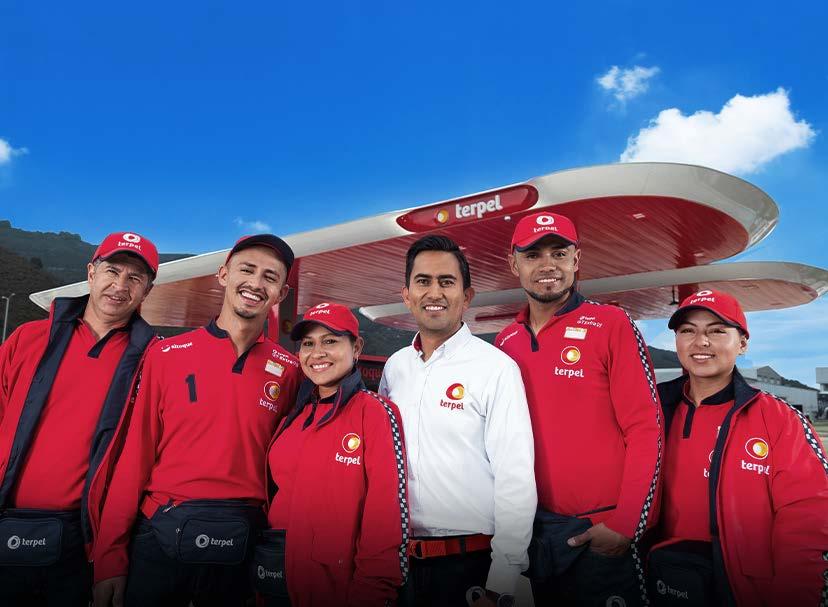
In the vehicular natural gas segment, Terpel holds a leading position with a 47% market share and is the only network with national coverage. This energy source represents an even cleaner and more economical alternative, allowing for a reduction of nearly 400,000 tons of CO₂ per year.
“One of Terpel's hallmarks in Colombia is that consumers can find everything they need for mobility in one place: gasoline, diesel, vehicular natural gas, and liquefied gas (LG).”
Excellence in lubricants: the union of two leaders
Through the Mobil and Terpel brands, the company aims to satisfy its customers with the most comprehensive portfolio of lubricants in Colombia. To this end, they have their own Innovation and Technology Center, which provides highly specialized engineering services and continuously monitors industrial customers in order to optimize their productivity. It also promotes energy efficiency measures, sustainable practices, and actions aimed at caring for the environment, among other initiatives.
These efforts have paid off: in 2024, the Lubricants team achieved a historic consolidated EBITDA of USD$124.9 million, with a 37% market share in Colombia, 37% in Peru, 15% in Ecuador, and 9% in Panama. In this regard, Bravo explains: “This was due to the implementation of strategies ranging from rigorous margin control to the execution of a robust marketing plan.”
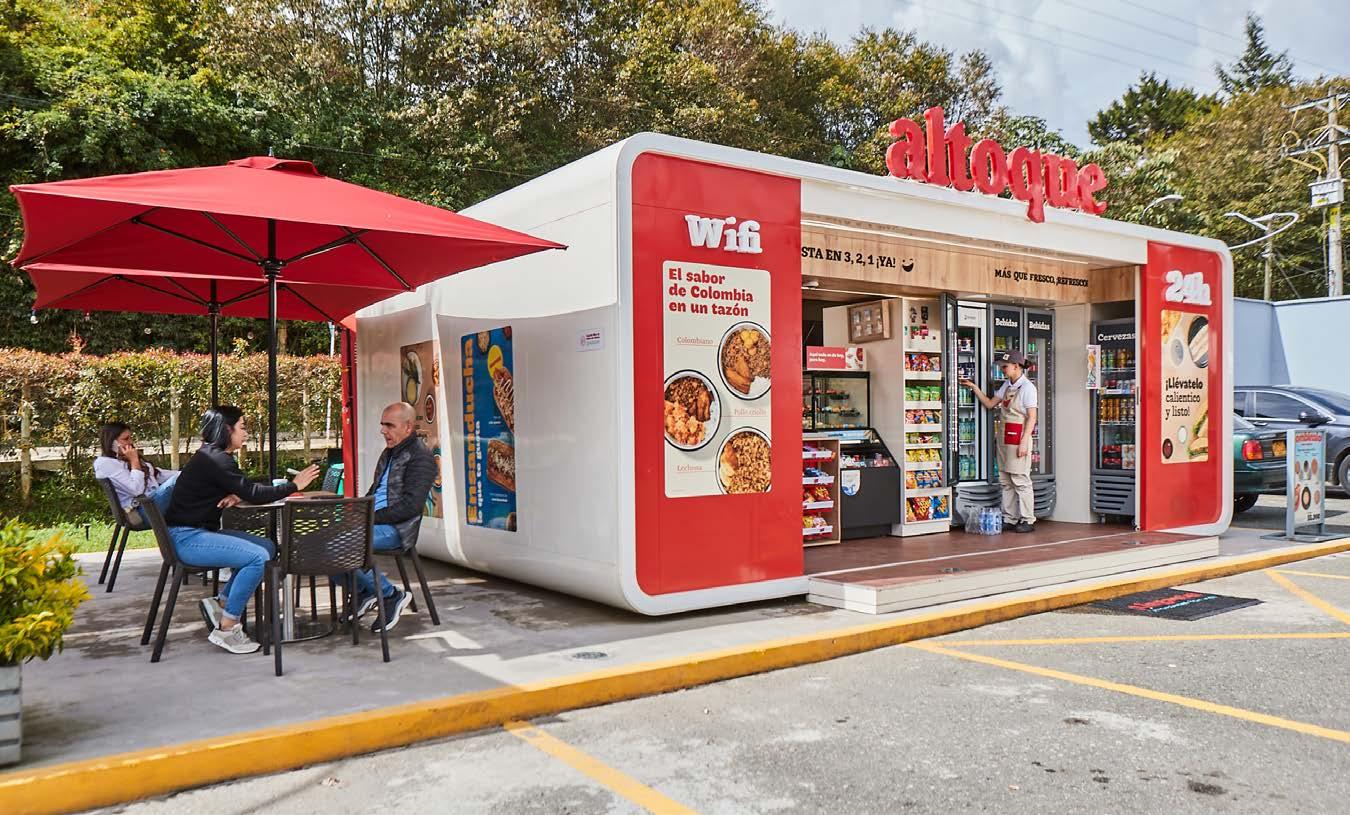
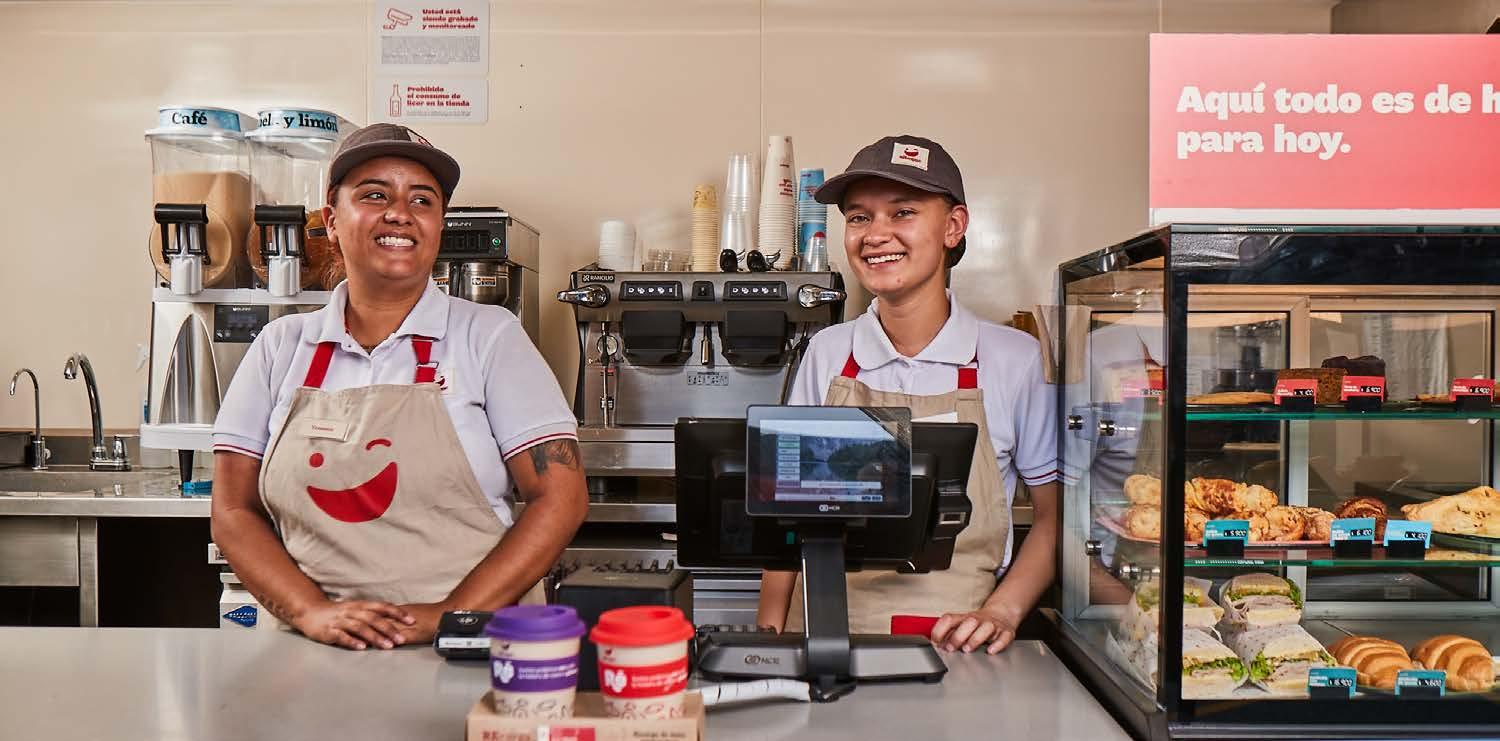
-
A memorable experience with every visit
In addition to its offering of fuels and lubricants, Terpel has focused on offering a comprehensive, agile, and modern range of convenience services, thus responding to market expectations. Thanks to partnerships with restaurants and food establishments, sales grew by 15% in 2024.
“Our purpose is to captivate our customers through memorable experiences, surprising and delighting them with our products. We aim to become the ideal stop along the way to recharge their energy, providing them with a fast, friendly, and delicious experience
every time they visit,” says Bravo.
Their offering is complemented by convenience services such as car washes, kiosks, and stores, among others. To date, they have 606 convenience services in the countries where they have presence. Terpel operates 229 stores, 55 Sbarro pizzerias, two Home Burgers locations, and 17 Ziclos car washes, among others, in Colombia, Panama, Ecuador, and Peru.

-
ViveTerpel, a customer-focused program
ViveTerpel is Terpel's loyalty program, designed to strengthen relationships with end consumers by rewarding their preference and loyalty. It is aimed at users of liquid fuels and vehicular natural gas (VNG), as well as customers of Altoque stores, Sbarro restaurants, and Voltex electric charging stations. Through ViveTerpel, consumers earn points for their purchases, access exclusive benefits, special promotions, and unique experiences that connect them with the brand.
Today, it has 3.5 million members, 55% of whom are active in the program. This sustained growth reflects not only the effectiveness of the initiative, but also Terpel's commitment to offering memorable, relevant experiences that are aligned with the needs of its customers, consolidating ViveTerpel as a key pillar in building brand loyalty and preference.
-
Promoting electromobility for Latin America
Since 2019, Terpel has been promoting the development of electromobility in Colombia through Terpel Voltex. In 2024, the electric vehicle market in the country grew 6%, and this trend is expected to continue. The company currently has more than 50 charging points in the region and supports the operation of more than 650 electric buses in Bogotá's public transport system.
This adds to the launch of an innovative system for electric motorcycles. According to Bravo, “this is based on battery swapping for charging electric motorcycles, which was a milestone in Colombia in terms of electromobility. This model streamlines the charging process, enabling a zero-CO₂ emissions mobility system, significantly reducing traffic noise, and allowing users to have charged batteries ready for use.” Today, Terpel has 12 charging points and maintains partnerships with several companies to promote this development.

-
Diversifying the energy portfolio
Terpel Sunex is the division responsible for developing the photovoltaic solar energy business. With more than 110 projects implemented and more than 14,500 panels installed, the company is strengthening its commitment to leading a responsible energy transition.
Along the same lines, Bravo comments that Terpel has decided to venture into the non-polluting renewable energy generation business: “This involves the acquisition of a solar plant, which represents the beginning of a new stage in the diversification of our portfolio and reinforces our commitment to environmental sustainability and long-term value creation. This plant, with a capacity of 26.6 MW, has the potential to generate approximately 45,000 MWh per year, equivalent to the energy supply for more than 23,000 homes, according to average consumption estimates by the Mining and Energy Planning Unit (UPME for its acronym in Spanish) in Colombia.”
-
A natural evolution
While some of these new businesses may seem unrelated to Terpel's historical activities, Bravo clarifies: “That is precisely where our evolution lies: moving away from being seen solely as fuel distributors and migrating toward an ecosystem of mobility, energy, and convenience solutions, playing a leading role in the energy transition.”

Ultimately, the diversification of its portfolio is not only a response to new market demands: “We want to be our customers' strategic allies, accompanying them with the best energy on their journey, with more sustainable models, quality products, and the best service. And for consumers, we want to deliver memorable experiences at every point of contact, putting all our experience at the service of the progress of the sector and the country,” concludes the executive.
A COMPANy IN CONSTANT GROWTH (2024)
INTERNATIONAL PRESENCE:HIGHLIGHTS: Total revenue
For the eighth consecutive year, Terpel joined the S&P's Sustainability Yearbook, being the only fuel distributor in the country included in this benchmark.
Fitch Ratings reaffirms Terpel's AAA (col) and F1 (col) ratings for the fourteenth consecutive year.
Historical score of 93.3% in the IR Issuer Recognition. The IR Seal highlights issuers that voluntarily adopt best practices in information disclosure and investor relations.
During the intense acquisition period of Fiordosur by Nutrisco, and the subsequent organizational change, the results have been promising.
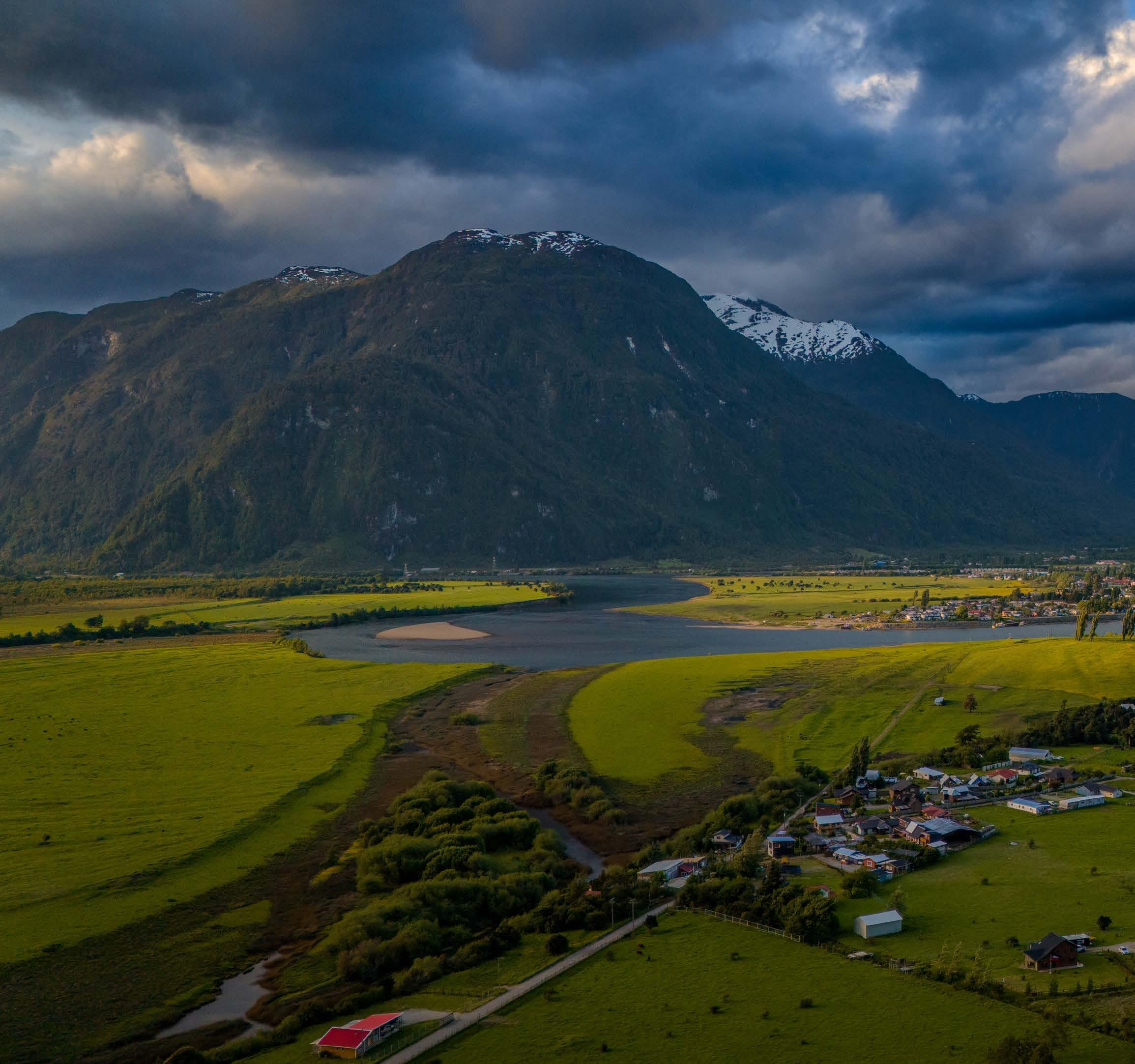
EXPANSION WITH A SOUTHERN TOUCH
Fiordosur, a company with more than 30 years of experience in the processing and export of premium seafood products, was acquired by Nutrisco in 2023. Since then, it has undergone several changes and made significant progress.
This journey is still underway and has brought new challenges for the 170 employees based in Puerto Aysén and Porvenir. All in all, the results have been more than positive: sales have tripled, the product mix has expanded, new offices have been opened in Europe and North America, the company has successfully promoted its products in Asia and the United States, and progress has been made in building a unified organizational culture defined by presence, active listening, and support.
fiordosur
In November 2023, Orizon Seafood acquired 70% of Fiordosur, a Chilean company founded in 1988 and specialized in the processing and export of premium seafood products, through its plants located in Puerto Aysén and Porvenir. The purchase came shortly after the creation of the Nutrisco food holding company. In mid2024, Nutrisco underwent a change in its operating model, moving from an organization of companies to one made up of business units that comprise a single company.
These significant changes did not prevent Fiordosur -now part of Nutrisco's Seafood
division- from achieving quick results: its annual revenue grew from US$20 million to US$60 million. It has also expanded its product mix, allowing Nutrisco to explore international markets more intensively, where these high-value marine resources are highly prized by consumers.
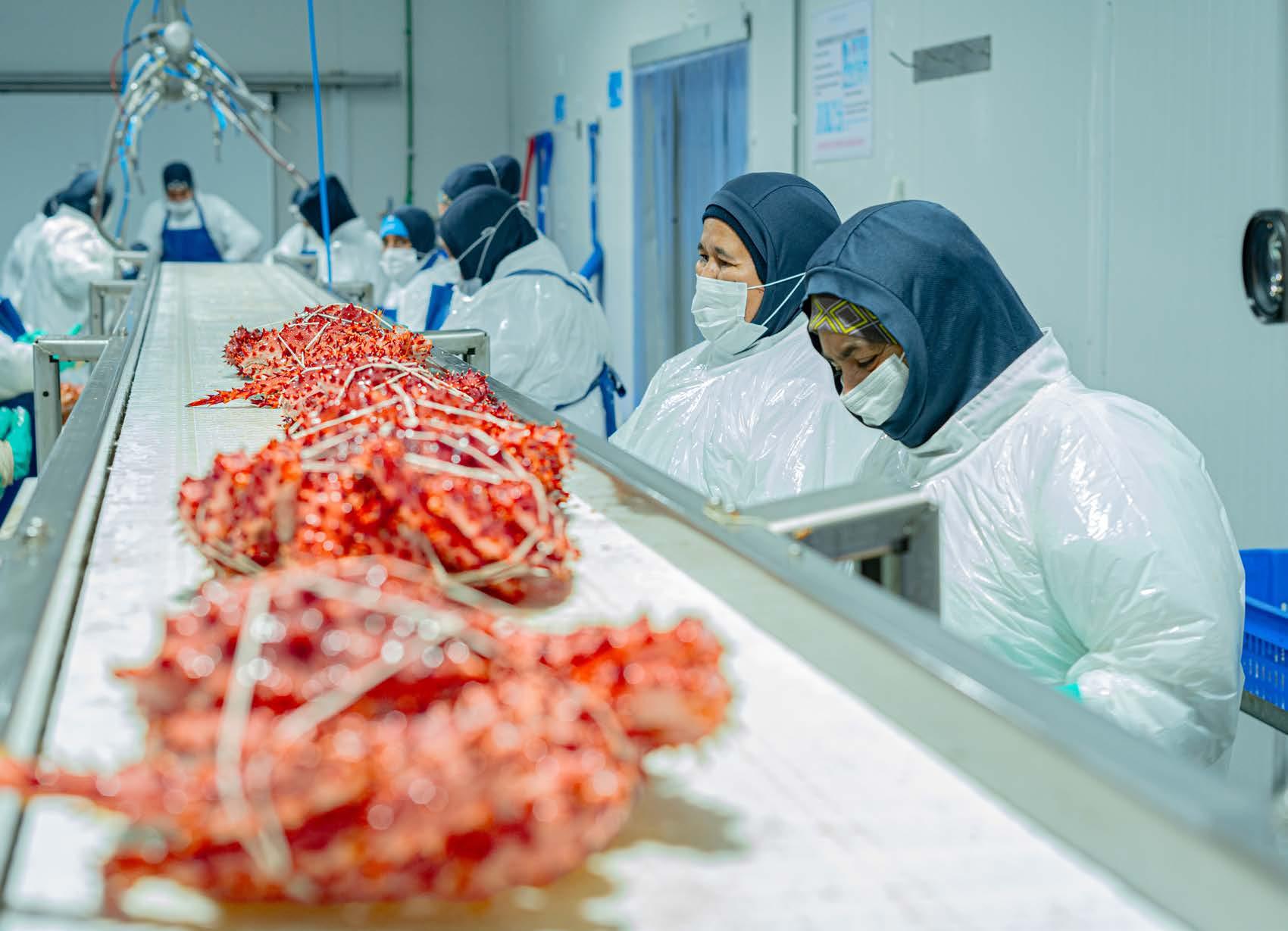
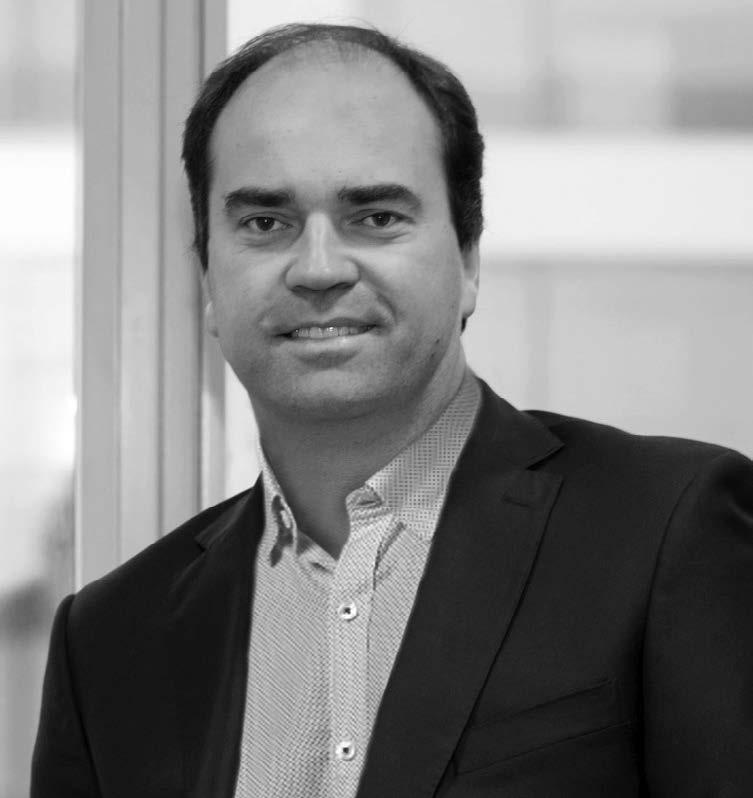
“What we look for with this type of business organization, which is rapidly scalable, is that it has some relevant competitive or comparative advantage. We see that when given access to capital, they have raw materials available and a market that still has a lot to explore. So the growth potential is very high,” explains Rigoberto Rojo, CEO of Nutrisco, when analyzing the positive figures.
_ IN THE PHOTO: Rigoberto Rojo CEO at Nutrisco.
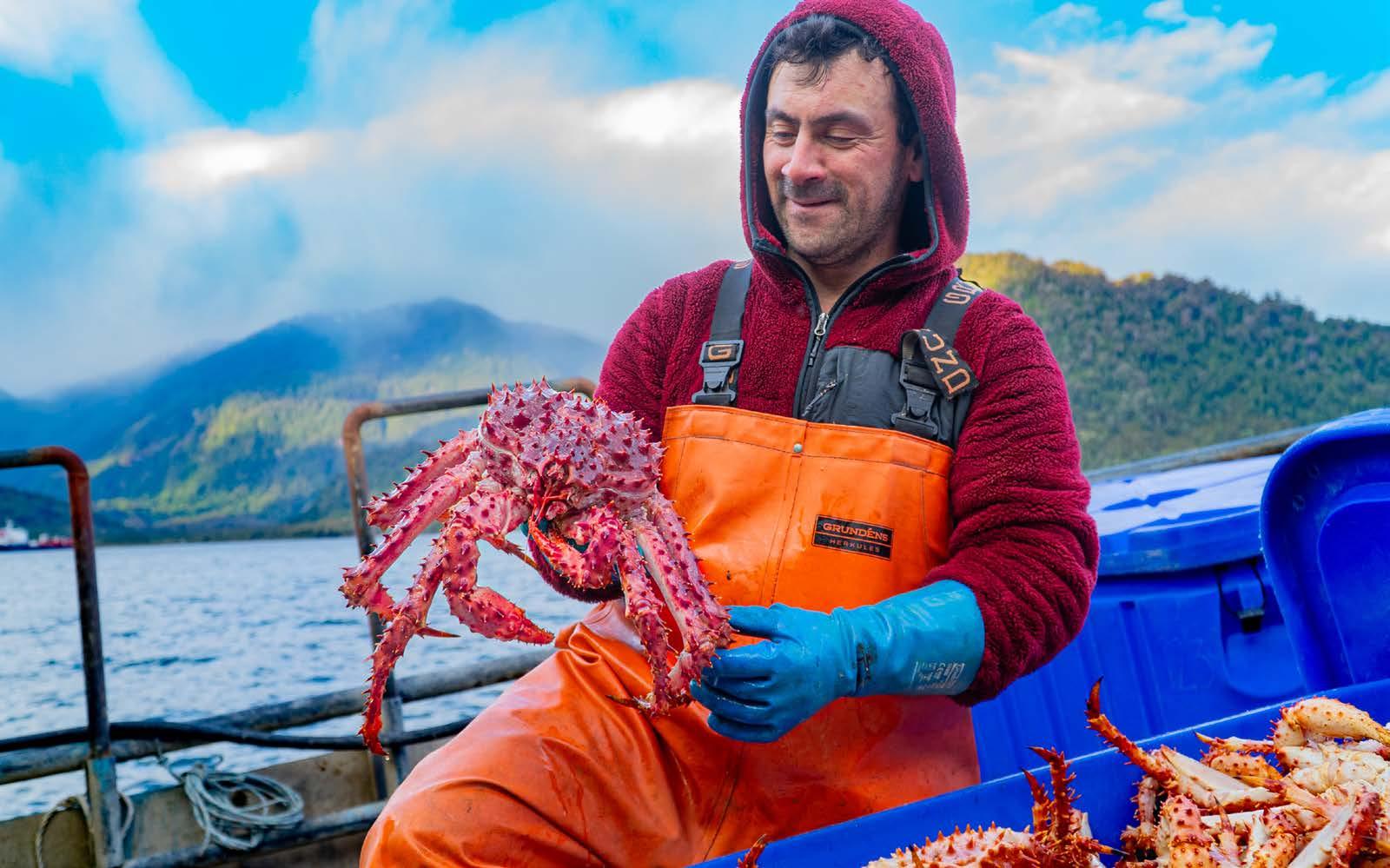
A high-value acquisition
Fiordosur's arrival at Nutrisco was driven by the latter's interest in tapping into the international market, where foods such as horse mackerel, which Orizon had been marketing for many years, faced a slightly steeper road, in contrast to Chile, where it is widely consumed. “The most sought-after products today are those with higher added value. These include shrimp, squid, octopus, cuttlefish, and also high-value fish. In this context, we saw an opportunity, given that we already had an active commercial network and presence at the main trade exhibitions in Europe, the United States, and Asia. That is why we decided to complement our mix with other categories that are in demand by both our current customers and new players in those markets,” says Rojo. The executive -
explains that, for example, if mussels are sold in B2B format at three dollars per kilo and jack mackerel at four, Chilean seabass sells for 50, a figure that rises to 100 when it goes on sale to the public (B2C). That is why the international market is so important.
During the intense acquisition period and subsequent organizational change, the results have been promising. From a business perspective, Rigoberto Rojo comments that these have been leveraged by three major factors. Firstly, he highlights Chilean seabass
sourcing method, as this raw material, which used to come from industrial sources, is now mainly obtained from artisanal fishermen. This transition is due to the limited industrial supply, on the one hand, and the strong vertical integration between producers and processors, which made the resource more expensive and
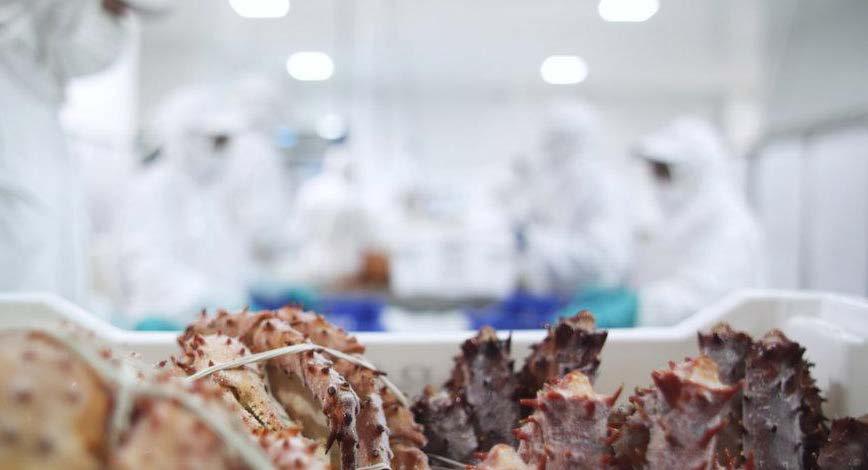
reduced access for third parties. On the other hand, the artisanal sector had a large share of the market, and the quality has proven to be similar: “We have been able to buy in different locations, we have set up a program with different ports and fishing villages in Chile, and we have managed to increase the volume,” he says. They also began to purchase a species similar, but not identical, to Chilean sea bass, which is fished in Antarctic waters near Argentina.
A second factor to highlight is the expansion of the product mix, which has been made possible by the flexibility offered by the plants, especially the one located in Puerto Aysén: “In Coronel, for example, we are not able to carry out the manual work required in these cases. Here we have found a flexible space that makes it easier for us to make higher value products that complement our jack mackerel and which, by themselves, can also generate additional, profitable and growing business.”

A third aspect has to do with joining a large economic group, with all that this implies in terms of professionalizing practices and systems: “We have been standardizing accounting and production processes and improving operating performance, which helps a company grow at this pace. There is certainly still a lot to do, but I believe that Fiordosur has made sustainable progress and is becoming one of Chile's leading exporters of Chilean seabass and king crab,” says Rojo. However, from a learning perspective, the executive stresses that in integrations of this type, monitoring must be ongoing. This is because when medium-sized companies scale up, where all management used to be in the hands of one person, there is a risk of losing visibility of the entire margin. Rojo therefore emphasizes the importance of maintaining a global and operational view of the business on a daily basis in order to avoid imbalances, efficiency losses, or late decisions.
Since Fiordosur was acquired by Nutrisco in 2023, it has tripled its revenue, increased its product mix, and expanded into Europe and North America.
Double change
Moving from being a regional company, with direct involvement from the owners, to belonging to a large economic group is undoubtedly a significant adjustment in the way of doing business and in the lives of employees.
Tatiana Catalán Human Resources Business Partner (HRBP) Seafood, emphasizes that this is on top of the fact that the integration of all the companies into a single entity is still ongoing and that, among other things, this has meant that many areas, such as Logistics, Administration, and Human Resources, are now centralized and therefore not located
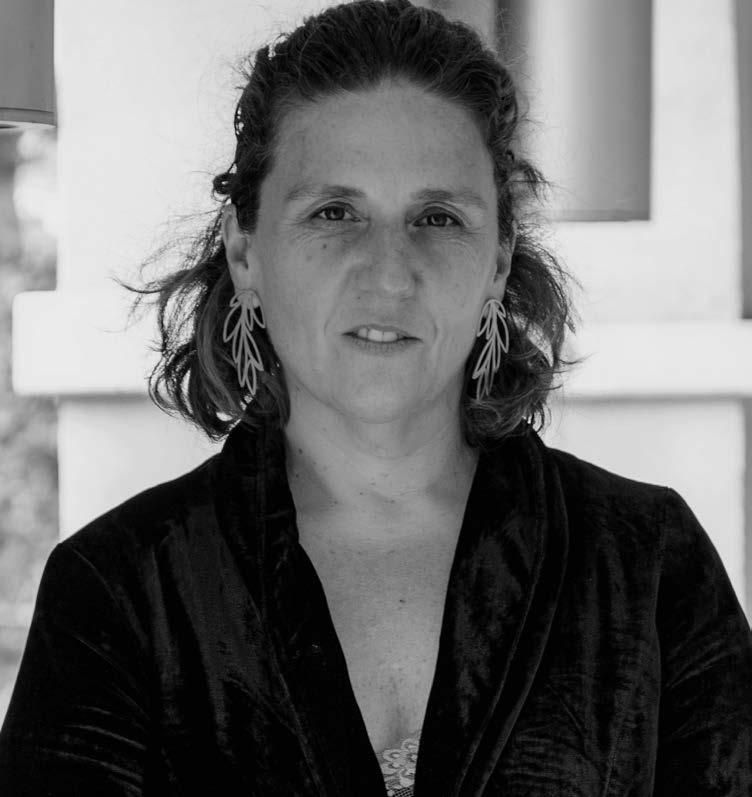
dynamics are natural in any cycle of this nature. Yet, the feeling is that the team values what lies ahead.
The presence of the organization's leaders on the field has been key to this perception, which is particularly relevant considering that both plants are located in remote areas. For example, a few weeks ago, Nutrisco's CEO, Rigoberto Rojo; Nutrisco's People manager, Francisca Prieto; and Tatiana Catalán traveled to the Aysén plant to share breakfast and hear how the 170 employees are experiencing this journey, what they value, and what can be improved.
“I was very struck by a conversation we had with someone from Logistics, who told us: 'Before, during a shipment, I felt that everything fell on my shoulders, that if something went wrong, it was my fault. Today, I feel like there is a team behind me, a chain that supports me and will make sure that shipment reaches the customer.'
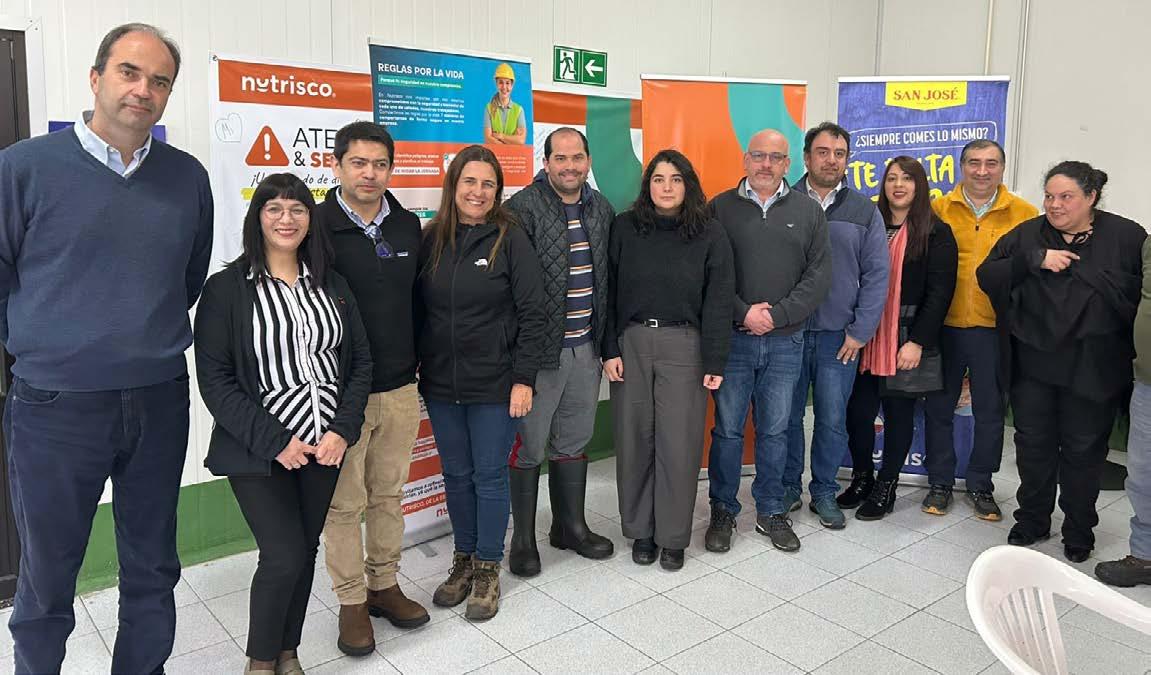
at the plants. For all these reasons, from an organizational culture perspective, a priority was placed on building trust, i.e., showing employees that Nutrisco had come to empower them and the business: “In the daily life they see it because that support is noticeable, for example, when negotiating with external suppliers, in the development opportunities that open up for certain positions, or in having backup that did not exist before. They also value the access to different systems and technologies, which they have seen in this process.” Tatiana states that feelings of loss or rupture with previous
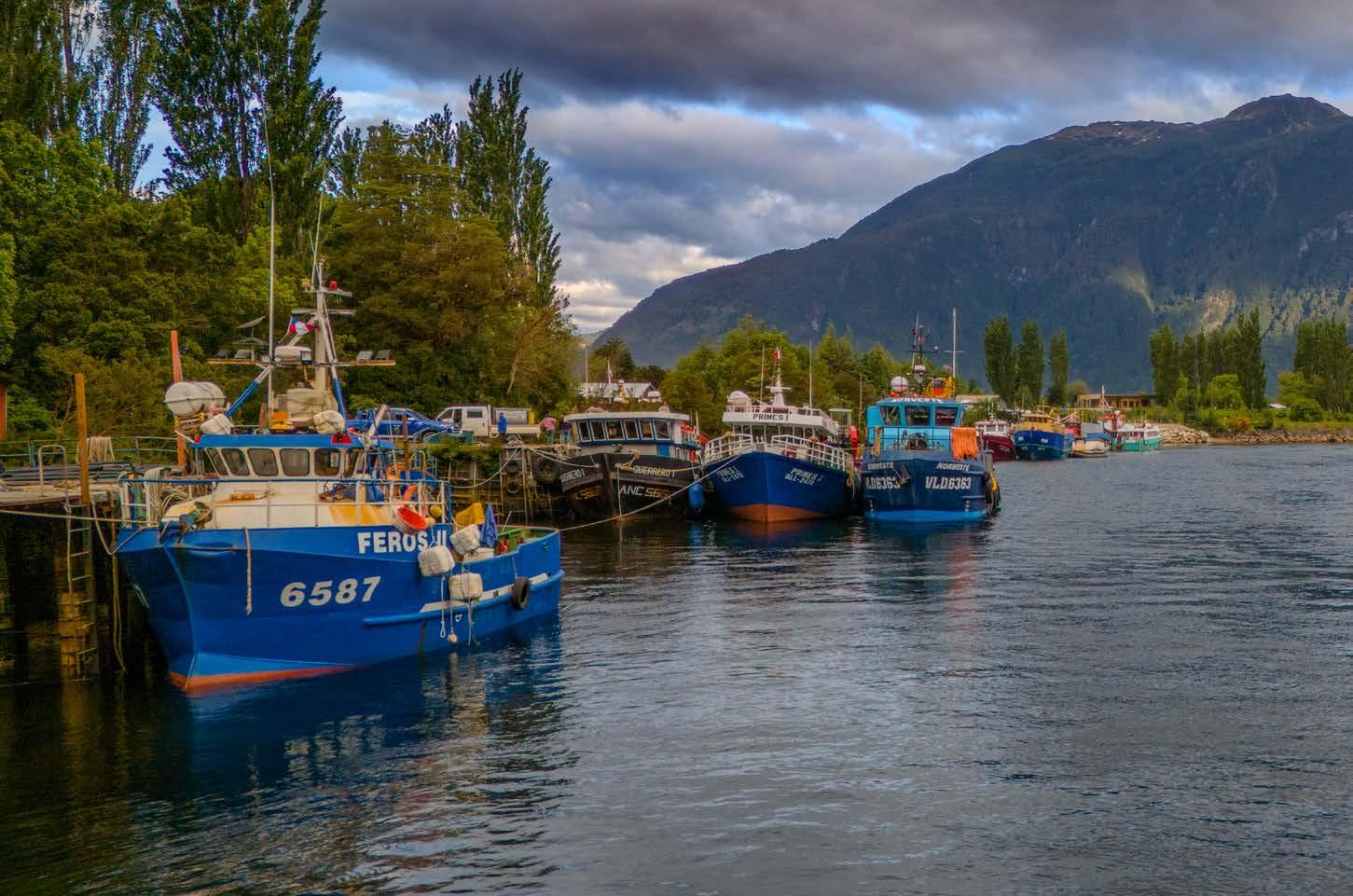
It is very gratifying to hear them say this, because it shows that, beyond the problems that may arise, there is much more learning and integration with teams from other locations,” explains Tatiana Catalán.
Rigoberto Rojo agrees with her, stating that being on the field “is valuable for workers, leaders, and the organization. It's not the same when you have a fishing company and you buy another one. You already know what it's about. However, here we are entering into complementary but new businesses.
IN THE PHOTO: Tatiana Catalán Human Resources Business Partner (HRBP) Seafood.
_ IN THE PHOTO:
Nutrisco's CEO, Rigoberto Rojo; Nutrisco's Human Resources Manager, Francisca Prieto; and Tatiana Catalán at the Aysén plant, where they shared breakfast with 170 employees.
All the more reason why leaders and everyone else have to go to the site to soak it all in, talk, understand, and feel.” Being on site, explains Tatiana Catalán -whose office is in Coronel- also allows them to see details of infrastructure and quality and safety standards that undoubtedly have an impact on day-to-day operations and have improved greatly since Nutrisco's arrival. In addition, they have ensured that the milestones for the year, from Mother's Day and Father's Day to end-of-year celebrations, for example, are celebrated throughout the organization: “Now, for example, the Operational Excellence area has developed training for the entire Nutrisco organization, which is being implemented in all plants and also seeks to establish shared practices in this area,” says Tatiana Catalán.
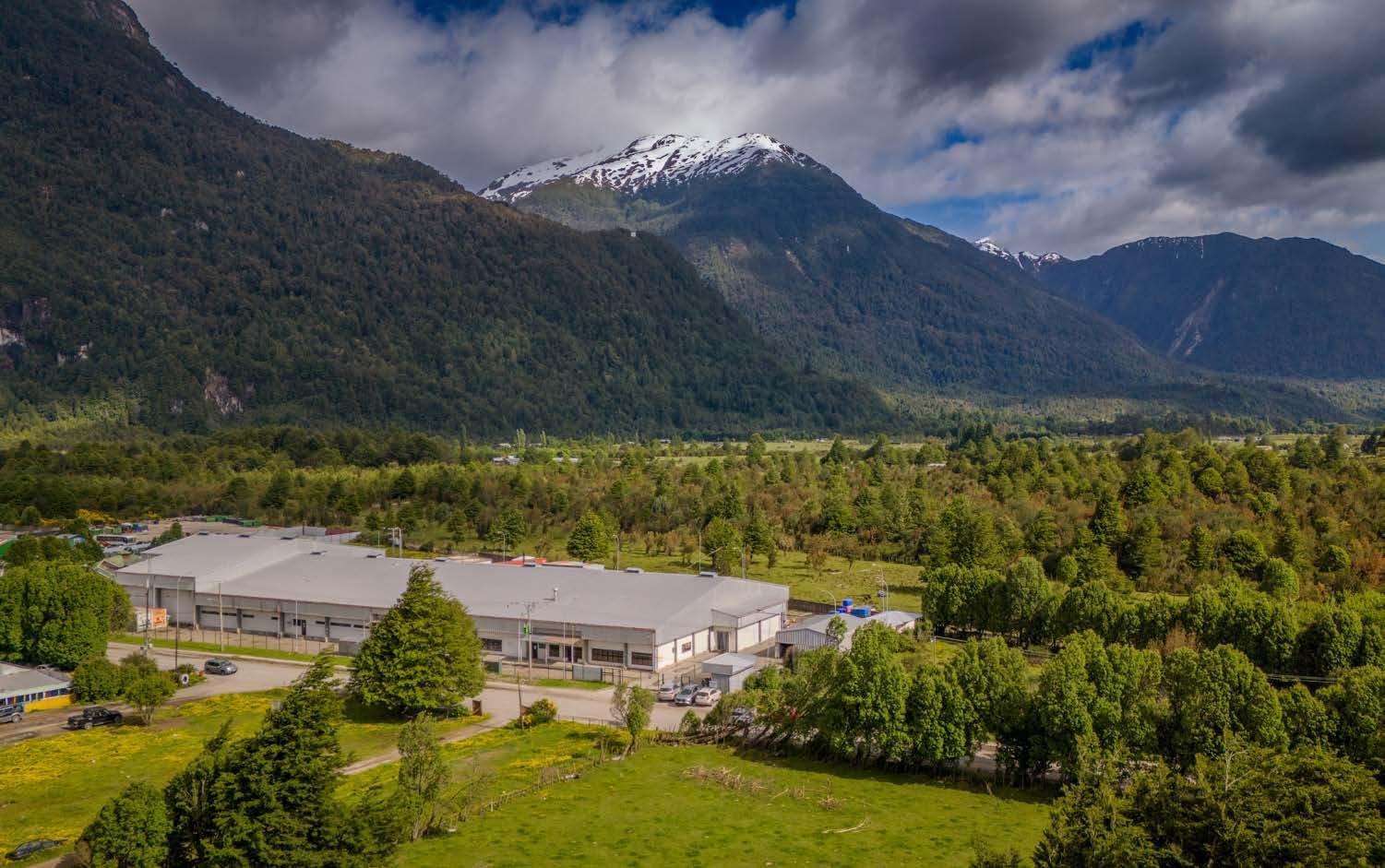
A promising future
The progress made in this nearly two-year journey allows to look ahead with optimism. The sight is largely on foreign markets, without neglecting the Chilean market. The focus will be on supermarkets and restaurants in the United States, where they hope to continue growing in Chilean seabass, and in China and other Asian markets with king crab. Rigoberto Rojo explains that they will also seek to cross-market products. Other key projects include developing the market in the Middle East, India, and, above all, Europe, where they opened a sales office six months ago.
Several efforts should generate an increase in sales, as forecasts are for revenues of US$65 million this year and US$100 million in 2027.
From the team's point of view, Rigoberto Rojo highlights four areas where they are already seeing results. First, the formalization of processes that did not exist before, in areas such as contract generation, regulatory compliance, and payments to suppliers. Added to this is a more precise definition of roles, which has resulted in the specialization of functions. “Third, employees see growth. There is more raw material, better facilities, and more sales. All of
this creates a virtuous circle of belonging,” says the executive, who also highlights greater access to new tools and knowledge in areas such as sustainability, antitrust, and maintenance, which were previously unknown to them and now not only strengthen their work but also their employability.
Fiordosur forecasts revenues of US$65 million this year and US$100 million by 2027.
IN THE PHOTO: Fiordosur plant in Aysén
FIORDOSUR:
Years of experience in processing and exporting premium seafood products.
Plants located in Puerto Aysén and Porvenir.
Interest in entering the international market.
The most sought-after products today are those with the highest added value.
Of the company was acquired by Orizon Seafood.
Since joining Nutrisco, the company's revenues have grown from:
Nutrisco went from being organized by companies to being comprised of business units that make up a single company that places the customer at the center of its strategy.
Shrimp, squid, octopus, cuttlefish, and high-value fish.

arauco: worldwide
COYANMAHUIDA PARK AND THE SILENT POWER OF THE FUNGI KINGDOM
After a huge fire in 2017 that destroyed 80% of Coyanmahuida Park, ARAUCO launched an ecological restoration process. Through the Bosque Abierto (Open Forest) initiative, today this park is fully restored and reopened to the community.
This is possible thanks to the silent power of fungi, which feed on the residual carbon left behind by fires, restoring the soil, remineralizing it, and regenerating it, thus transforming death into new life.
Coyanmahuida Park hosts unique biodiversity, including trees over 400 years old, endemic species, and more than 60 types of macroscopic fungi identified by scientists from the Applied Chemistry Laboratory at Universidad del Biobío. These species create an underground system that strengthens and connects vegetation, recycles nutrients, and protects the ecosystem.
Located just 38 kilometers from Concepción, Coyanmahuida is one of the last remaining areas of mature native forest in the region and is part of ARAUCO's network of conservation parks.

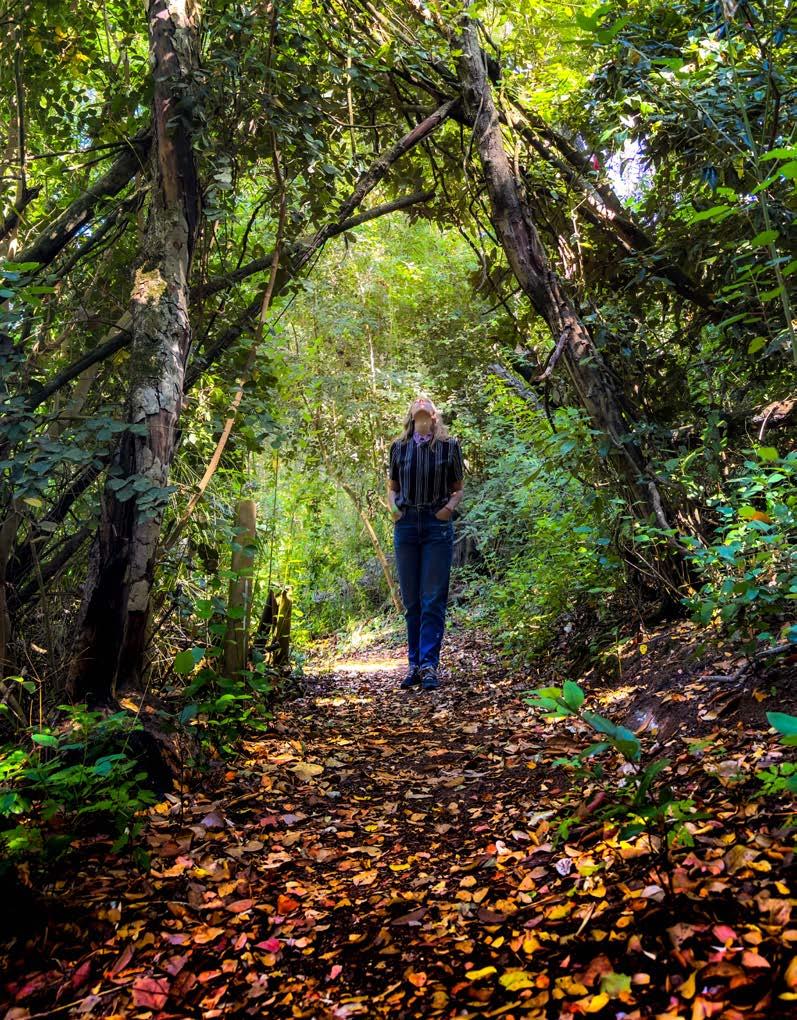
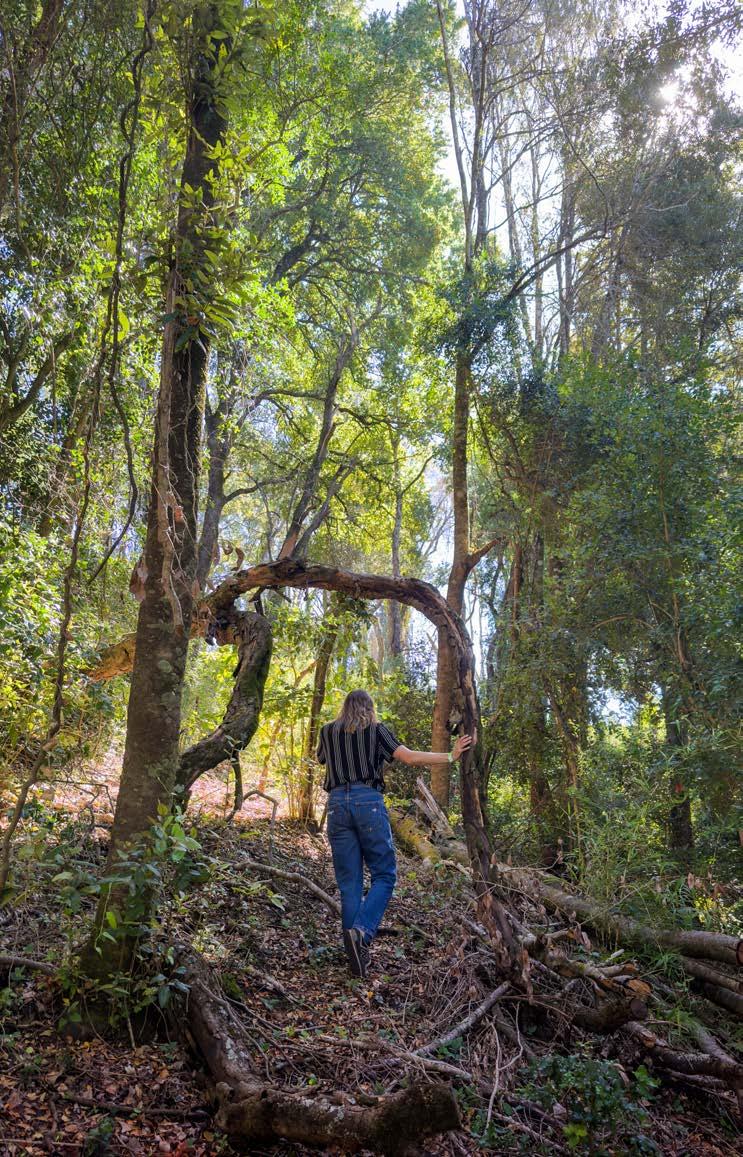


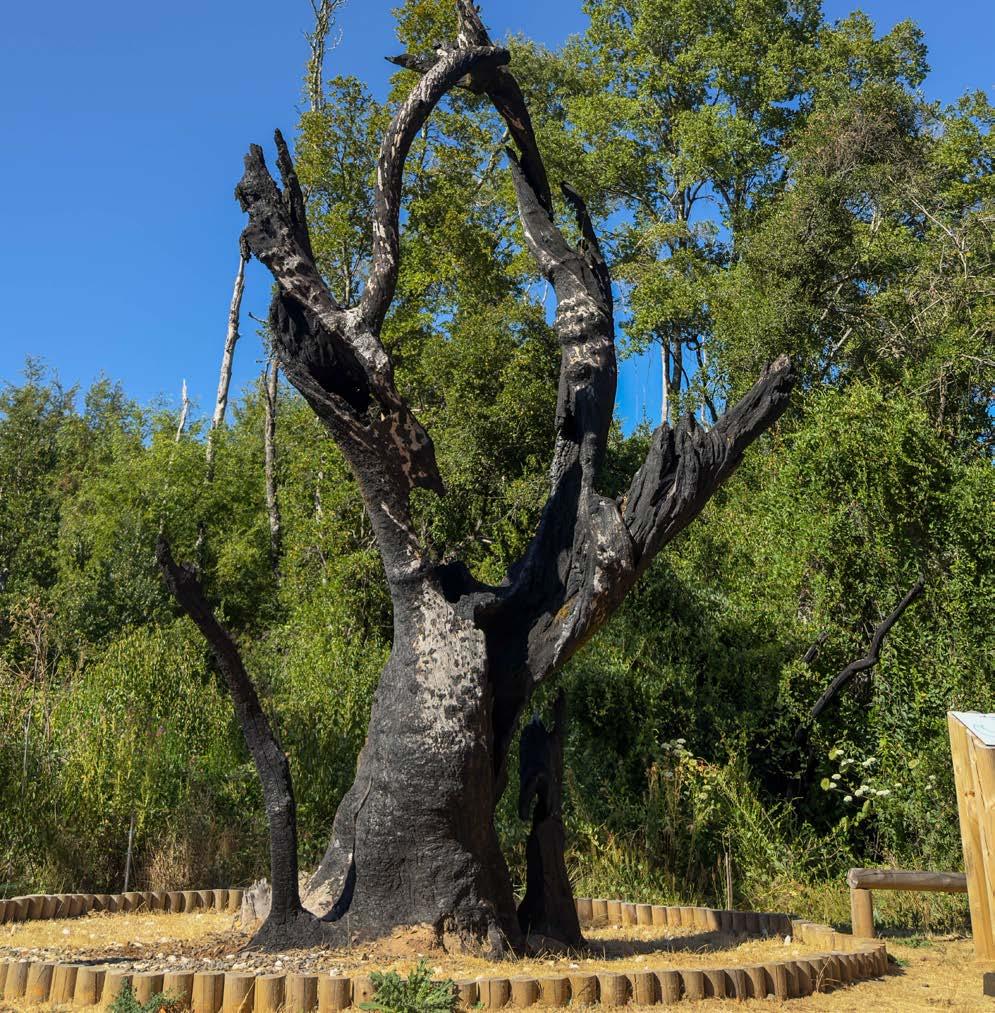


In 2024 Grande Pyme was created as a corporation that embraces as guiding principle that when small and mid-sized enterprises thrive, so does the country.
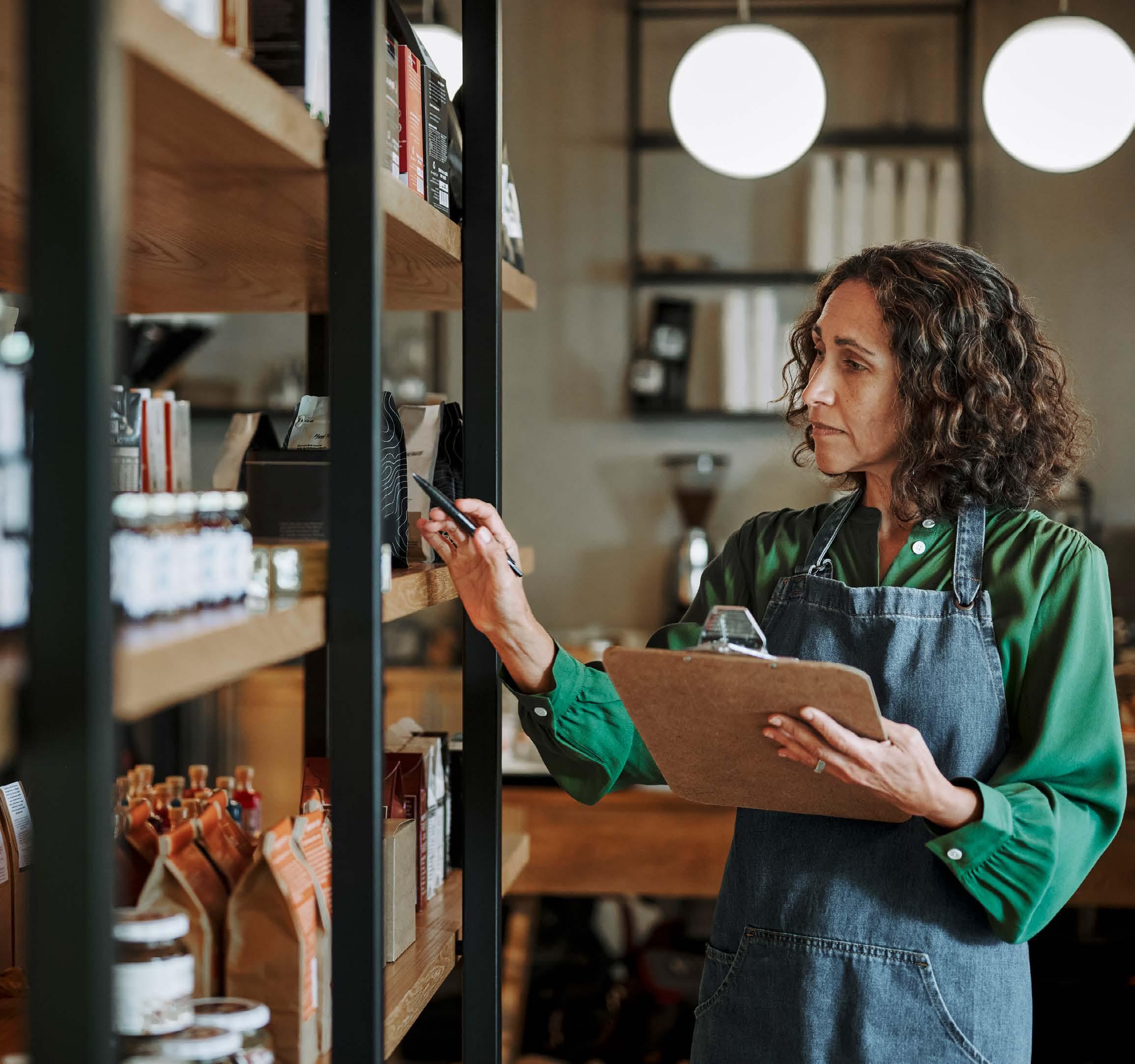
abastible: from the inside
GRANDE PYME: A STRATEGIC ALLIANCE FOR THE PRODUCTIVE HEART OF CHILE
Promoted by Abastible, BCI, Entel, and Sura, and with the support of players from the public sector, trade unions, and academia, a unique initiative has been launched to give visibility, connect, and empower small and medium-sized enterprises, which are key to employment, sustainable development, and social cohesion in the country.
Grande Pyme seeks to become a key player, generating strategic and quality information to positively influence the design of public policies, fostering virtuous relationships between large companies and their suppliers and customers, which are SMEs.

In Chile, small and medium-sized enterprises (SMEs) make up 98% of the business sector and generate around 64% of formal employment. However, they face an alarming paradox: although they are vital to the country's economic and social development, their share in total sales has fallen dramatically from 25% to 12.5% in the last 25 years.
Driven by the conviction that the well-being of the country is closely linked to the fate of its small businesses, Grande Pyme was created as a corporation that embraces the guiding principle that when SMEs thrive, so does the country. In response to this reality, this collaborative platform, led by large companies, was launched in December 2024 with the explicit purpose of highlighting and strengthening the strategic role of SMEs in Chile.
A collaborative, multi-sector platform
Grande Pyme, created by Abastible -a subsidiary of Empresas Copec- together with BCI, Entel, and Seguros Sura, with active participation from academia and trade associations, has a clear and urgent purpose. In this regard, its executive director, Katia Trusich, states: “The main role of this corporation is to highlight the importance of small and medium-sized enterprises for growth.”
Thus, Grande Pyme is a nonprofit organization that was created by the business community, but with a commitment to the public interest. Its mission is clear: to promote fairer and more sustainable conditions so that SMEs can grow, innovate, formalize, and contribute more strongly to Chile's development.
This initiative has focused on responding to multiple structural challenges affecting the sector, which were reflected in the Corporation's first diagnostic report, developed by Grande Pyme Observation Center together with Centro UC de Encuestas y Estudios Longitudinales. According to the report, SMEs face critical difficulties, such as limited access to financing, low productivity, lack of digitalization, and a high level of informality. All of these
phenomena threaten the economic and social stability of thousands of households in Chile.
In this context, Grande Pyme seeks to become a key player, generating strategic and quality information to positively influence the design of public policies, fostering virtuous relationships between large companies and their suppliers and customers, which are SMEs.
“Collaboration is key. We are not here to compete with trade associations or replace their role, but to complement it from a different perspective: that of large companies that understand that their development and purpose also depend on strengthening Chile's SMEs,” says Trusich.
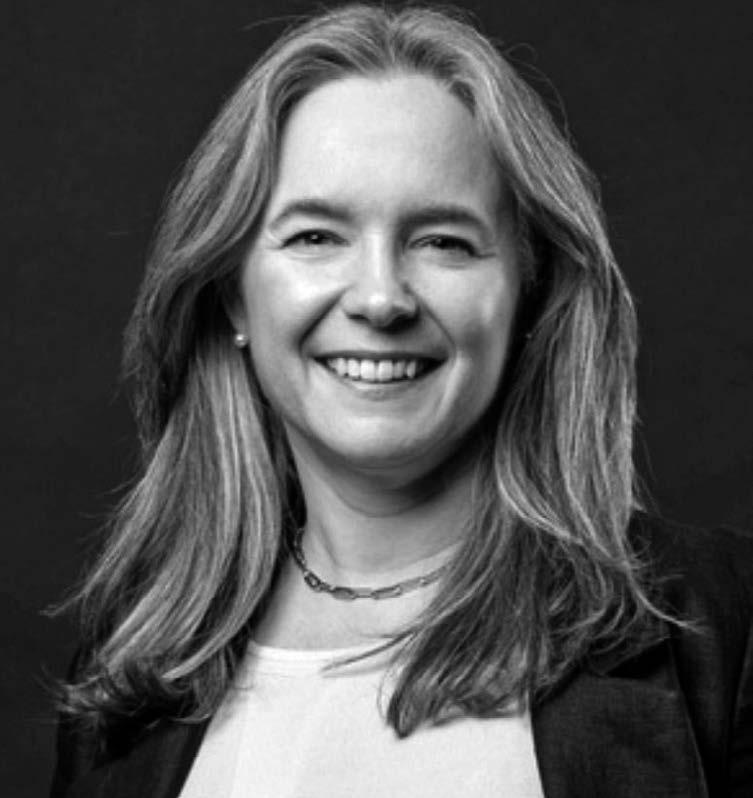
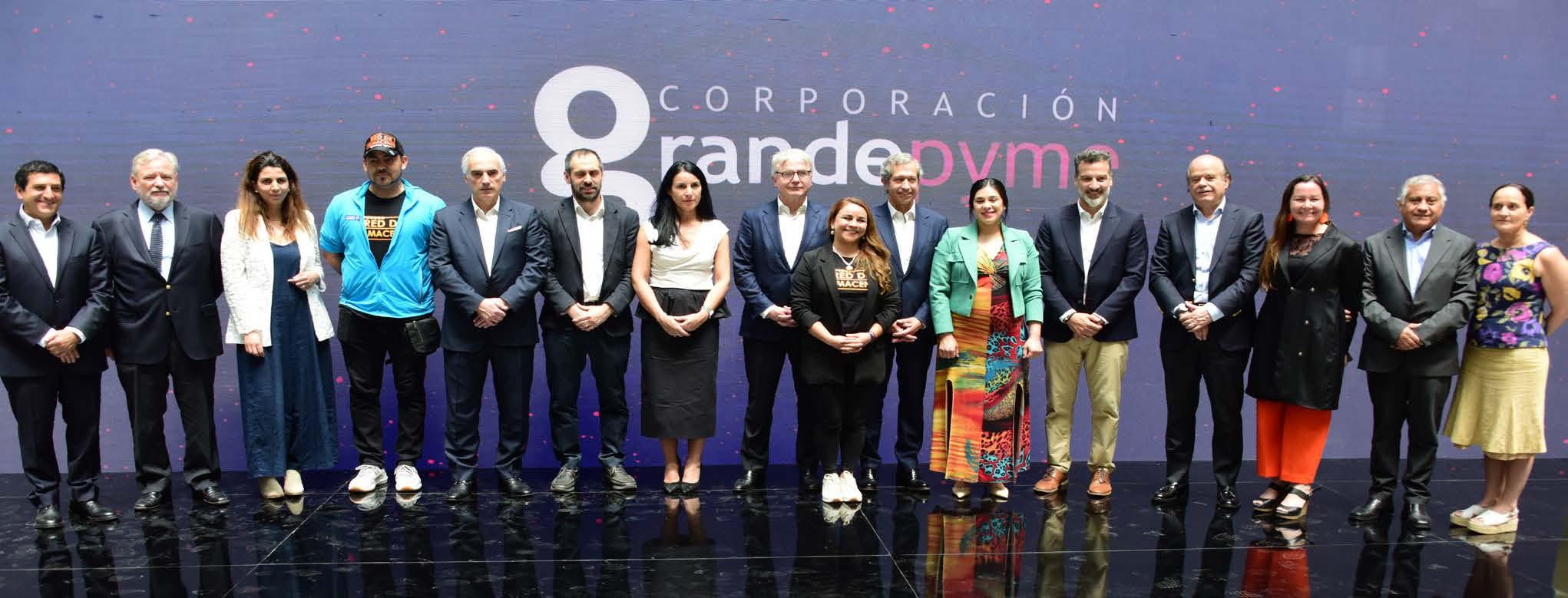
Progress and strategic alliances
In its first few months of operation, Grande Pyme has made significant progress. In addition to its collaborative work with Pontificia Universidad Católica de Chile (UC) to develop the Observation Center, agreements have been signed with CPC, SOFOFA, and new partners such as Duoc UC and Emprende tu Mente (EtM). It also has the support of the main trade associations and organizations representing the SME ecosystem throughout the country.
For the corporation's executive director, this diversity of players is the basis for generating structural change: “The ability to bring people together shows that there is a genuine desire to join forces. Today, there is a widespread call for objective data and a common voice to address huge challenges.”
Grande Pyme's governance is made up of a board of directors from the founding companies, a technical advisory council from Grande Pyme Observation Center, and working groups open to new players in the ecosystem.
Internationally, the association is working to formalize an alliance with the German Chamber of Commerce to identify and adapt the successful German model, where SMEs are the engine of the economy and account for more than 50% of GDP.
“Germany managed to rebuild its economy after World War II with a strong bet on SMEs. In Chile, we can aim to replicate this success,” says Trusich.
IN THE PHOTO: Katia Trusich
Executive Director at Grande Pyme.
-
Abastible's commitment: purpose and action
Abastible's participation in Grande Pyme was a natural and strategic step. More than two years ago, this subsidiary of Empresas Copec defined its purpose to focus on a clear goal: to promote entrepreneurship. “If SMEs grow, Chile grows. They should inspire our corporate purpose,” says Paula Jervis, Chief of Legal, Corporate Affairs and Sustainability at Abastible.
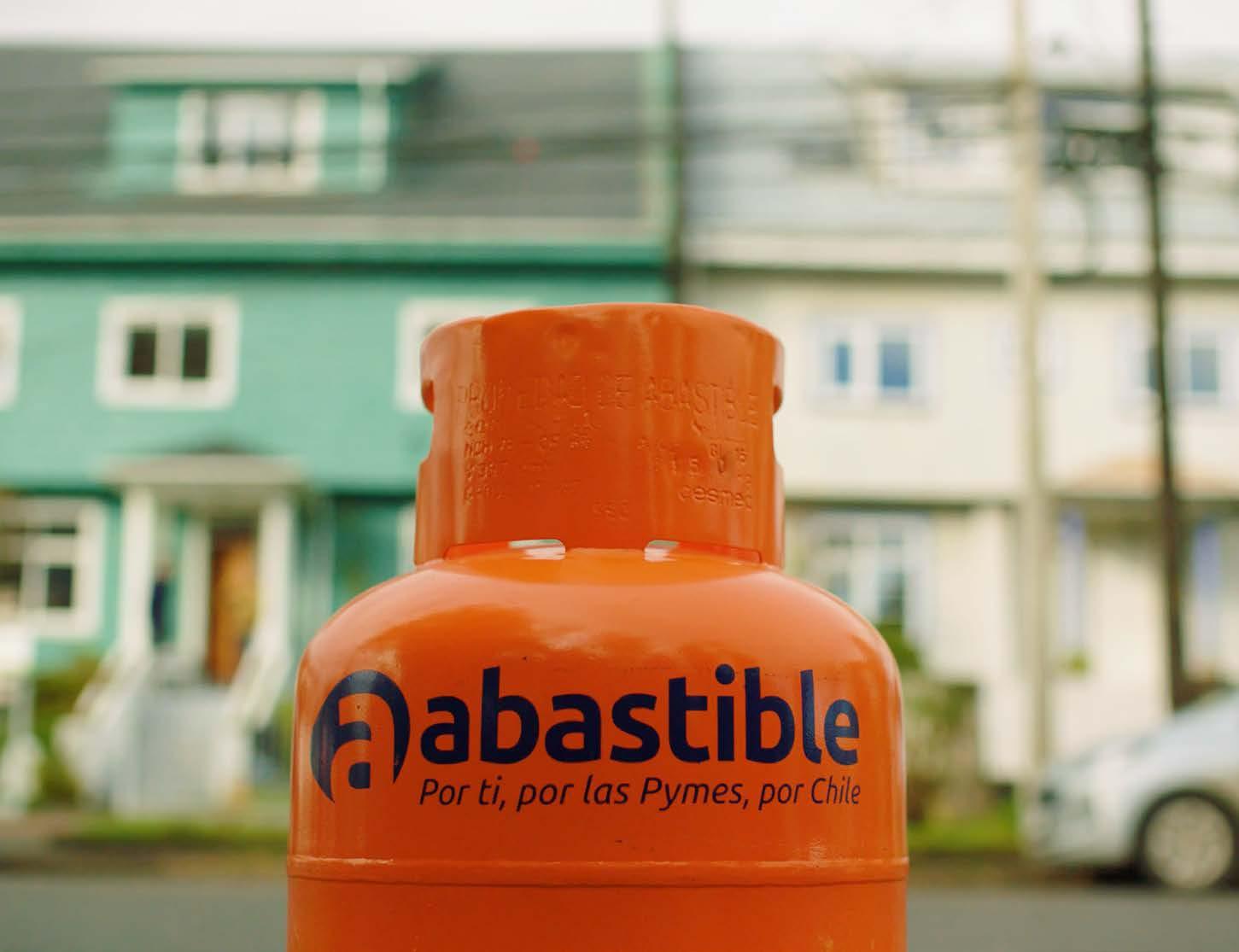
Abastible's participation in Grande Pyme was a natural and strategic step. More than two years ago, this subsidiary of Empresas Copec defined its purpose to focus on a clear goal: to promote entrepreneurial spirit.
This commitment is based on a long-standing relationship with more than 1,000 micro, small, and mediumsized enterprises that account for more than 90% of its liquefied gas distribution throughout the country. Many of these are family businesses, led by women and deeply rooted in their communities.
“At Abastible, we know how important micro, small, and medium-sized enterprises are for Chile, because our business model has a history of almost 70 years working closely with SME distributors, installers, and transporters, with whom we have grown hand in hand and generated a virtuous circle to bring liquefied gas energy to millions of homes and businesses in every corner of the country, with high standards of quality and safety,” said the executive.
Paula Jervis adds that “the SMEs we work with not only allow us to bring liquefied gas to thousands of households and businesses throughout Chile, but they are
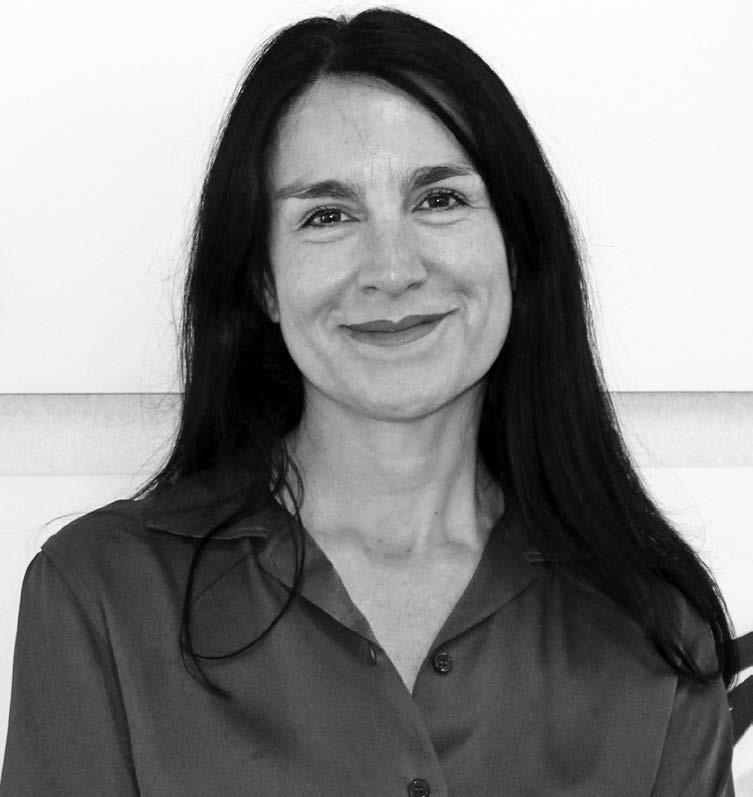
IN THE PHOTO: Paula Jervis Chief of Legal, Corporate Affairs and Sustainability at Abastible.
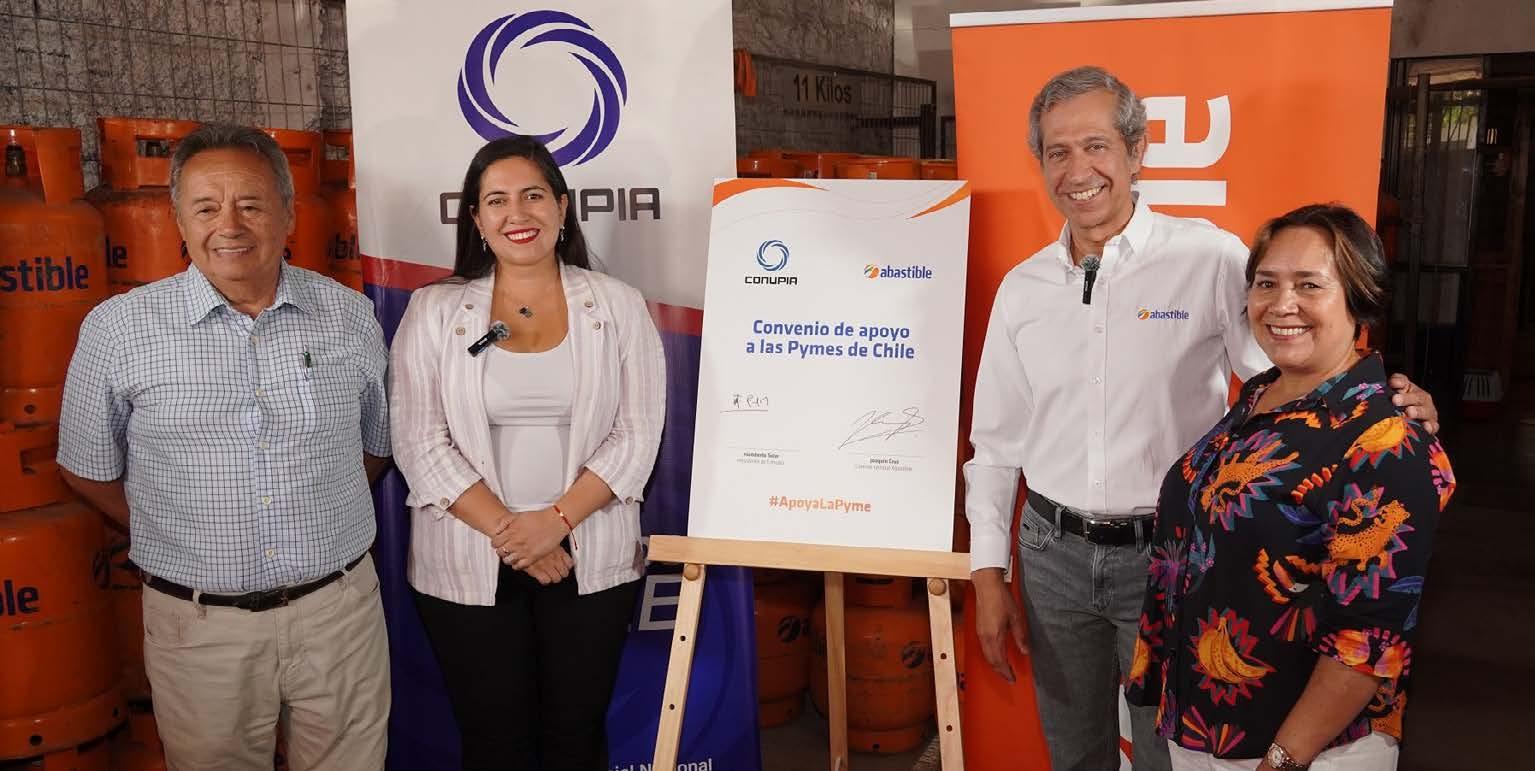
also our visible face in hundreds of neighborhoods nationwide. Therefore, training and supporting them is key to ensuring timely, safe, and quality service.”
Over time, Abastible has promoted specific actions to support their development. One of the most outstanding programs is “Seven-day payment”, a pioneering initiative that has directly benefited more than 3,000 SME suppliers, improving their cash flow and financial stability.
“One of the main problems faced by SMEs in our country is cash flow. That is why we implemented this specific measure, which allows us to pay our suppliers for their services in less than a week,” explains Jervis. Currently, 95.5% of payments to SMEs are made within that time frame, says the executive.
In addition, Abastible offers its SMEs training and certification programs for installers, allowing them to update their techniques and giving them more tools to perform excellent work with their customers, who are mostly families.
Also, the company has signed strategic alliances in different areas with organizations in the SME world, such as ASECH (Chilean Association of Entrepreneurs), CONAPYME (Chile’s National Confederation of Micro, Small and Medium-sized Enterprises), UC, EtM, and Corporación Simón de Cirene, among others, seeking to provide as much direct support as possible to its partners.
This deep connection with SMEs led Abastible to acknowledge the need for a broader collective effort through Grande Pyme. “Collaboration is key to generating structural and sustainable change in the entrepreneurial ecosystem. By joining forces, the impact of each initiative is enhanced, best practices are shared, and more comprehensive solutions that are representative of the real needs of SMEs are built,” says Paula Jervis.

IN THE PHOTO:
Joaquín Cruz, CEO at Abastible, signing a collaboration agreement with CONUPIA (Chile's Association of Small Industry and Handicrafts).
One of the key cornerstones of Grande Pyme is the collection and analysis of relevant, reliable, and comprehensive data that provides valuable information on the current state and evolution of the sector.
Evidence for decision making
One of the key cornerstones of Grande Pyme is the collection and analysis of relevant, reliable, and comprehensive data that provides valuable information on the current state and evolution of the sector. The first report from Grande Pyme Observation Center revealed some striking figures: an overall informality rate of around 21%, reaching 47% in the microenterprise segment, low levels of access to banking services, limited association, and a worrying digital gap.
According to this study, two out of three new SMEs disappear within three years, 70% are started with only the owner's savings and operate with 50% lower productivity than large companies, which exposes them to disappearing in the short term.
“This structural fragility is incompatible with sustainable economic growth. We urgently need to integrate SMEs into productive and technological processes that strengthen their competitiveness and viability,” emphasizes Katia Trusich. To this end, the corporation is working to develop regular indicators, national surveys, and a repository of best practices.
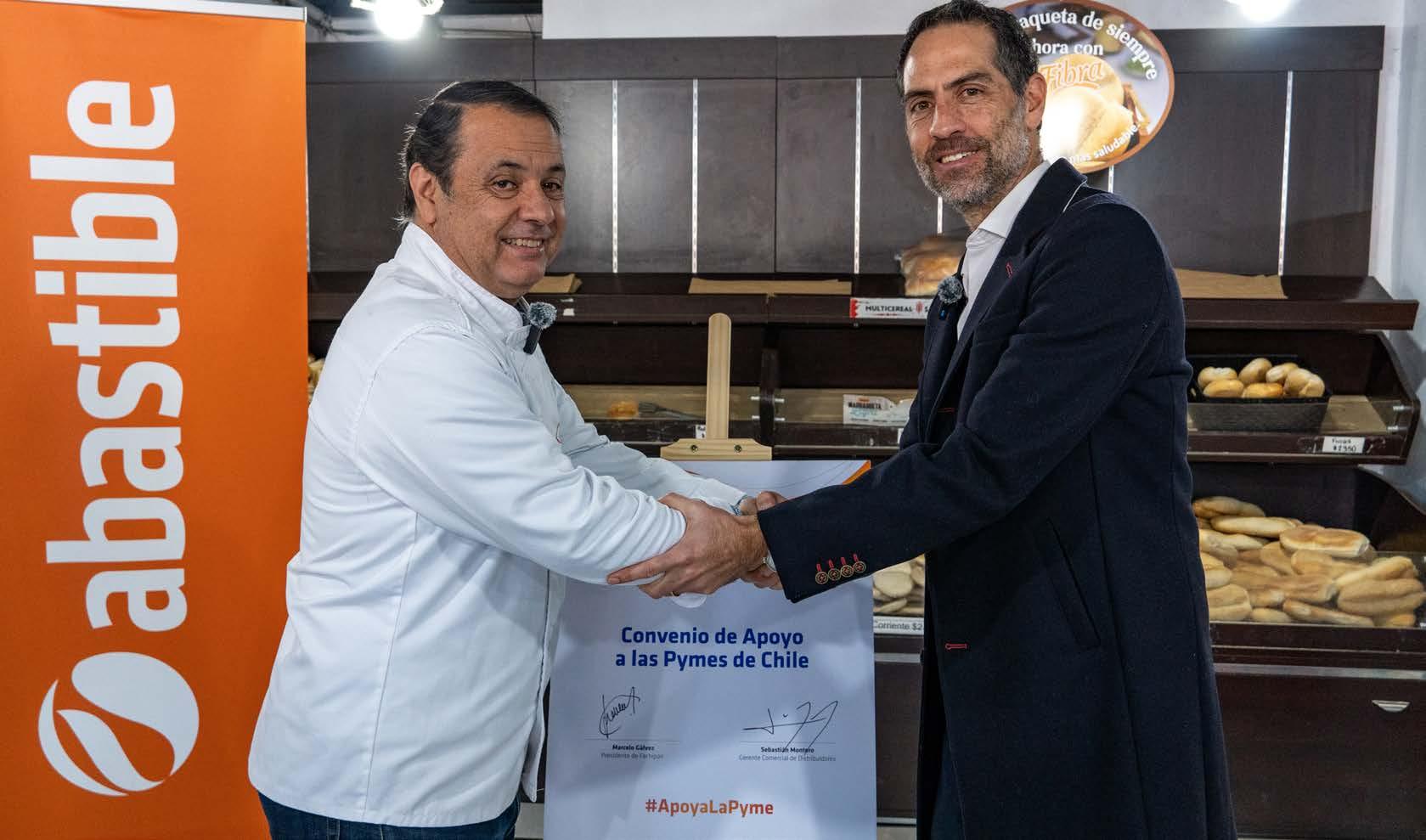
One of the most ambitious goals is to generate a statistical baseline with more than 2,000 SMEs to track their evolution over time. Quarterly and annual indicators are also planned to monitor their economic, social, and regulatory activity, including their level of regulatory compliance, formalization, and contribution to female and migrant employment.
“Having robust data is essential for any public policy decision-making. We need to be able to measure, for example, SMEs’ IMACEC (monthly report on economic growth), their monthly economic activity, how much sales they generate, and how much they contribute to Chile's GDP,” says Trusich.
IN THE PHOTO:
Sebastián Montero, LG business manager for Chile at Abastible, sealing an alliance with Fechipan (Chilean Federation of Industrial Bakers) that benefits 18,000 bakeries.
An inclusive and sustainable future
The challenge posed by Grande Pyme is not insignificant, however, its promoters are confident that this strategic alliance will succeed in mobilizing the productive and social potential of small and medium-sized enterprises in Chile. With a comprehensive approach, from formalization to internationalization, including digitalization and timely financing, the platform seeks to be a catalyst for inclusive and sustained growth.
“We want to be a leading source of opinion and contribute to the public debate on business development policies. Today, a large company cannot grow alone. It needs an ecosystem of solid, diverse, innovative, and well-prepared suppliers to take on the challenges of the present and the future,” says Katia Trusich.
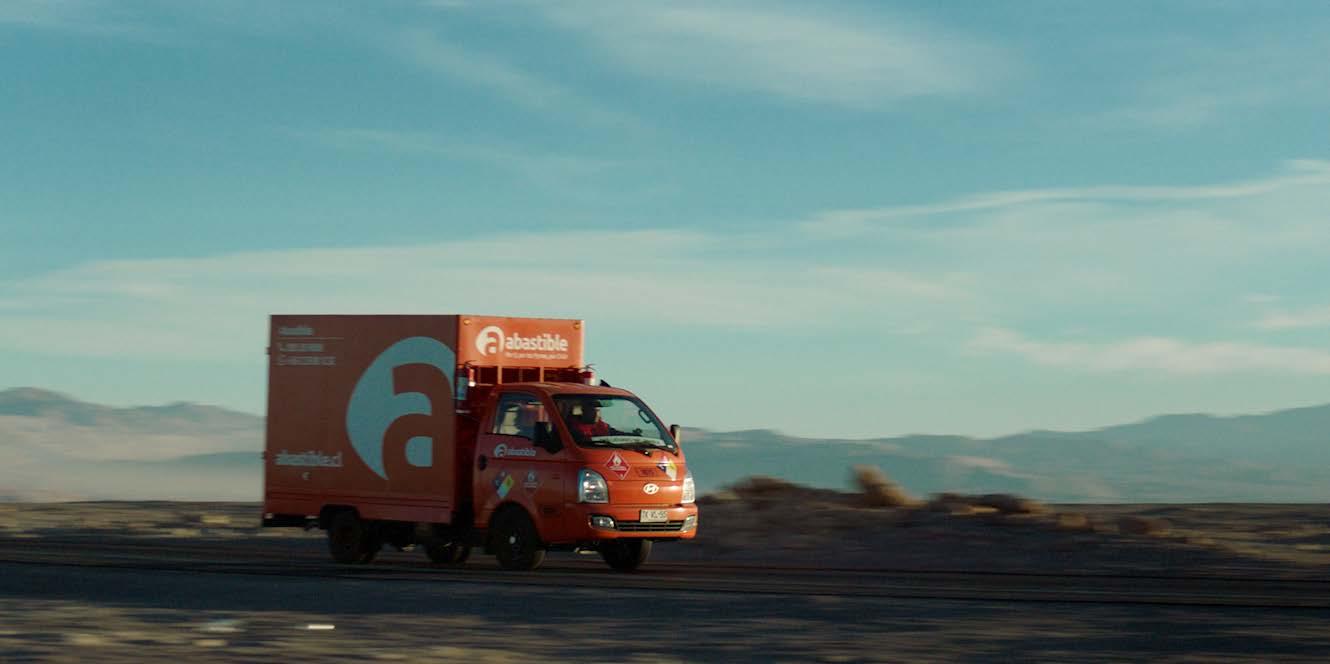

Chile is facing a historic opportunity to reverse the silent crisis of its small and medium-sized enterprises. With the active participation of the business ecosystem, it could become the engine of a more robust, inclusive, and resilient economy, one where SMEs thrive and, with them, the entire country flourishes.
Of Chile's business sector are small and medium-sized enterprises (SMEs).
Years working in collaboration with SME distributors, installers, and carriers to bring liquefied gas energy to millions of homes and businesses. They generate around Of formal employment. 98%
Of its gas distribution is carried out by more than a thousand micro, small, and medium-sized enterprises.
3,000
A pioneering initiative that has directly benefited more than: SME suppliers. Improving their “7-day payment” program
GRANDE PyME ' S
AREAS OF WORk
1. RESEARCH AND ADVOCACy IN PUbLIC POLICy:
Through Grande Pyme Observation Center, relevant data on the entrepreneurial ecosystem is collected and analyzed with the aim of providing tangible inputs for public policy formulation.
Grande Pyme corporation is structured around three strategic cornerstones:
2. PROMOTION OF GOOD bUSINESS PRACTICES:
Through partnerships with trade associations, such as CPC and SOFOFA, the aim is to promote initiatives and commitments such as timely payment to suppliers, fair contractual conditions, and supplier development programs.
3. VISIbILITy AND PUbLIC AWARENESS:
Through partnerships with players in the SME ecosystem, the corporation will hold forums for dialogue and dissemination that highlight the key role of SMEs in the country's economic and territorial development.
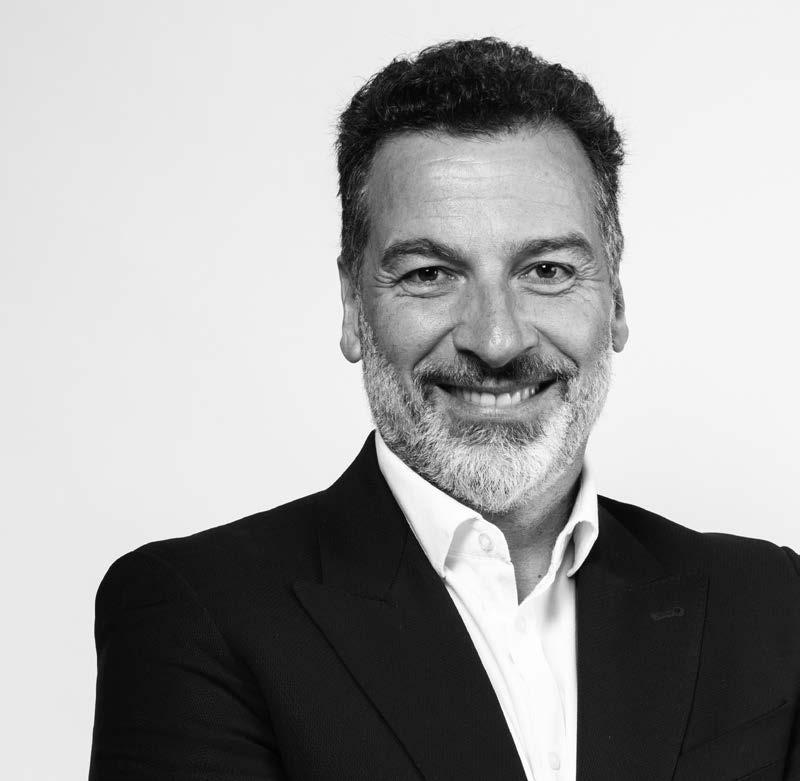
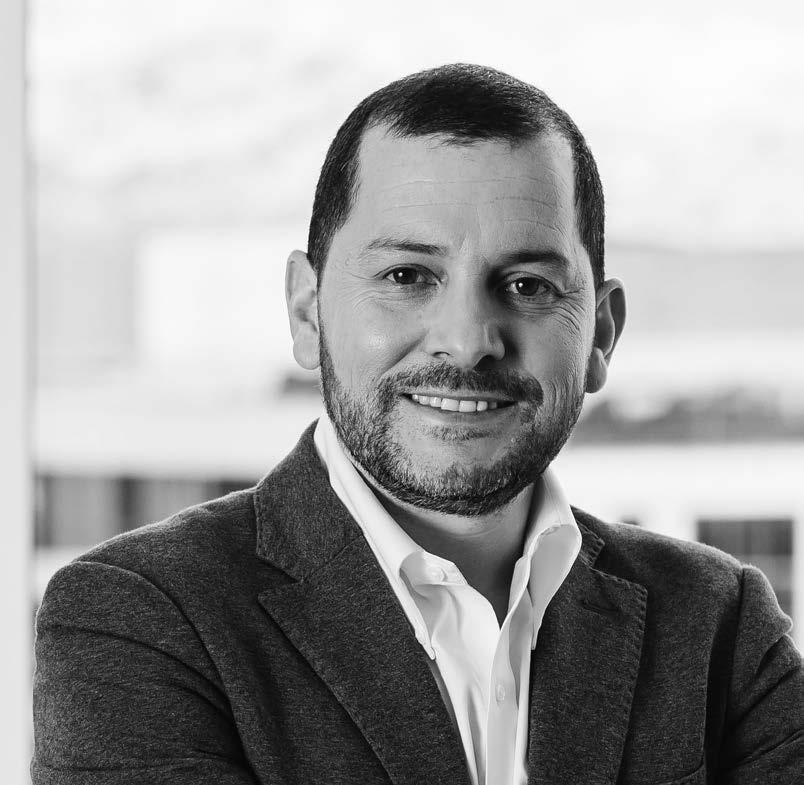
THE COMPREHENSIVE CONTRIBUTION OF SEGUROS SURA
Gustavo Espósito, executive president of Seguros SURA, highlights that participating in Grande Pyme “allows us to collaborate with other organizations that share our vision, hear their concerns firsthand, and co-build solutions that truly impact the sustainability and growth of small businesses.” For SURA, this commitment goes beyond offering insurance solutions: it involves contributing to the design of an environment that allows them to innovate and move forward with confidence in their businesses.
BCI AND ITS COMMITMENT TO SMES
“Entrepreneurship creates jobs, generates opportunities, and is the cradle of great ideas that move the world,” says Sebastián Castro, Chief of Valor PYME at BCI. In his opinion, Grande Pyme represents an opportunity to deepen the bank's commitment to this sector, better understand its needs, and enrich the proposals and solutions it offers. “At Bci, we want to contribute to building a fairer and developed country, where SMEs have the space they need to reach their dreams and aspirations.”
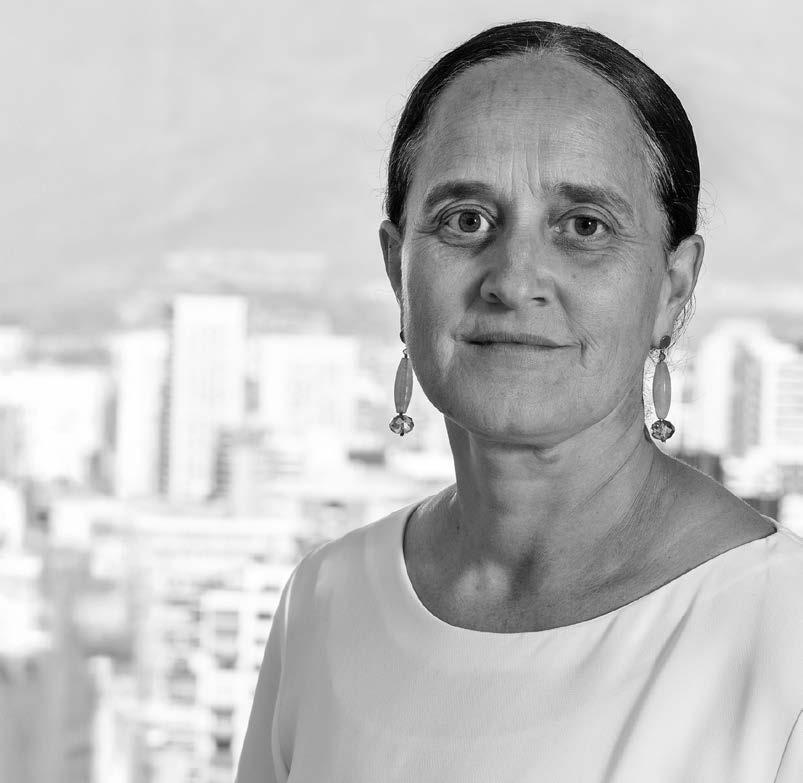
INNOVATION AND TECHNOLOGY WITH ENTEL
Entel, meanwhile, highlights its commitment to digitalization as a fundamental path to strengthening the sector's capabilities. Francisca Florenzano, the Chief of Sustainability and Communications at Entel, states: “Bringing technology closer and supporting SMEs in their digitalization is key to their prosperity and leadership in an increasingly connected world.” Based on its technological experience, the company provides resources, strategy, and vision to support SMEs in this process. “We hope that Grande Pyme will become a transformative platform that connects networks, generates opportunities, strengthens capabilities, and opens new paths.”
EXECUTIVE PRESIDENT OF SEGUROS SURA.
SEbASTIÁN CASTRO CHIEF OF VALOR PyME AT bCI.
FRANCISCA FLORENZANO AND COMMUNICATIONS AT ENTEL.
Copec Emoac's value proposition integrates power, intelligence and energy efficiency, real-time digital monitoring and specialized technical consultancy.
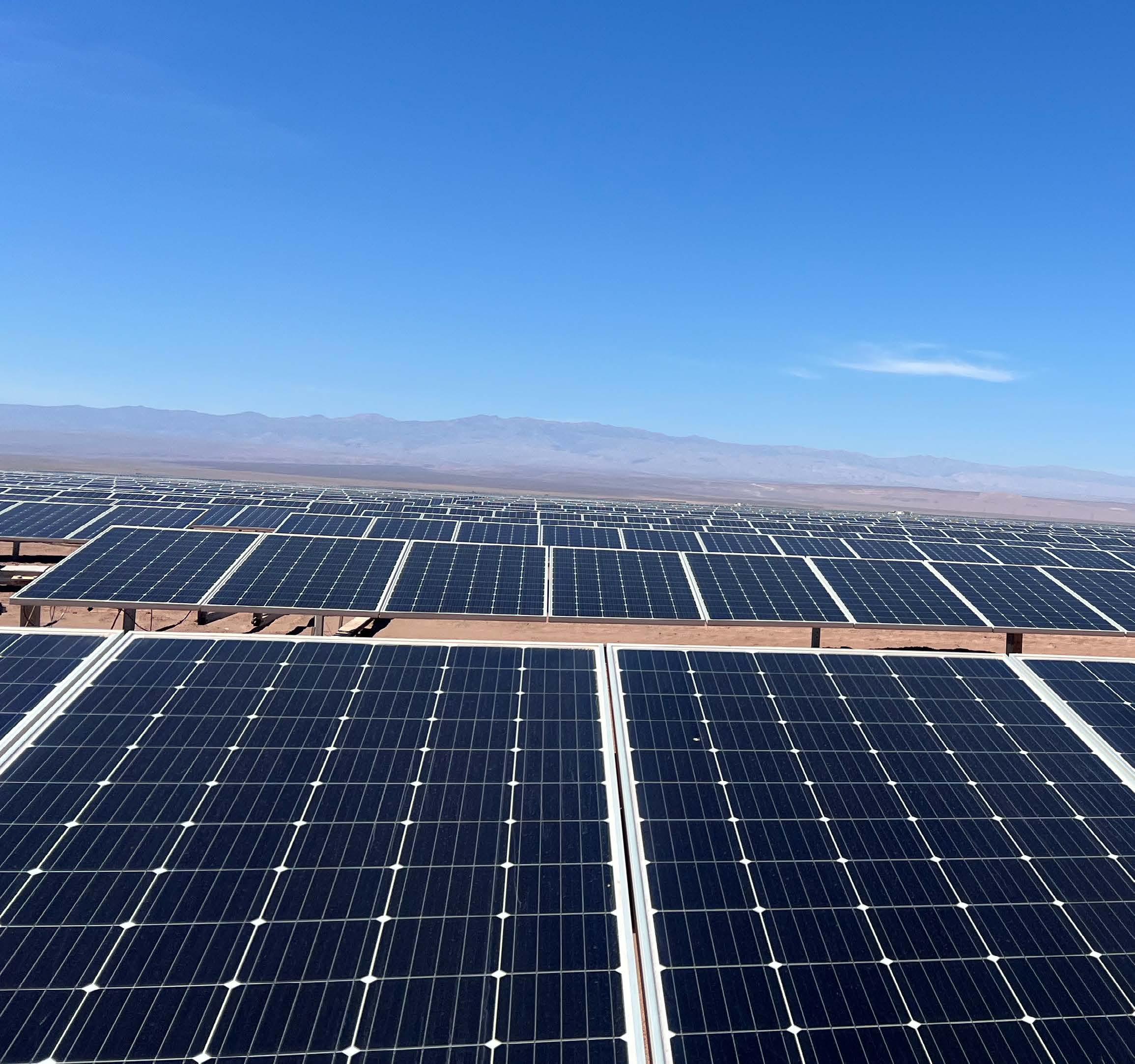
A SUCCESSFUL RISE IN THE CHILEAN ENERGY MARKET
In almost six years of operation, Copec Emoac has become the second largest energy supplier for non-mining, non-regulated customers. During this time, it went from 40 customers and 400 GWh sold in 2023, to 300 clients and 1,500 GWh in 2025. The company expects to reach more than 400 clients and 2,000 GWh in 2026, and thus consolidate its position as a relevant player in the competitive national electricity market.
copec emoac: from the inside
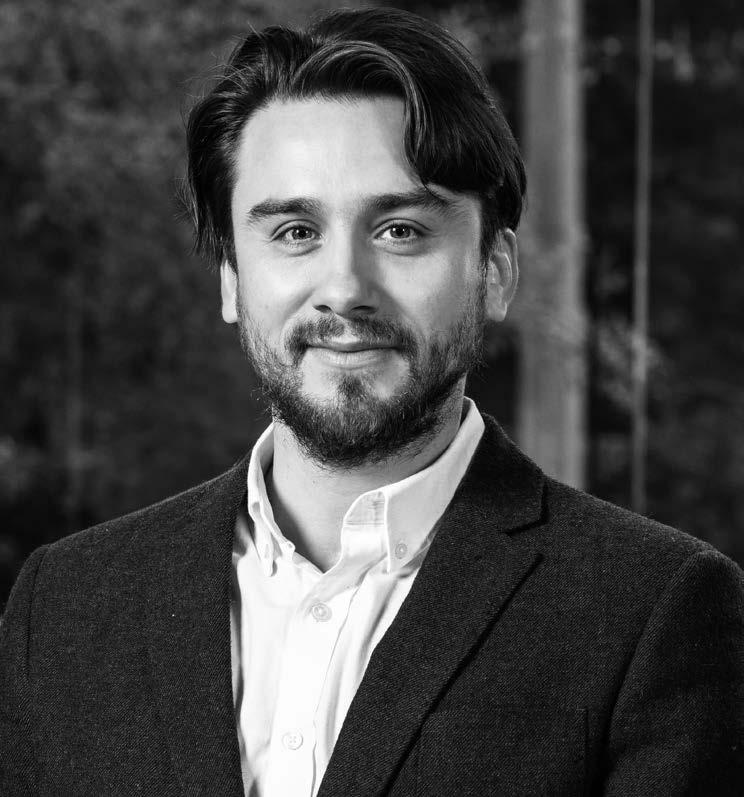
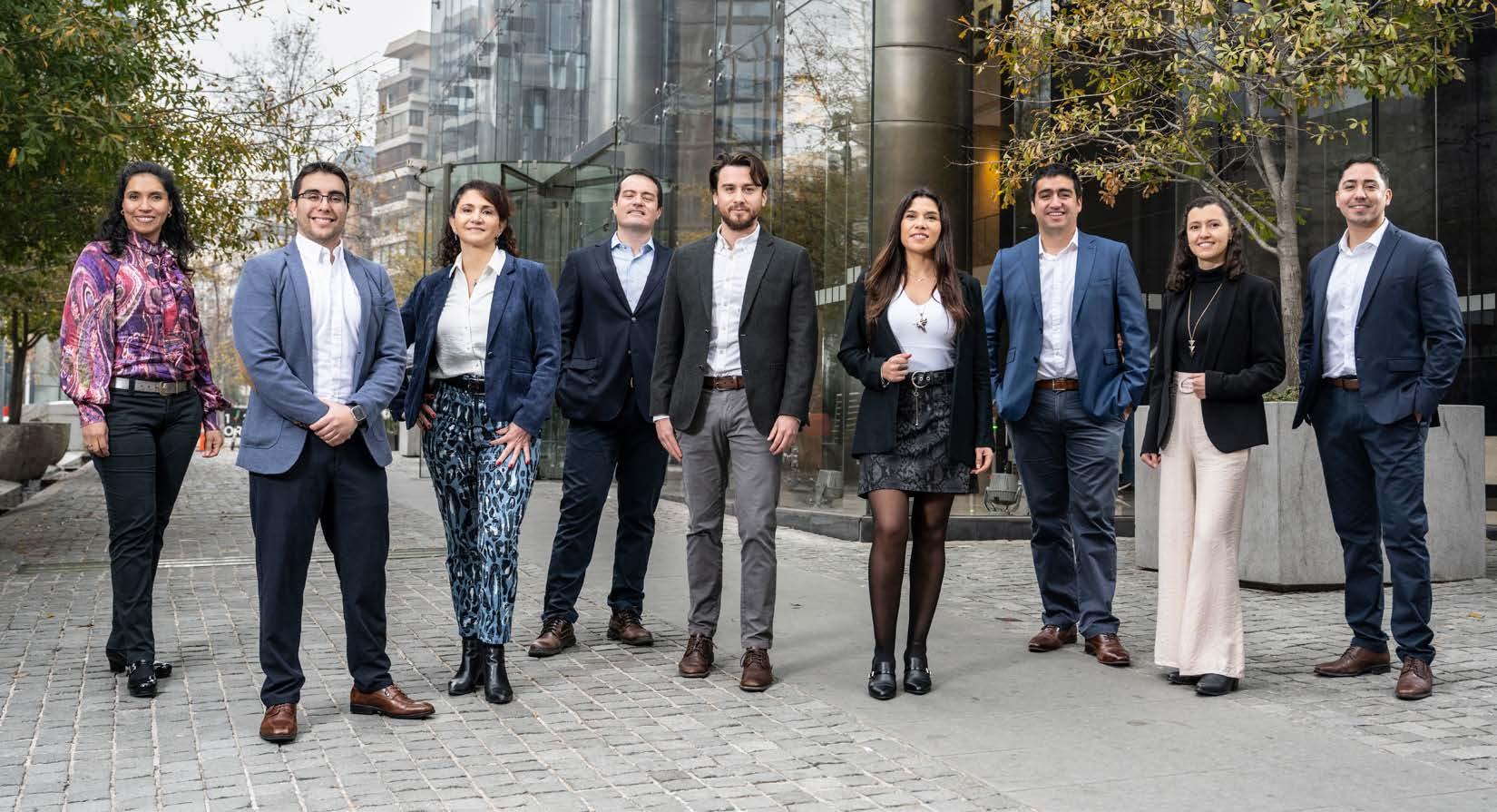
respectively. Thus, they came to a conclusion: the electric power industry was concentrated, underserved and marked by misinformation.
Then, they faced the next step, which was to directly sell energy. To do so, they looked for a partner that not only had financial backing, but also a long-term view and a focus on customer service. Thus, in 2019 they became part of Copec, a company that has drafted a path to grow progressively in new energies and sustainable mobility.
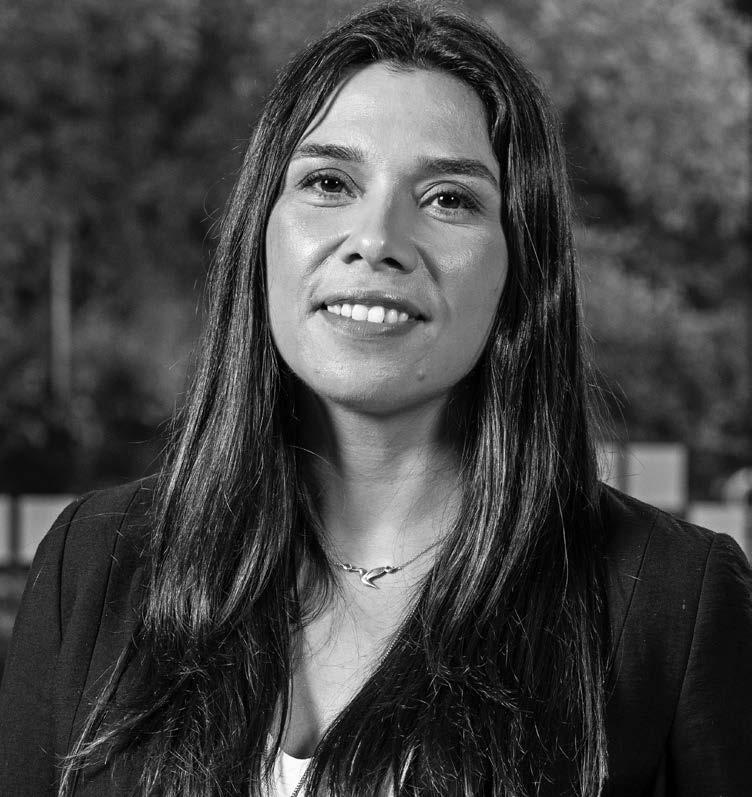
This accelerated growth has its origin in 2012, when Vannia Toro and Mauricio Olivares, electrical engineers and two of Emoac founders, based on their work experience in the Electric Coordinator and the knowledge acquired of the industry, economy and sector regulation, created and taught courses on the electricity market at Universidad de Chile and Universidad de Santiago, _
In 2015 they began to offer engineering and consulting services, focusing on non-regulated customers, since many companies were unaware that they could leave the regulated customer regime to become nonregulated. This allowed them to negotiate and access better energy prices. At the beginning they had a broker role between grouped customers and suppliers, but once the benefits of the change were known, there was an explosive growth. Between 2015 and 2018 they advised 30% of the demand that became non-regulated customers, going from 100 to four thousand in just three years, thus changing the market.
IN THE PHOTO: Vannia Toro Founder of Emoac.
IN THE PHOTO:
Mauricio Olivares and Vannia Toro with part of the Copec Emoac team.
IN THE PHOTO: Mauricio Olivares Founder of Emoac.
Vannia Toro, CEO of Copec Emoac, explains: “We aligned ourselves with Copec because we have the same service foundation. We did not want to become a generator whose focus was to sell energy and be gone. We already had areas of analysis and we wanted the service to be much more digital, more informed, with advice on efficiency, and we saw that Copec had this focus on the customer and on comprehensive service.”
Meanwhile, Arturo Natho, CEO at Copec, adds: “With the purchase of Emoac we consolidate a robust sales platform of 100% renewable energy, designed especially for the nonregulated customer segment, with intelligent, traceable and sustainable energy solutions.”
Precisely, the greatest potential lies in energy contracts aimed at this type of customer, which is why Copec Emoac has implemented a competitive supply strategy that is the result of planning and which today translates into 21 renewable projects owned by and developed for Emoac, that make up the portfolio that allows them to serve non-regulated customers. Mauricio Olivares, the company’s Commercial

“Our plan is to continue anticipating future demand, guaranteeing a reliable supply and strengthening long-term relationships with our industrial and corporate clients,” says Arturo Natho, Copec’s CEO.
Manager explains: ”A good reason for the growth we are seeing today has to do with the silent work of studying the market and putting together a competitive portfolio, which entails looking for different types of technologies geographically located in different regions of the country.”
Arturo Natho adds: “We prepared ourselves for an accelerated growth rate and this growth has been sustained thanks to the planning of the portfolio, which we drafted between 2022 and 2023, and gave us a clear roadmap to scale up solidly.”
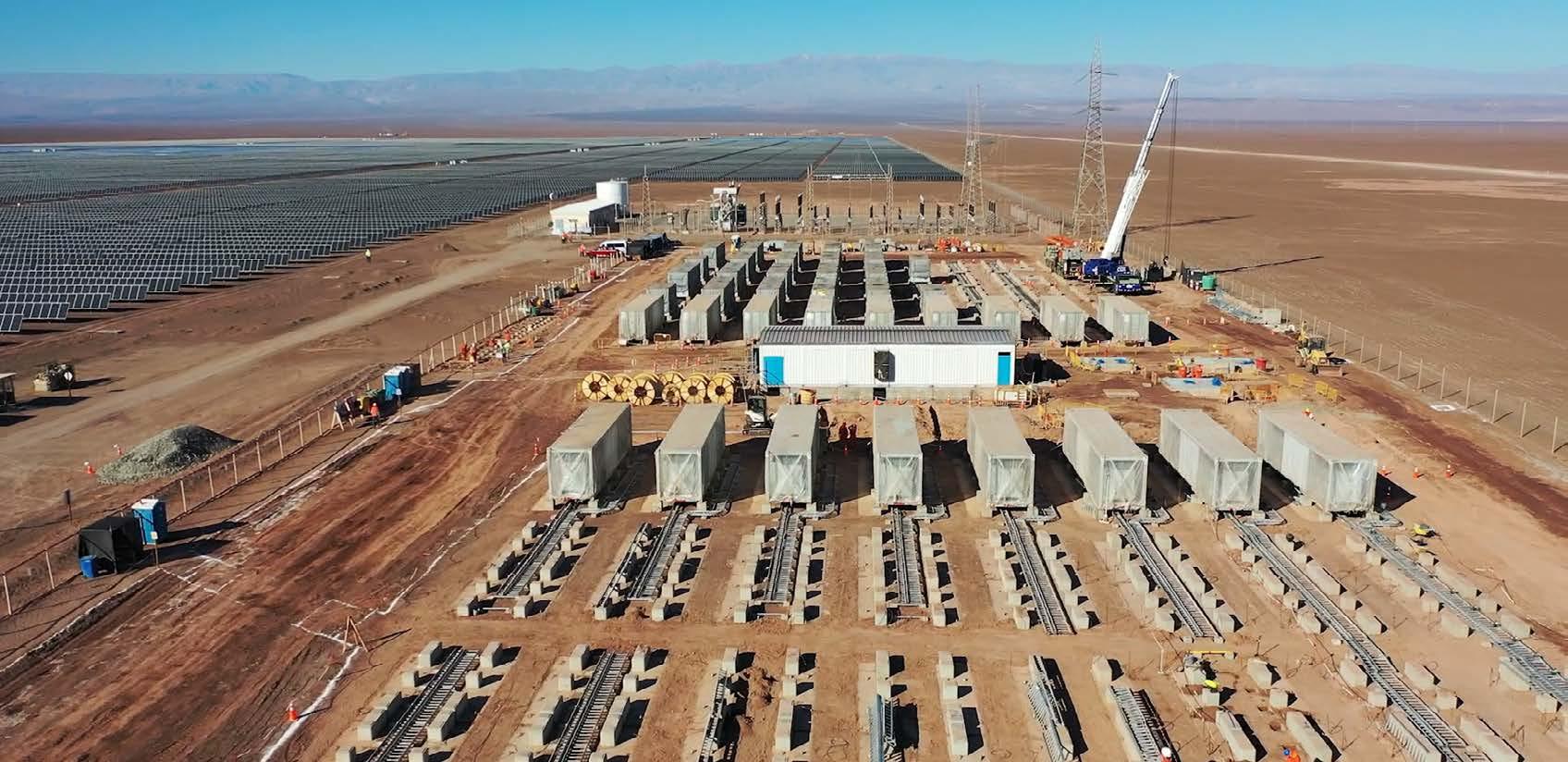
IN THE PHOTO: Arturo Natho CEO at Copec.
_ IN THE PHOTO: Construction of a Battery Energy Storage System (BESS) at the Granja Solar Photovoltaic Park.
In this context, and to strengthen the electricity supply business, the company has recently announced important agreements, such as the acquisition of the Granja Solar photovoltaic farm in Tarapacá, with an investment of US$ 91 million and a generation capacity of 123 MWp, which, by 2026, will have a Battery Energy Storage System (BESS) with a storage capacity of 420 MWh and an injection power of 105 MW, which will ensure a stable and continuous supply.
They also signed a night-time sales contract with Grenergy for the supply of 8 TWh for 15 years. This storage technology is crucial to capture renewable energy and inject it during the night, being a key cornerstone for the decarbonization of the electricity system. In addition, another 15year power purchase agreement
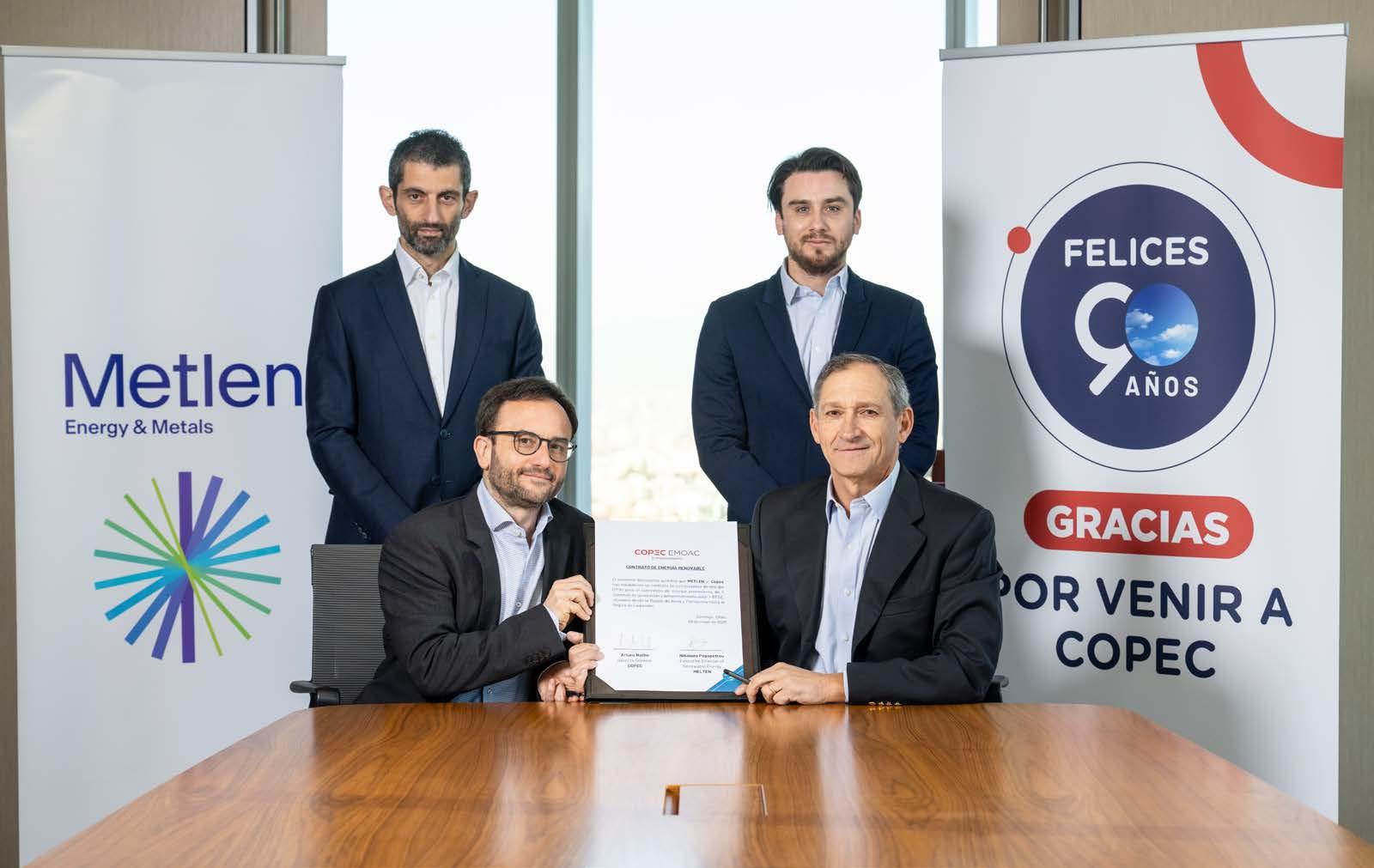
was signed with Atlas Renewable Energy, which will promote one of the largest BESS projects in the country, aimed at resolving the NCRE dump. In addition to this, a power purchase agreement was recently signed with Metlen for the same timeframe, which considers a supply of 450 GWh, and which will also be backed by 322 MW in BESS battery storage systems, so that Copec Emoac will have access to renewable energy during times of low solar generation.
Energy as a strategic service
For Copec, energy is not a commodity, but a strategic service, as the customer seeks to be supplied in a renewable and efficient way. Arturo Natho explains: “Copec Emoac is more than a marketer, it is an energy partner. Its value proposition integrates power, intelligence and energy efficiency, real-time digital monitoring and specialized technical consultancy.”
Digitalization, which seeks to achieve greater energy efficiency for customers, has led the company to manage more than 10 thousand points where parameters such as electricity, gas, water and pressure are measured. This allows customers to visualize their consumption and cross-reference it with the business, raising indicators and thus accessing a reporting system that allows them to manage and take actions in all types of industries.
IN THE PHOTO:
Arturo Natho, Copec's CEO, and Mauricio Olivares, Copec Emoac's commercial director, during the signing of the PPA (Power Purchase Agreement) contract with the Greek company Metlen.
In this way, by 2025 they will reach 300 clients, including Ariztía, Telefónica, Watts, Grupo Patio, Sonda, Vivo, Lucchetti, PUC, Politex, Clínica Las Condes, Clínica Meds, Compañía Minera San Gerónimo, Inversiones Hoteleras Holdings (IHH) and CIC, among others, and by 2026 they will supply more than 2,000 GWh of 100% renewable energy.
Some projects stand out, such as Walmart in 2024, an alliance to improve the air conditioning energy systems in the retailer’s supermarkets. Through the implementation of 650 intelligent motors developed by Turntide Technologies, in 87 stores located in the Metropolitan Region, the multinational firm has reduced by 30% the energy consumption used to keep the air conditioning systems

For Copec, energy is not a commodity, but a strategic service, as the customer seeks to be supplied in a renewable and efficient way.
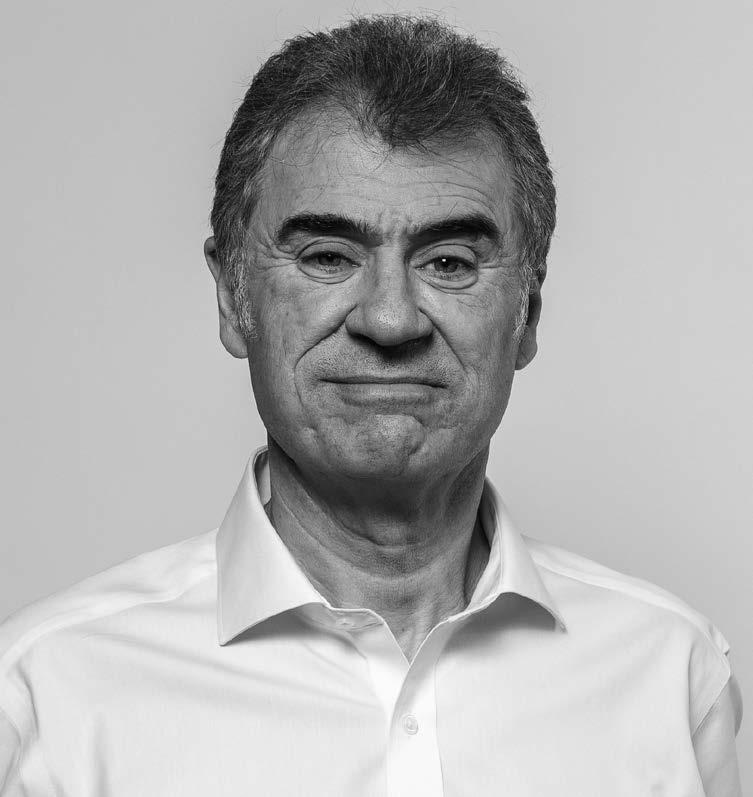
running inside its stores. This has led to savings of at least 6.8 GWh per year and a reduction of 1,645 metric tons of CO2 emissions. Leonardo Ljubetic, Chief Development Officer at Copec, illustrates with this case the benefit for customers of adopting energy efficiency measures: “Large retail companies, such as Walmart Chile, usually have high energy demands, and this technology allows them to reduce operating costs and mitigate environmental impacts effectively.”
Also relevant is the experience gained with the salmon company Mowi, in the Los Lagos Region,
advising them in their energy transition strategy with the implementation of energy management plans, which has allowed them to obtain internationally required certifications as an exporter. They have also developed digitalization projects in offshore structures, being the first to implement a measurement and control system in the area.
_ IN THE PHOTO: Granja Solar Photovoltaic Park, Tarapacá.
IN THE PHOTO: Leonardo Ljubetic Chief Development Officer at Copec.

Copec Emoac seeks to continue anticipating future demand, strengthening the reliability of the supply and establishing long-term relationships with its clients.
Sustained growth
Looking to the future, Copec Emoac has a clear strategy to continue strengthening its portfolio of proprietary energy projects and consolidate its presence in all industries. Arturo Natho states: “Our plan is to continue anticipating future demand, guaranteeing a reliable supply and strengthening long-term relationships with our industrial and corporate clients.”
Currently, they already have presence in mid-size mining with contracts at Minera Arquero, Minera San Jerónimo, Minera Tres Valles and Minera Santa Laura, and are preparing to enter large mining. The company is also interested in expanding to other industries, such as electromobility and data centers, which will require large volumes of renewable energy and customized service. This way, they seek to continue to anticipate future demand, strengthen the reliability of supply and establish long-term relationships with their clients.
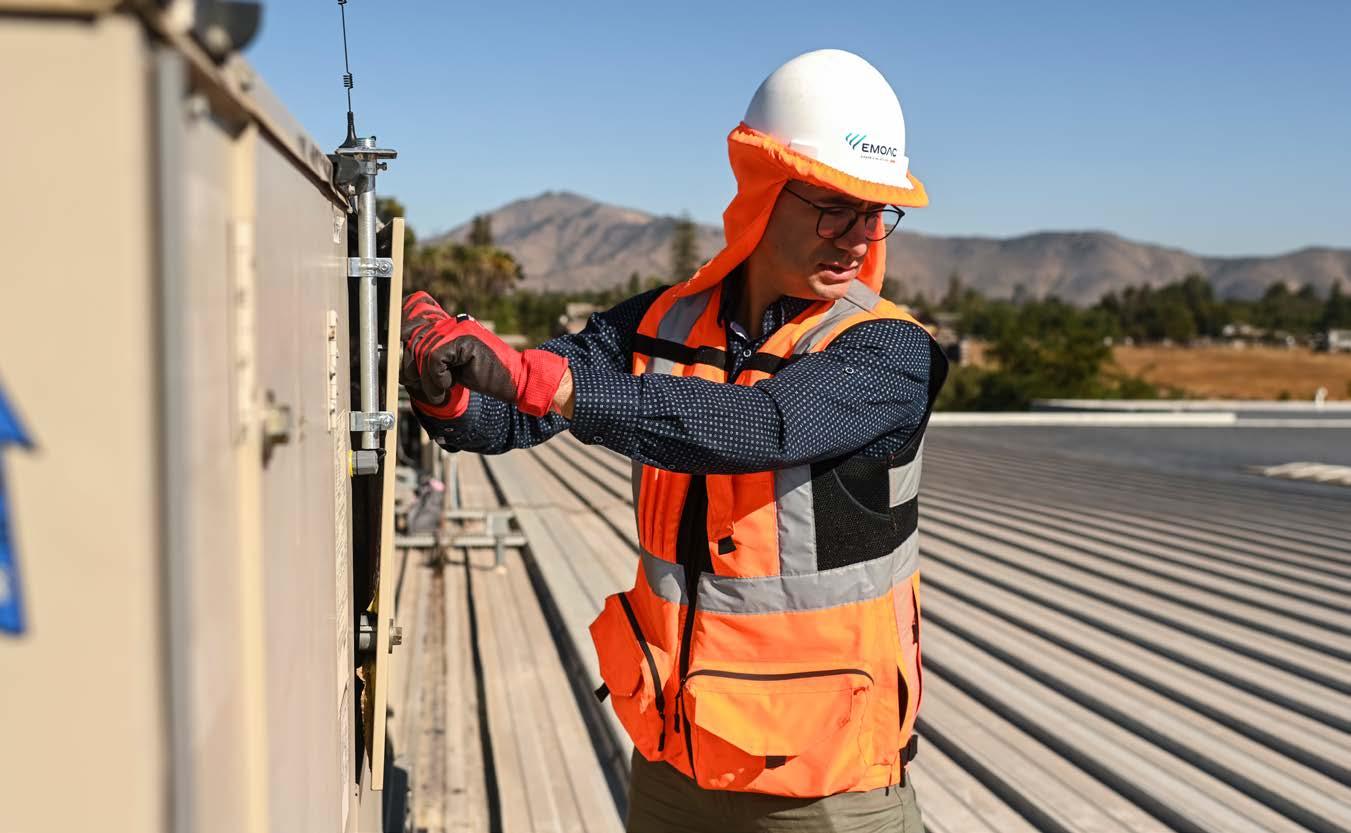
Years of operations.
Granja Solar photovoltaic park in Tarapacá, with an investment of:
Copec Emoac has become the second largest company supplying energy to non-mining non-regulated clients.
Starting in 2026, it will have a BESS battery system with a storage capacity of:

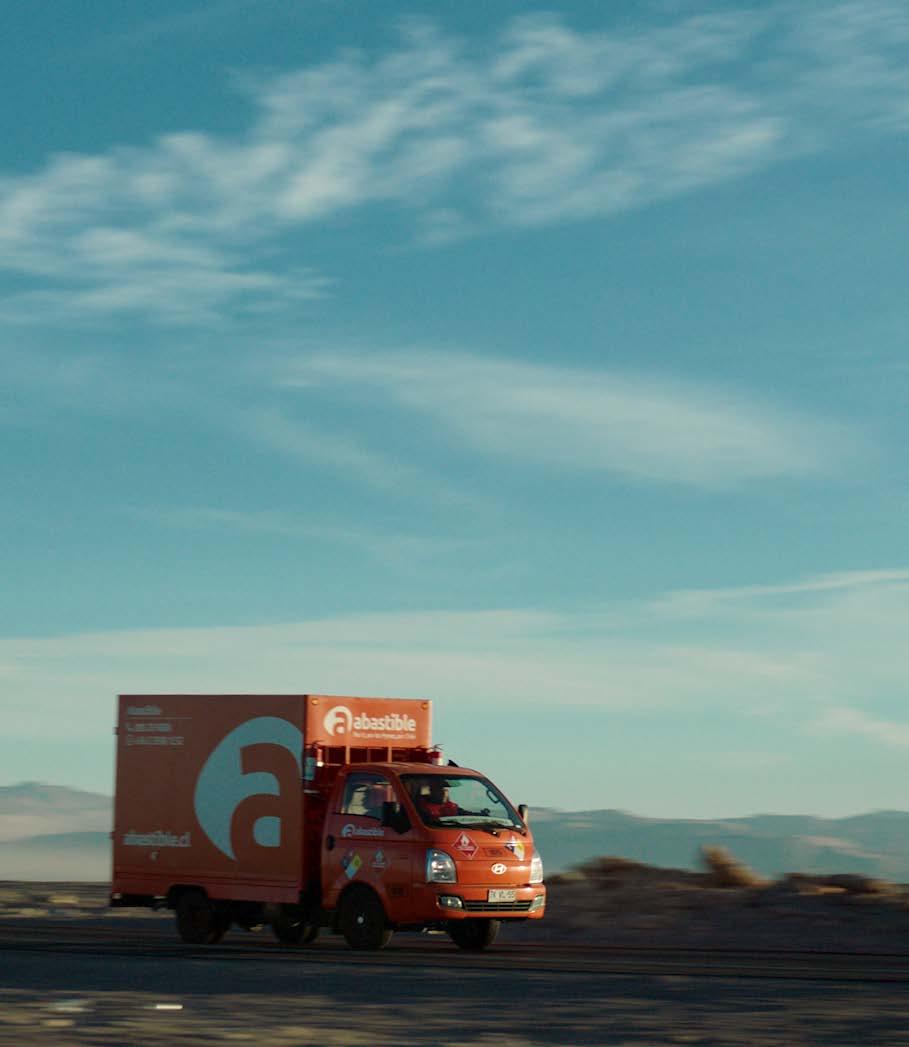
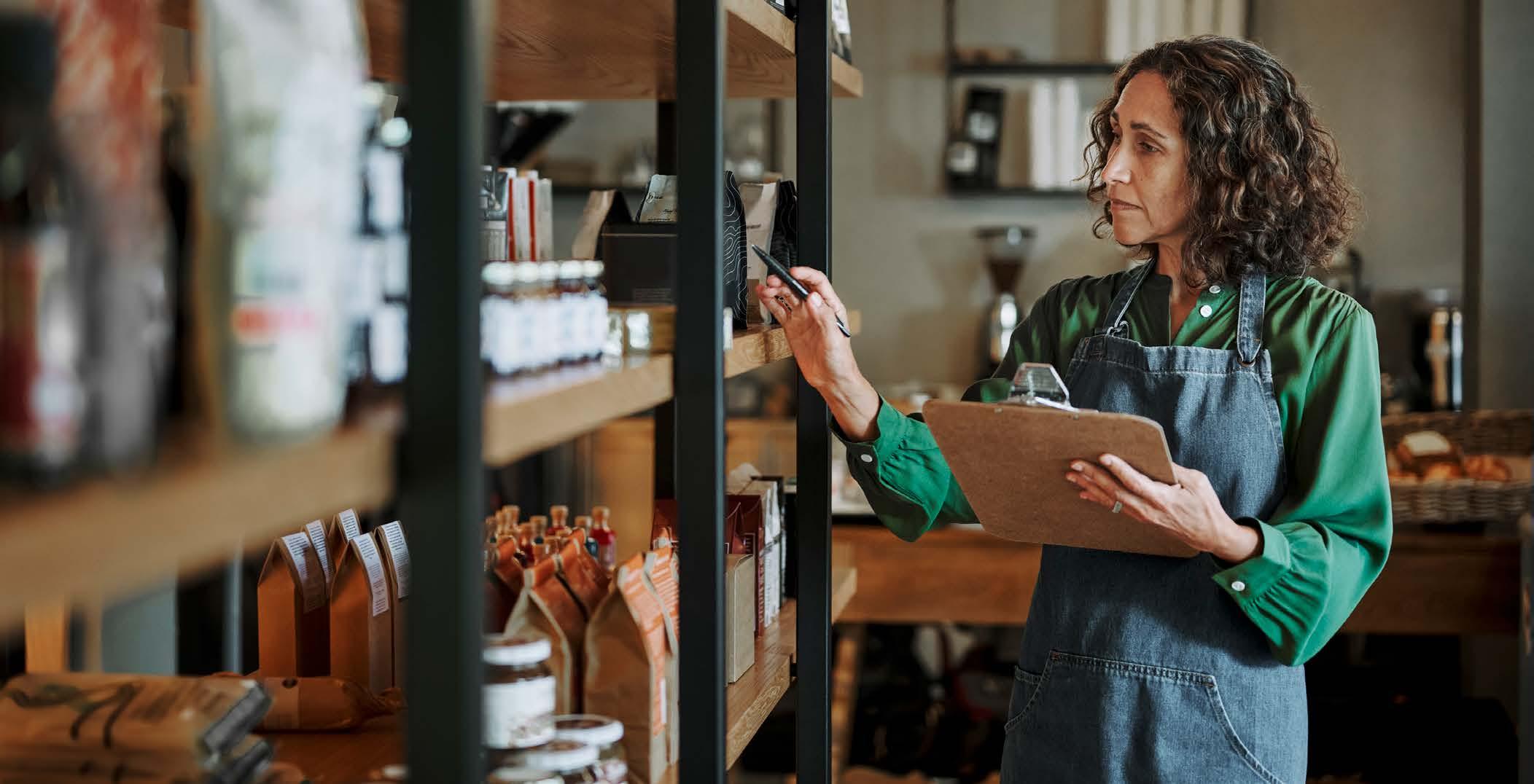
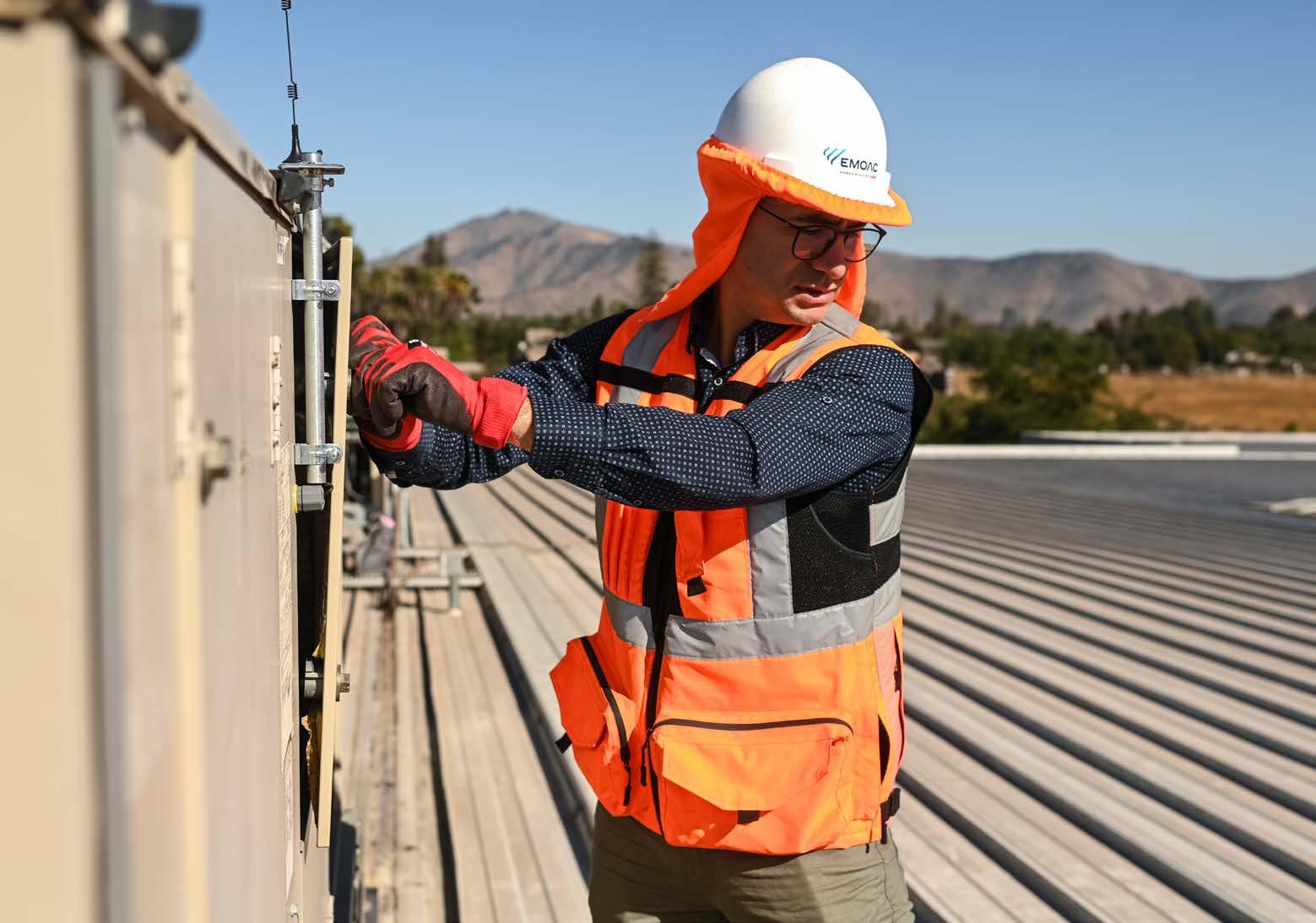
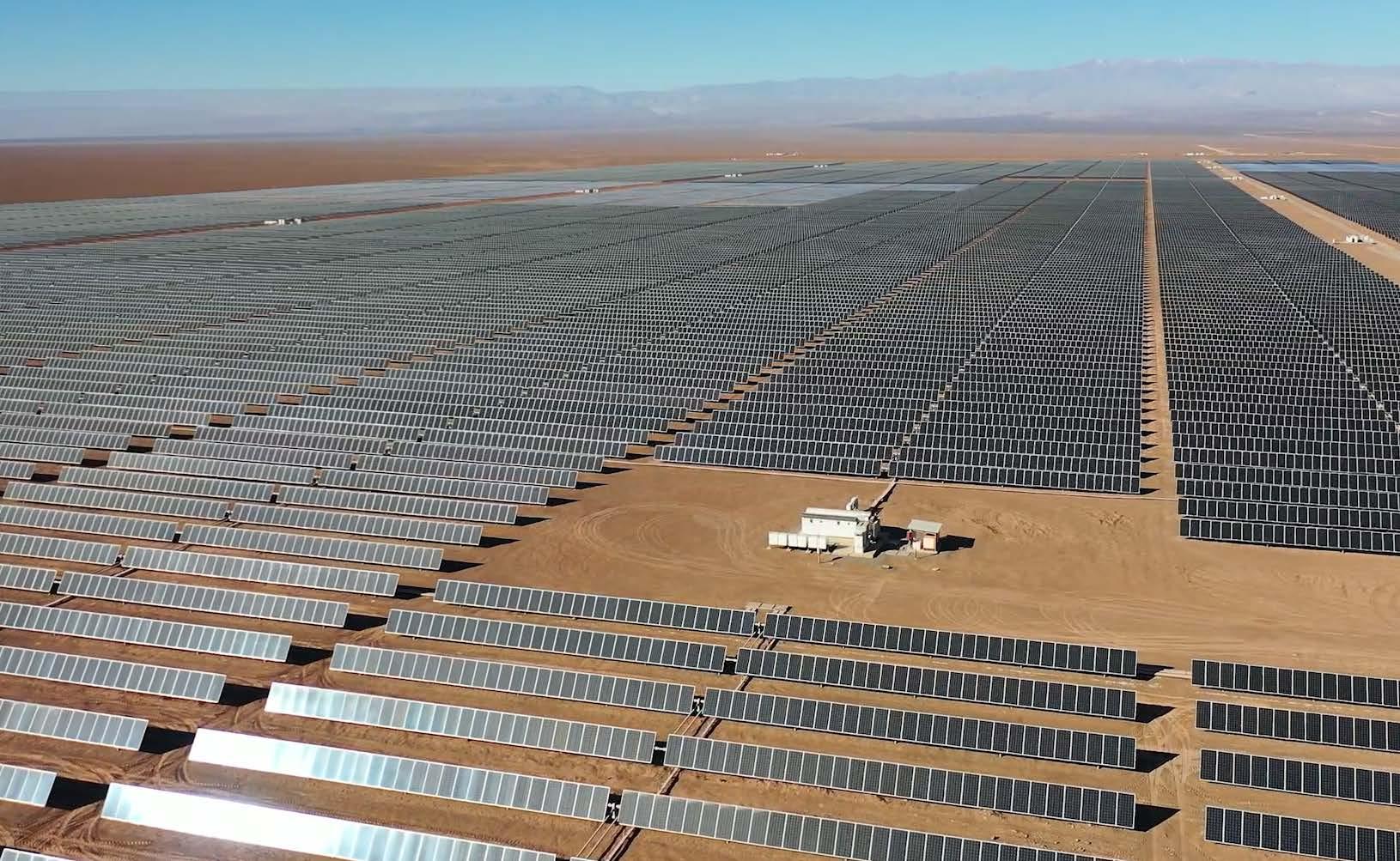
This creative process, characterized by the collaboration between artists and research, gave life to a collection with local identity and also generated interest beyond our borders.

“FROM TREES TO YOUR HOME”: TRANSFORMING THE FOREST INTO
ART
Empresas Copec's forestry subsidiary and the 1KO platform launched a textile collection of scarves illustrated by national designers. A collaboration between forest innovation, art and biodiversity that represents a new milestone in sustainable, conscious fashion with local identity.
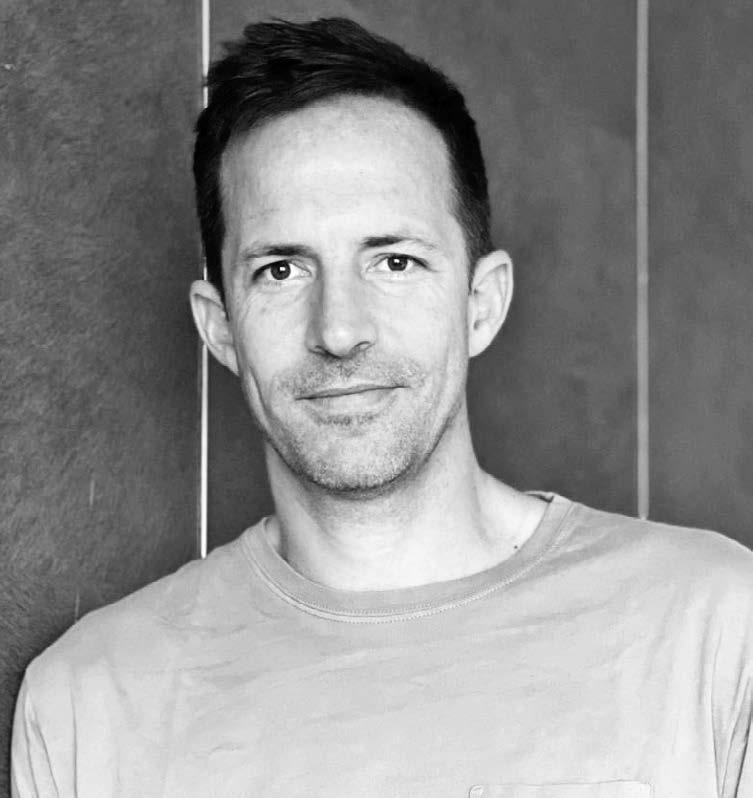
grown in Chile. A blend between science, creativity and sustainability that led to a new proposal: a way of dressing with meaning.
Behind this project there is a history of research, development and a vision that anticipated new market demands. Although the process formally began in 2020 with the production of dissolving pulp at ARAUCO's Valdivia mill, the idea was conceived years earlier, driven by the need to respond to more conscious consumers and industries seeking natural and biodegradable materials.
There are ideas that, like trees, need time, care and purpose to grow. This is how the proposal led by ARAUCO was born, bringing together the forestry world with fashion, art and conservation. That is the spirit behind the “From trees to your home” initiative, a collection of scarves illustrated by Chilean designers and printed on a vegetable dissolving pulp made from eucalyptus trees
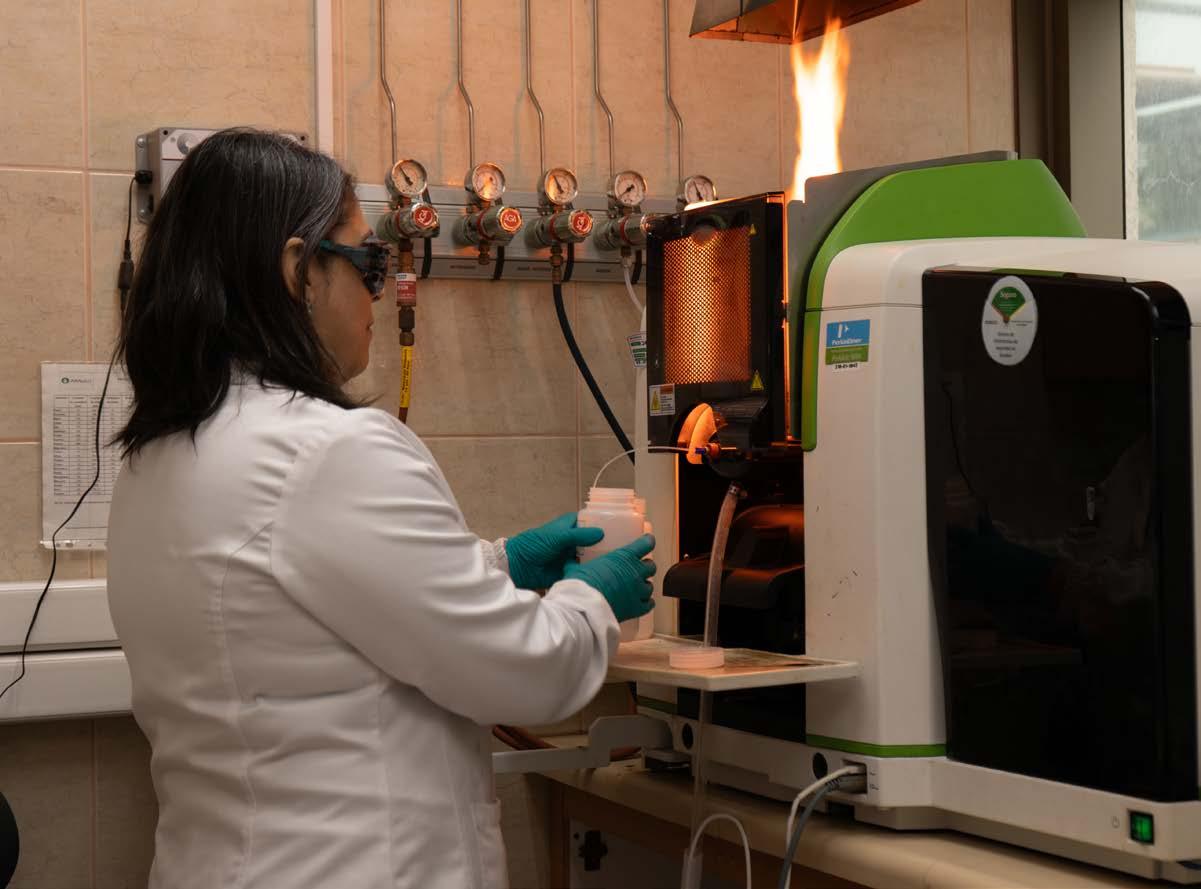

“For 35 years we have been researching new ways to maximize the value of forests. The production of dissolving pulp represents a natural step in that evolution,” explains Nicolás Jobet, Chief of People and Communications at ARAUCO.
The fashion industry, especially with the irruption of fast fashion, generates tons of waste every day, and its main raw material is polyester, which is derived from fossil fuels. In this context, the world of design has become an ideal platform to demonstrate how a forest resource can be transformed into a sophisticated, functional and sustainable fiber, capable of contributing to the sustainability of an industry that is part of everyday life.
_ IN THE PHOTO: Nicolás Jobet Head of People and Communications at ARAUCO.
_ IN THE PHOTO:
Scientific research and laboratory studies allow to monitor product quality.
ARAUCO produces FSC® certified dissolving pulp, as part of its purposeful diversification strategy, from plantations grown in southern Chile. “Given the context we are living in, we decided to promote a raw material that is biodegradable, renewable and produced with high environmental standards,” the executive adds.
Art, biodiversity and collaboration with purpose
The collection was co-created with 1KO, a platform that articulates design with social impact. Their role was key in translating a technical innovation into an aesthetically and emotionally powerful proposal.
“The creative process started in a very free spirit, but with a clear goal in mind: to show that production and protection are perfectly complementary endeavors. We wanted to highlight the importance of producing dissolving pulp, together with the efforts we make to protect the biodiversity of the ecosystems where this raw material comes from,” says Nicolás Jobet.
This way, the alliance with 1KO, he adds, brought a more artistic and fashion-related perspective. “I think it was in that improbable blend between art and conservation where the idea finally exploded,” he reflects.

From 1KO, its co-founder, Alejandra Mustakis, comments that this type of collaboration reflects what Chile needs most: creativity, connection between sectors and sustainable business models. “These alliances add value to our local productive industries by connecting them with the national fashion world,” she says. Macarena Cortés, also cofounder of 1KO, adds: “When we received this project, it was very heartening, because language shapes realities, and we felt that this could be the spark that would drive the revival of the thriving Chilean textile industry that we had in the 1960s.”
The national brands selected were Bad Sisters, Estudio SAGO and Ignacia Jullian, whose mission was to illustrate protected areas of high ecological value preserved
by ARAUCO: the huemules of Ñuble, the richness of Caramávida in Biobío and the Oncol Park in the Los Ríos Region. Each design captures not only the landscapes, but also native species, textures and colors typical of these ecosystems. In addition, the creative process was guided by researchers specialized in biodiversity, who accompanied the artists to ensure scientific rigor and territorial coherence.

IN THE PHOTO: Alejandra Mustakis and Macarena Cortés, founders of 1KO.
This creative process, characterized by the collaboration between artists and research, gave life to a collection with local identity and also generated interest beyond our borders. The proposal was selected to be introduced, before its official launch in Santiago, at the Challenge The Fabric trade show, held in Milan. There, it was exhibited before designers, certifiers and global brands, in a highly specialized environment. “The collection was not yet public and we had to put it to the test in front of a demanding audience. We received very positive feedback, which gave us the confidence to move forward,” Jobet recalls. That instance was decisive: it confirmed the value of the proposal and defined the direction the project would take.
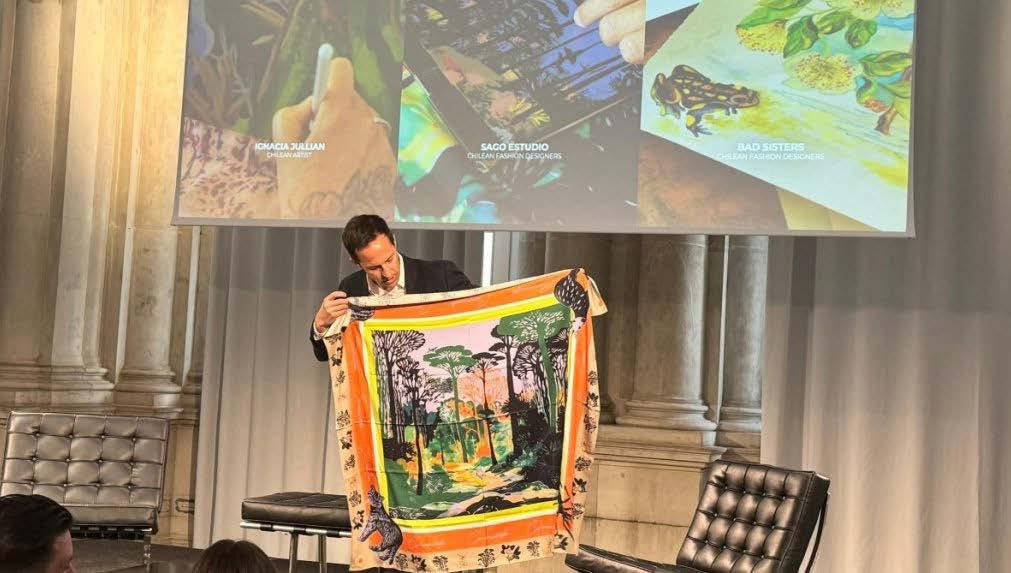
This international recognition reinforced both the symbolic value of the collection and its technical proposal, since this raw material requires up to 60 times less water than cotton and a third of the energy consumed by synthetic fibers. In addition, it is traceable from the forest to the fabric, and is part of a carbon neutral value chain. Marcela Wulf, ARAUCO's Public Affairs director, explains: “From a sustainability perspective, it means expanding the potential of pulp as a vegetable fiber capable of replacing highimpact materials. Transforming it into garments is a tangible way to continue moving towards a circular economy based on renewable materials.”
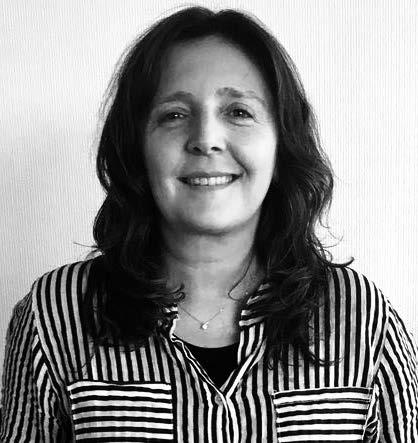
“From a sustainability perspective, it means expanding the potential of pulp as a vegetable fiber capable of replacing high-impact materials,” said Marcela Wulf.
IN THE PHOTO: Marcela Wulf Public affairs director at ARAUCO.
IN THE PHOTO:
Nicolás Jobet, ARAUCO's People and Communications Manager, introducing the collection at the Challenge The Fabric trade show in Milan, Italy.

Fashion with local impact and global vision
As the designs progressed, a key challenge arose: textile development itself. Given that ARAUCO does not produce fabrics, but rather its raw material, it was necessary to find a supplier of goodquality viscose from its pulp. Then came the color tests, the creation of a fragrance that evoked southern Chile, and the
Today, ARAUCO and 1KO are already exploring new applications for this Chilean fiber: tablecloths, napkins, pajamas and other everyday textiles that can be delivered directly to homes. A path that is just beginning, but which confirms that when industry, creativity and sustainability intersect, proposals that not only dress, but also inspire, flourish.
“This is a way of making fashion from its origin. Fashion with purpose, identity and impact,” concludes Nicolás Jobet.
design of the packaging, made from ARAUCO's own wood and pulp. Looking back on time, the team acknowledges that it was well worth the time and effort that went into each of these decisions. “The scarf had to be very pretty, yes, but it also had to have a soul. And that is achieved when each design decision connects to the purpose,” Jobet says.
From the raw material to the final details, the project was conceived under a circularity and conscious design approach. “This project represents, in a tangible way, the axes that structure our sustainability strategy: the bioeconomy, innovation with purpose and responsible management of our forest heritage,” says Marcela Wulf. She also emphasizes that this kind of initiatives seek to move towards regenerative production models that balance social, environmental and economic well-being, with an eye on future generations.
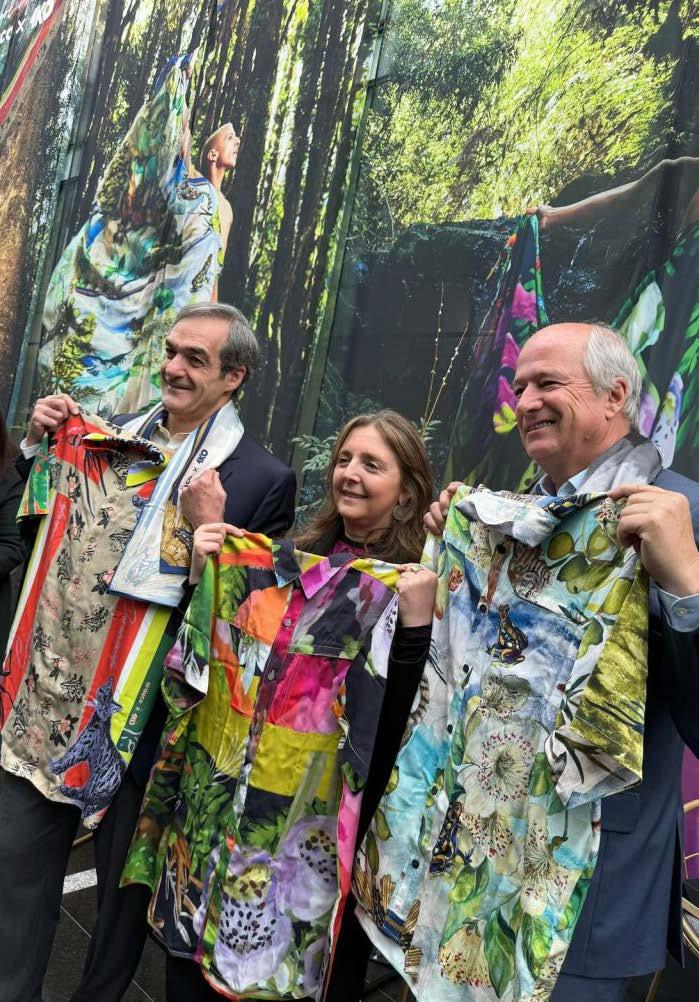
IN THE PHOTO:
Cristián Infante, CEO at ARAUCO; Marcela Wulf, Public Affairs Director at ARAUCO; and Charles Kimber, Corporate People and Sustainability Manager at ARAUCO, during the launch of the textile collection.
FROM TREES TO yOUR HOME:
The national brands selected were Bad Sisters, Estudio SAGO and Ignacia Jullian, whose mission was to illustrate protected areas of high ecological value preserved by ARAUCO:
A blend between science, creativity and sustainability that led to a new proposal: a way of dressing with meaning.
Vegetable dissolving pulp requires up to:
“From trees to your home” is a collection of scarves illustrated by Chilean designers and printed on a vegetable dissolving pulp made from pulp from eucalyptus trees grown in Chile.
Less water than cotton. Of the energy consumed by synthetic fibers.
The
The huemules of Ñuble. The richness of Caramávida in Biobío.
Oncol Park in the Los Ríos Region.
The project was selected as the sole Chilean representative to show its experience at AquaConSoil, held in June at the University of Liège in Belgium.
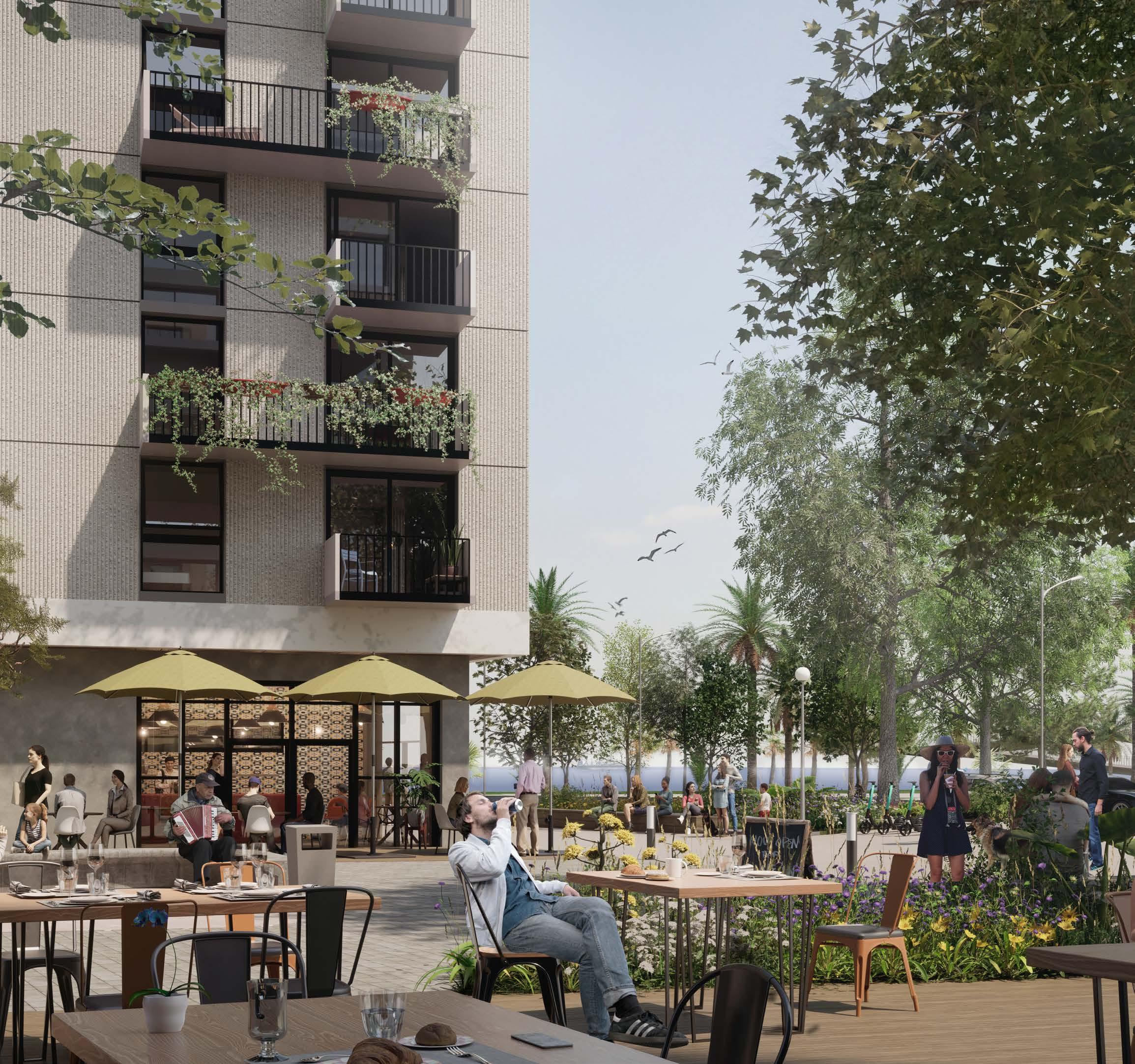
WORLD-CLASS URBAN DEVELOPMENT
This ambitious environmental and urban regeneration project, located in Viña del Mar, is now internationally recognized as a benchmark in the recovery of degraded soils.
Every day, hundreds of Viña del Mar residents and tourists pass by what was once a failed salt extraction project, a brick factory, a quarry, and the site of operations for different companies, including oil companies. The latter use is perhaps the best known and the one that still remains in the minds of many. In fact, this land, which overlooks the sea in the northern part of the city, was an icon of the fuel industry for practically the entire 20th century.
Today, the entire area known as Las Salinas is the scene of an ambitious environmental and urban regeneration project. What not everyone knows is that this initiative will give the “Garden City” a new look and position it as an international example of the recovery of vital spaces to improve the quality of life of its inhabitants.
-
A living place
This new part of the story began in 2001, when the Municipality of Viña del Mar signed an agreement with the oil companies to end the industrial use of the site, given the growth of the city and the need to prioritize activities associated with tourism and the environment. This included removing hydrocarbon residues and other contaminants and leaving the site in a condition that posed no risk to people or the environment.
Between 2009 and 2013, an initial remediation was carried out, which involved digging up the first top meter of soil to remove tanks, infrastructure, and earth. In the middle of the process, in 2012, Copec made the decision to purchase the plots owned by other companies in the industry and take charge of their recovery, with a long-term idea in mind. To make it a reality, it sought out the best specialists and created the Las Salinas subsidiary.
IN THE PHOTO:
The intervention is so large that it must be done in stages. For this reason, the land was divided into two large portions.
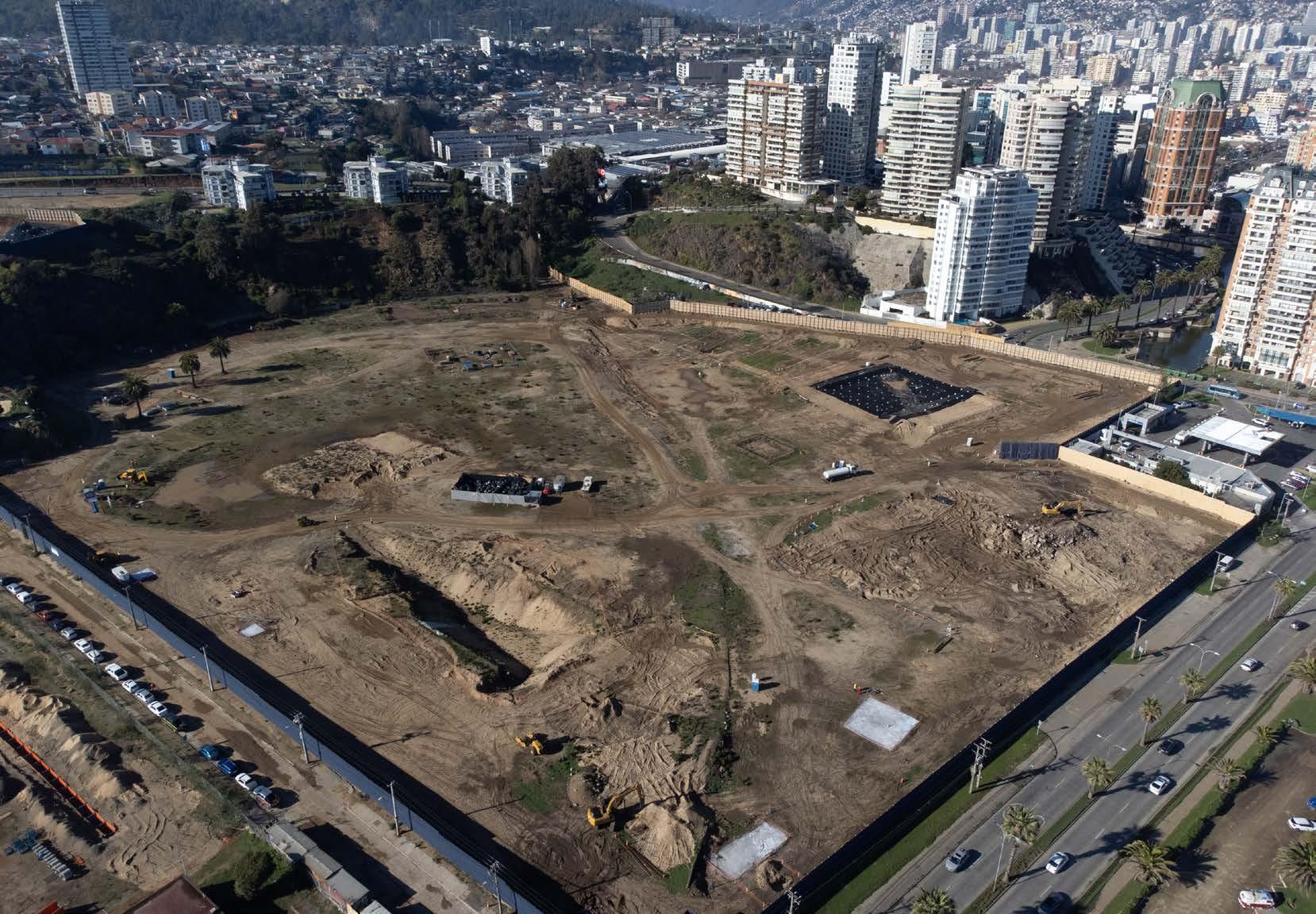
Ricardo Labarca, its CEO, explains that it all began with Copec's history in that part of the city and its virtuous relationship with it. “The company has a conviction that stems from the essence of the Group and is consistent with the way it sees things: taking charge of sustainable solutions that add value and bring benefits to the community and businesses.”
Thus, the focus was placed on implementing an urban development project that combines housing, green areas, spaces for culture, sports, and retail, based on the identity of Viña del Mar and integrating several uses for all those who live, work, and visit the city. “It is about creating a permanently vibrant place that boosts the local economy and community life, all with a human-scale approach, generating a new centrality in the municipality,” explains Las Salinas CEO.
Nature, community, and development
Since consolidating the 16-hectare plot, work has not stopped. Labarca says that it has taken years of intense effort to get the remediation project approved, “in a context of little knowledge of this concept at national level, limited experience, and virtually no regulations. But the support of a business group that believes in the strategic importance of the initiative allowed us to demonstrate its technical soundness.”
The intervention is so large that it must be done in stages. For this reason, the land was divided into two large portions. “Today we are executing the first, which in turn has two deliveries: one this year and the other at the end of 2027. The second portion should be ready in 2030.” Progress is visible, with remediation underway “to bring us closer to delivery within the planned deadlines,” says Labarca.

Specific urban elements will soon be defined, and discussions will take place with the companies that will lead these implementations. According to Las Salinas CEO “we are inviting developers to join us, but we will remain involved in these partnerships to ensure that what we promised is delivered.”
Citizen participation has been a fundamental part of the project from the beginning and has allowed the proposal to be improved to meet the expectations of different stakeholders.
“We have held many meetings and set up consultation platforms in an effort to identify aspirations and concerns and align ourselves to continue adding value to the city,” emphasizes Labarca.
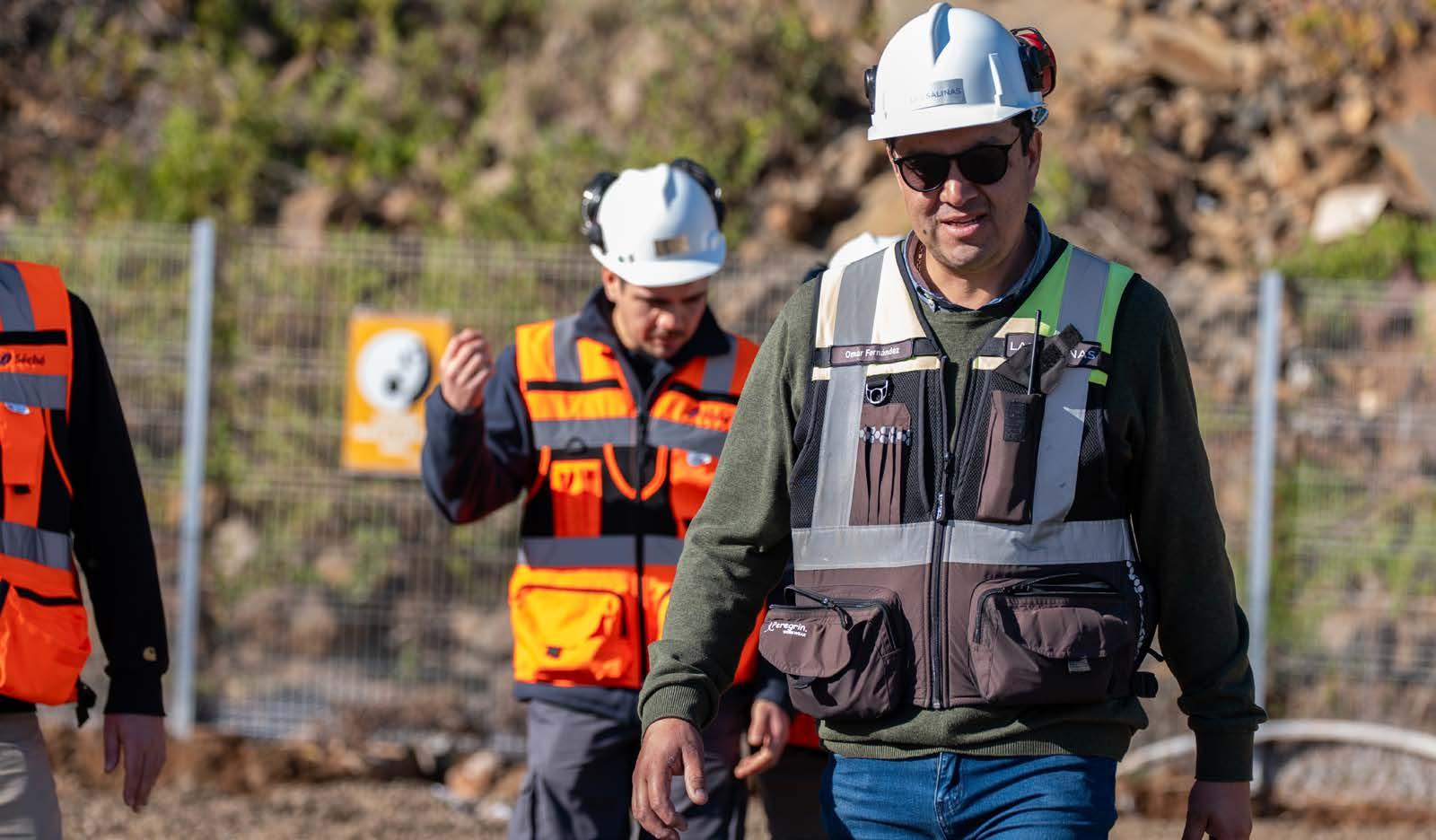
The proposal seeks to balance nature, community, and development. Midrise buildings with unobstructed views, safety and peace, connections to public transportation and pedestrian facilities, native flora, and a central park that connects the coastline with neighborhood life are just some of the elements and criteria that are prioritized in the planning. It includes hotels, offices, a convention center, retail, and first-class urban amenities for living, working, and enjoying life in a unique space.
_ IN THE PHOTO:
By 2040, Las Salinas will generate more than 4,000 direct jobs.
_ IN THE PHOTO: Ricardo Labarca CEO at Las Salinas.

“Due to its impeccability, multidimensionality, community relations, and the challenge of being in the middle of the city, Las Salinas has become a benchmark in environmental challenges,” says Stephanie Rotella.
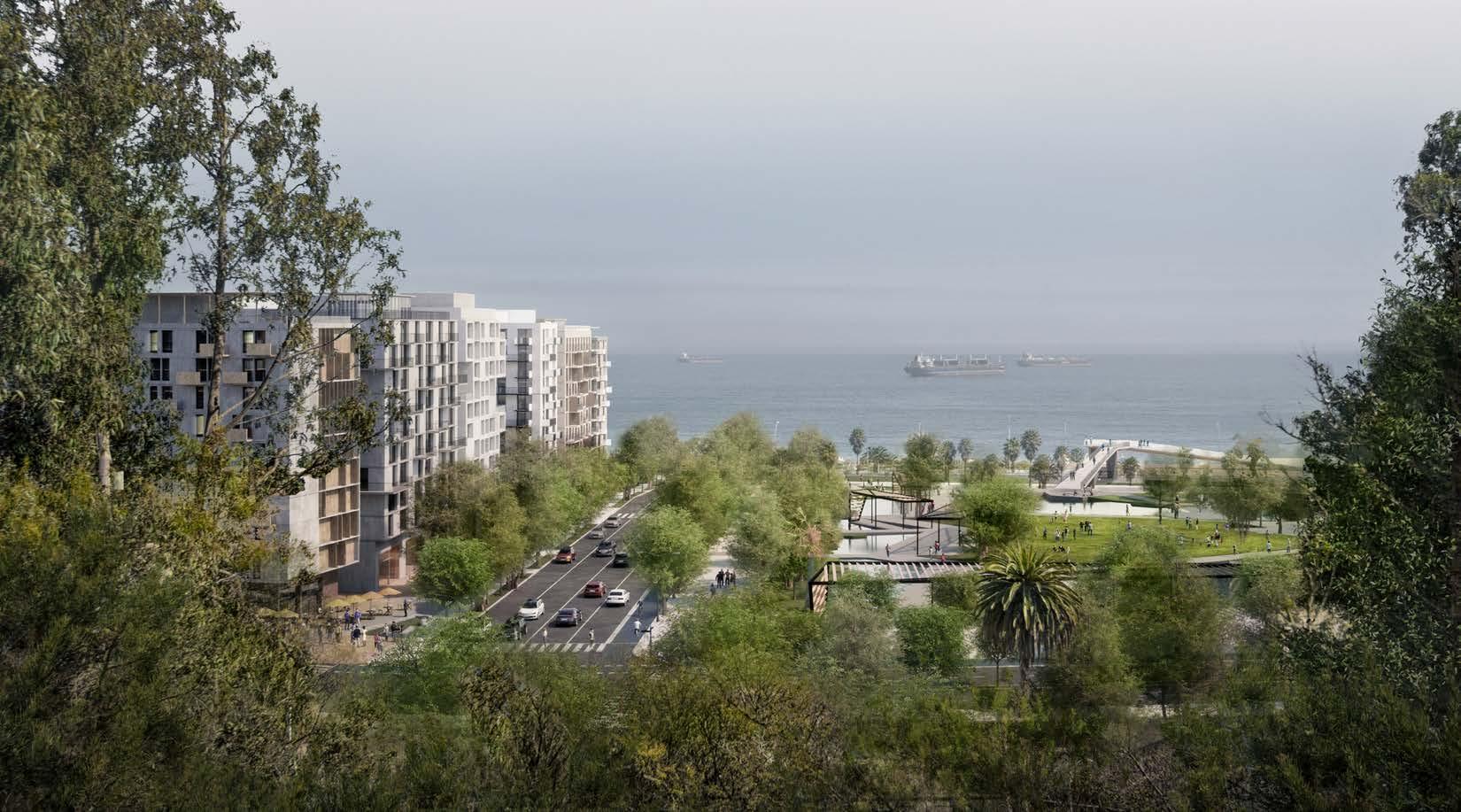
-
Remedia Green Tech: generating knowledge
Remediation is the process of cleaning and restoring contaminated soil to make it safe and reintegrate it into the ecosystem. With this mission in mind, Remedia Green Tech (Remedia GT) was created as a subsidiary of Las Salinas, to transform an environmental liability into an opportunity for sustainable development. In this case, it is being carried out through bioremediation, a technique that uses microorganisms or bacteria to absorb hydrocarbons, thus creating an area that is safe for people and the environment.
Stephanie Rotella, Las Salinas' environmental manager, leads the team responsible for the recovery of the land where the urban project is located. She explains how Remedia GT took shape and now advises different companies throughout Chile that have degraded soils and need to reintegrate them into the urban fabric.
“Due to its impeccability, multidimensionality, community relations, and the challenge of being in the middle of the city, Las Salinas has become a benchmark in environmental challenges,” she says. “So, we saw an
IN THE PHOTO: Stephanie Rotella Environmental Manager at Las Salinas.
opportunity to generate knowledge to help other companies, making our experience as pioneers in these issues available.”
Development Manager Carlos Correa complements the idea, pointing out that a need was identified among mining and industrial landowners, who lacked the tools to make appropriate decisions regarding both recovery and prevention of future damage. “Remedia GT moved from diagnosis to action, proposing tangible ways to address environmental challenges and providing a long-term view based on global best practices.”
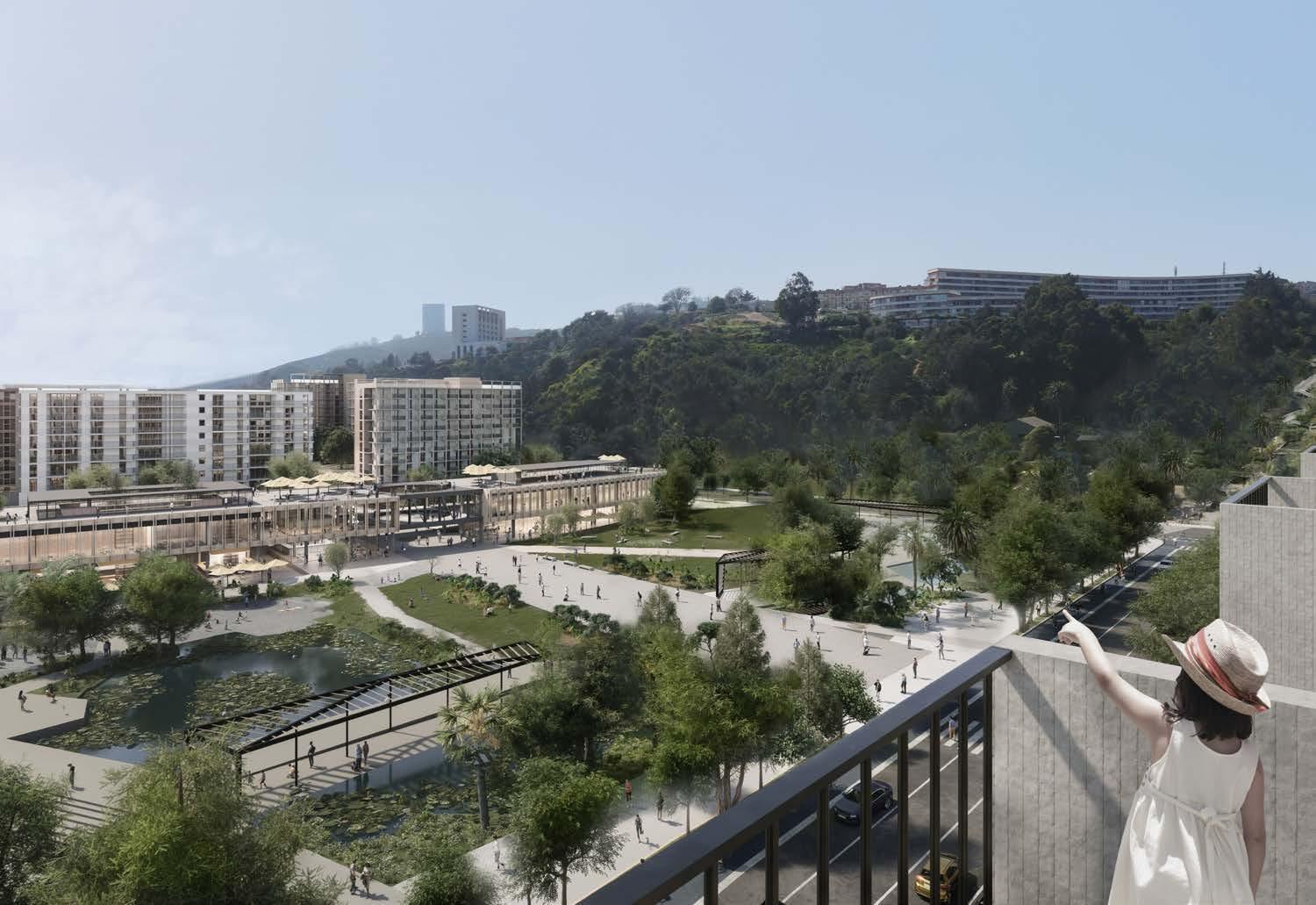
“Remedia GT moved from diagnosis to action, proposing tangible ways to address environmental challenges and providing a longterm view based on global best practices,” explains Carlos Correa.

The subsidiary is currently working on developing “environmental intelligence,” which Stephanie Rottela and Carlos Correa define as “connecting databases of potentially contaminated sites and crossreferencing them with information on aquifers, human settlements, possible land contaminants, routes, and other variables, allowing for classification according to relevance and the application of remediation measures.”
Industries have a growing interest in doing things better, and Remedia GT accompanies them on that journey, with experience, knowledge, and methodology that helps them react diligently, quickly, and effectively. And also with the conviction that they are changing paradigms to shape a better future.
IN THE PHOTO: Carlos Correa Development Manager at Las Salinas.
AN INTERNATIONAL bENCHMARk
The project was selected as the sole Chilean representative to show its experience at the 2025 edition of the AquaConSoil meeting, held in June at the University of Liège in Belgium.
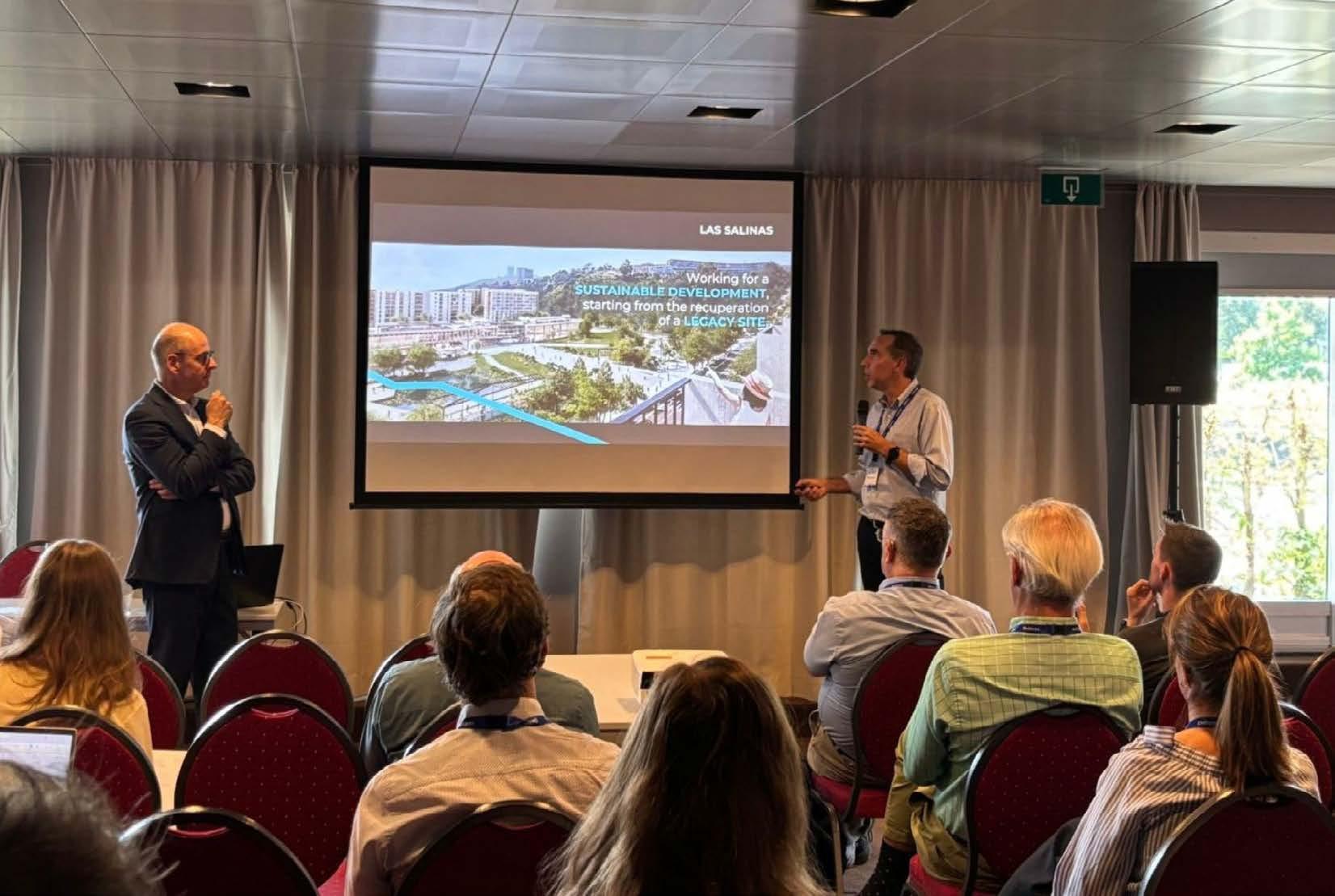
AquaConSoil is one of the world's most important events on sustainable soil and groundwater management and environmental regeneration in urban environments. Since its inception in 1985, it has become a leading platform that brings together scientists, politicians, and industry representatives to share knowledge and foster interdisciplinary collaboration. With more than 240 exhibitors at its most recent edition, AquaConSoil stood out for its high technical and scientific level, as well as for the presence of institutions, researchers, and pioneering projects in nature-based solutions, environmental remediation, and sustainable development.
The exhibitor representing Las Salinas was its CEO, Ricardo Labarca, who led the panel “Successful legacy site revitalization, governance, risk mitigation, and circular solutions.” In addition to presenting Las Salinas' experience in the urban remediation and regeneration process of the project in Viña del
Mar, the national team held a series of meetings and visits with those who manage successful cases in this area, seeking to deepen their knowledge and experiences that contribute to the project in favor of the environmental and urban development of the garden city.
For the executive, Las Salinas' participation in a high-level global forum such as AquaConSoil constitutes “recognition of the work we are doing in Viña del Mar. In addition, it continues to position the project as a Latin American benchmark in the responsible recovery of urban soils, opening up opportunities for international collaboration and technical validation on a firstrate platform.”
Stephanie Rotella, Environment Manager, said that “we are proud to participate for the second consecutive year as exhibitors in such an important international event for the sustainable management of resources such as soil. At the same time, we feel very challenged by the recognition that comes with being the only Chilean project present, as it is an opportunity that allows us to learn from great international examples and urges us to continuously improve our processes.”
LAS SALINAS:
Environmental and urban regeneration project located in Viña del Mar, internationally acknowledged as a benchmark in the recovery of degraded soils. 16
1.3 USD BILLION
Is the amount involved in the urban project.
Through bioremediation, Remedia Green Tech created an area that is safe for people and the environment.
40%
Of the area will be used for public spaces.
4,000
Hectares Direct jobs.

belén educa foundation: Empresas Copec has been collaborating with Belén Educa Foundation since 2006, through funding and mentoring programs, scholarships, and keynote presentations.
INNOVATING TO TRANSFORM LIVES
For 25 years, Belén Educa has helped thousands of students from vulnerable sectors overcome barriers, believe in themselves, and access higher education.
In June, one of its schools was ranked among the top 10 schools in the world for innovation, thanks to its successful model of educational continuity.
“Our greatest reward is always when a child fulfills their dreams.” That was the spontaneous reaction of Belén Educa's executive director, Pedro Larraín, after the good news: Colegio Bicentenario Cardenal Carlos Oviedo school in Maipú was recognized as one of the world's top 10 schools for innovation by the international organization T4 Education. This distinction highlights the results of the educational continuity program that the foundation develops in all the schools within its network.
“We want to be acknowledged by families and children, so that when the young people who studied with us become adults, they will say: 'Belén Educa taught me, gave me values, and created opportunities for me. Every day we strive for that recognition, and we have received it many times,” continues Larraín, with a mixture of pride and humility. And being in the World's Best School Prizes 2025 fills him with
satisfaction. “It confirms the direction of the work we do; it shows that it is valuable and that we must continue to work hard so that more children can access higher education in all our schools.”
This is the goal of the work that the organization has been carrying out for 25 years in 12 schools located in highly vulnerable contexts, 11 in the Metropolitan Region and one in Los Ríos. It is not just a matter of children completing their schooling and gaining access to a technical institute or university, but also of them finishing a career and entering the labor world to contribute to society with a solid foundation of knowledge, skills, and values.
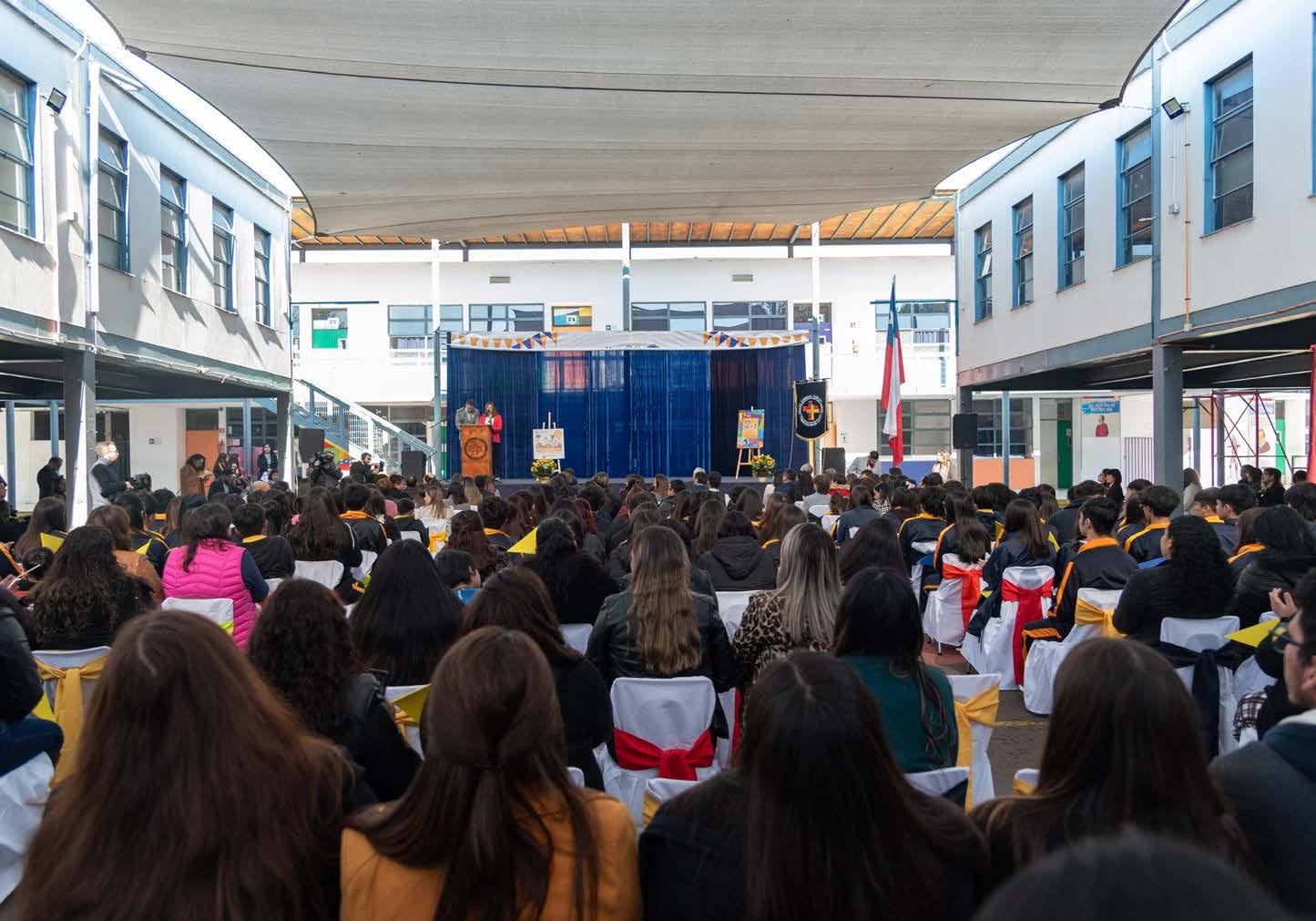
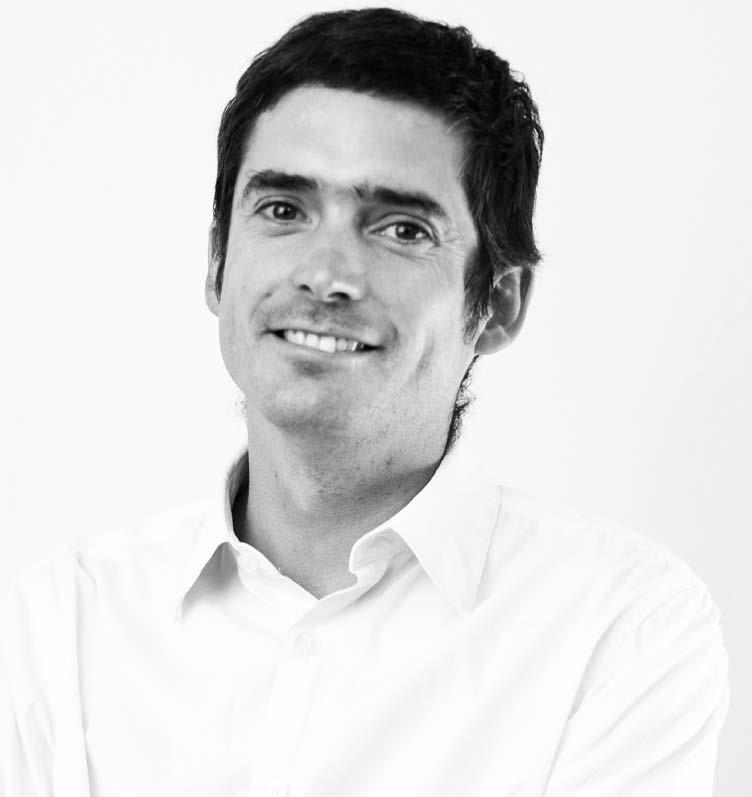
At the speed of TikTok
To this end, the key concept is educational transformation. Paulina Cárdenas, principal at Cardenal Carlos Oviedo school, explains that this model has been implemented “from the classrooms, with high expectations and demands, through collaborative work that today has become an innovation, based on what teachers do in the classroom and the follow-up with students.” In her opinion, these are the key cornerstones of this award, which corresponds precisely to the category “Student-centered innovation.”
IN THE PHOTO: Pedro Larraín Executive Director at Belén Educa Foundation.
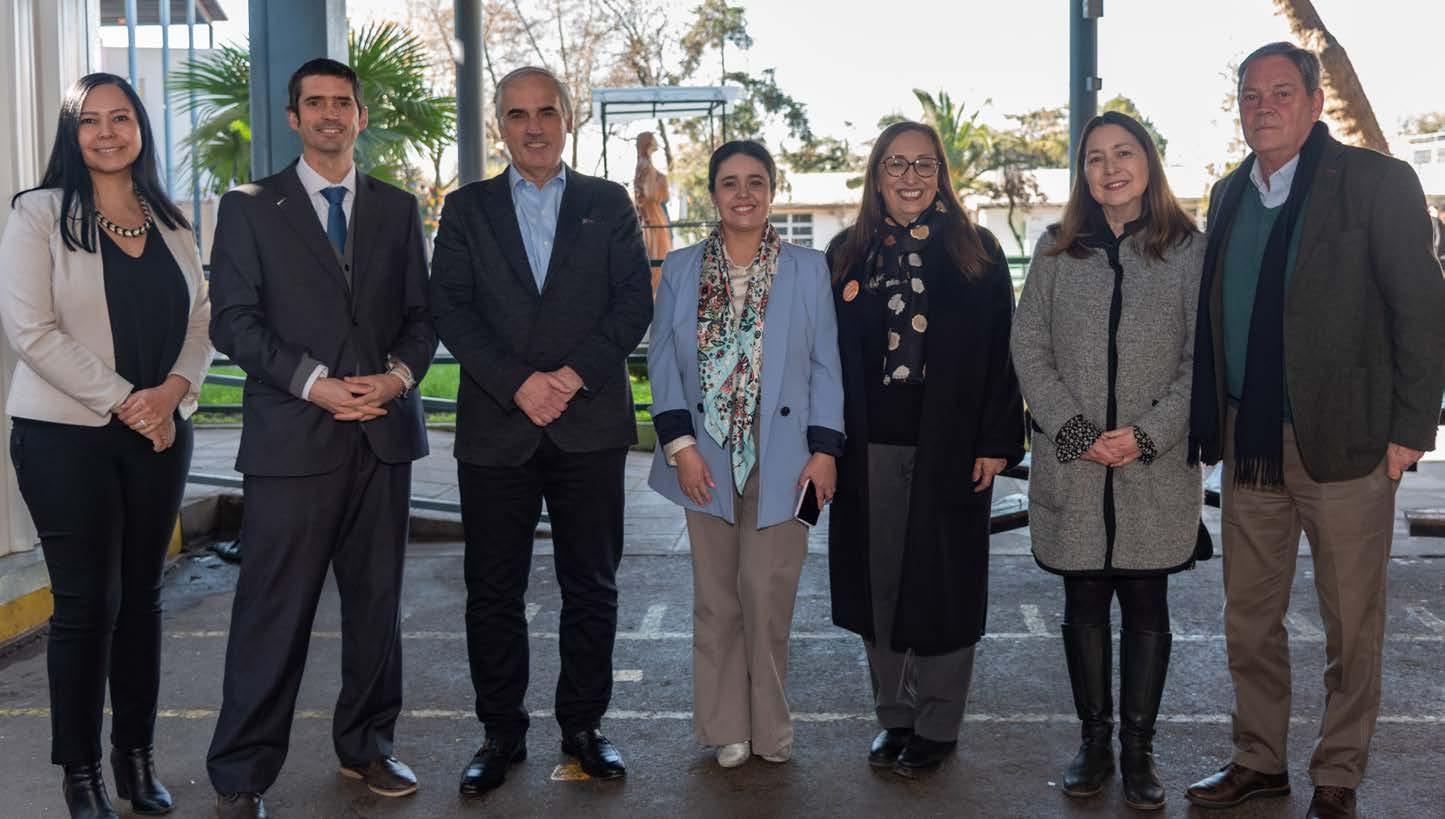
The program enables 77% of the school's graduates to continue their higher education beyond the first year. At Belén Educa, the average is 70% across its 12 schools in the first year after leaving the classroom, rising to an impressive 88% in the third year after graduation. This is a very significant achievement, given that the educational continuity average is only 45% in Chile.
Belén Educa's model for continuing education has four pillars: monitoring graduates, working with families, alliances with companies, and supporting students in their life projects. On this point, Pedro Larraín argues that the great challenge is to generate and maintain these aspirations “in a world that spins at the speed of TikTok and where young people's attention is often more focused on the seconds that a reel lasts than on the effort needed to do well in the future.”
It is also a scenario in which the reward for studying is very long-term, intangible, almost an abstract concept compared to immediate satisfactions. The executive director's diagnosis does not ignore this reality: “Young people show a certain hopelessness toward challenges that require additional effort and question the cost-benefit ratio, as they are not sure that their efforts will be rewarded. We are fighting against this instantaneous and superficial society, with the hope that everyone in our country can have dignity and achieve their life goals.”
That is precisely why, starting in prekindergarten, the topic of entering higher education is an important part of the conversation. “Throughout the year and every year, we talk to them about their vocation, about what they want to do when they grow up; we tell them, 'you have to get good grades, come to class, work hard.' This ends up becoming a motivation and even a healthy rebelliousness, which drives them to break the cycle in which they live,” emphasizes the executive director of Belén Educa.
Paulina Cárdenas adds that the educational community has responded very positively, getting involved individually and collectively in the
The task of overcoming adversity and helping thousands of students fulfill their dreams requires conviction, time, and resources.
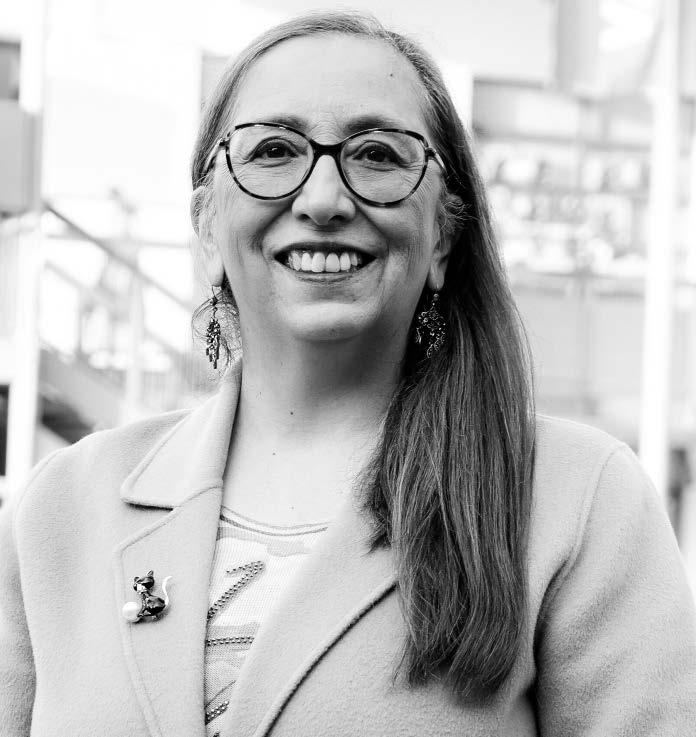
IN THE PHOTO: Paulina Cárdenas Principal at Cardenal Carlos Oviedo School.
IN THE PHOTO:
Executives from Empresas Copec and Belén Educa Foundation during the celebration ceremony at Bicentenario Cardenal Carlos Oviedo School, in Maipú, ranked among the top 10 schools in the world for innovation.
progress of these children and young people, for whom society seems to put up more barriers than opportunities. “We firmly believe in them and want families to also trust their children, to see their potential and support them in their development. Along the way, we have seen how students, parents, and teachers have actively joined in, strengthening the collective belief in the value and abilities of our students.”
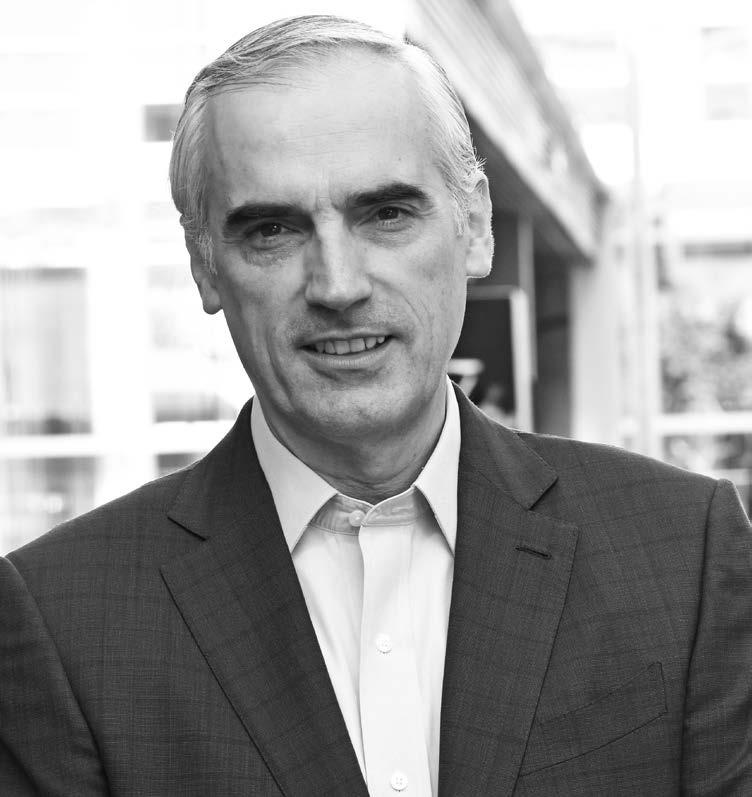
Eduardo Navarro emphasizes that the “difficult but wonderful challenge” taken on by Belén Educa is in line with Empresas
Copec's corporate purpose: To shape the world for future generations.
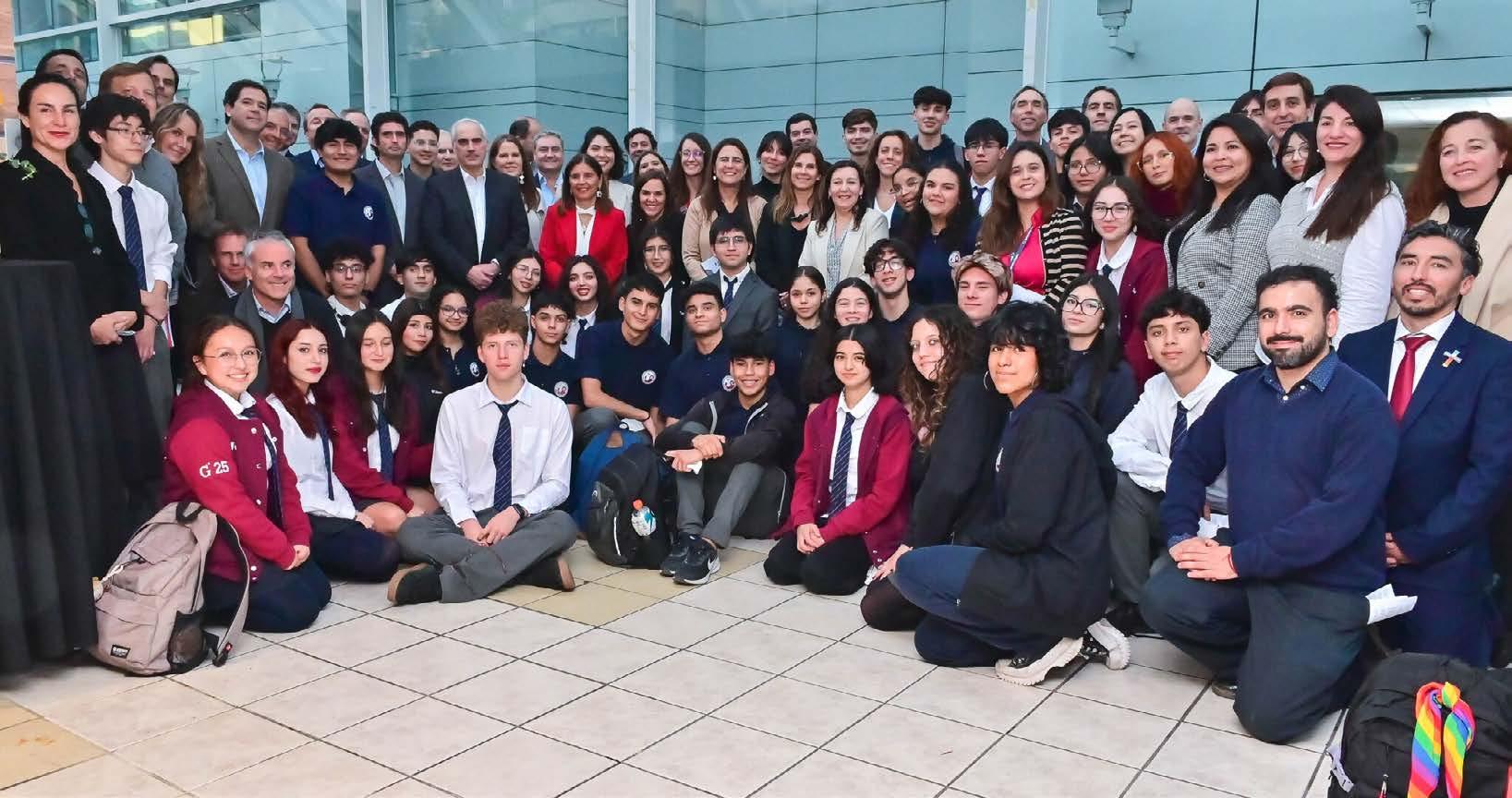
Partnerships that build the future
The task of overcoming adversity and helping thousands of students fulfill their dreams requires conviction, time, and resources. “We manage scarcity, we work where it is most needed, and we do so with great professionalism. To sustain this, the contribution of strategic partners is key,” says Larraín.
In this regard, he thanks organizations such as Empresas Copec, Banco Santander, Constructora Biobío, and the Pedro de Valdivia pre-university program, among other entities, “which have demonstrated a tangible commitment, where their senior executives and employees are committed to this cause. And when there are people contributing to show that it can be done, the kids feel it and value that support.” The principal of Carlos Oviedo School adds that students “see Empresas Copec as a significant opportunity in
IN THE PHOTO: Eduardo Navarro CEO at Empresas Copec.
_ IN THE PHOTO:
Executives from Empresas Copec and subsidiaries during the launch of the 2025 Mentoring Program.
their educational journey, as a strategic partner that provides them with cultural capital, knowledge, new expectations, and a vision for the future.”
Empresas Copec has been collaborating with the Belén Educa Foundation since 2006. One of the most emblematic initiatives is the Mentoring Program, in which executives from the parent company and its subsidiaries individually accompany third- and fourth-year high school students in building their life projects. “This program brings together two people from different realities, from different and often distant worlds, mainly due to prejudice or ignorance,” says Empresas Copec CEO Eduardo Navarro, who is actively involved in this line of action.
Leaving those differences aside, the focus is on finding common ground. This is what Navarro does when he talks to his mentees. “I tell them that, although we have
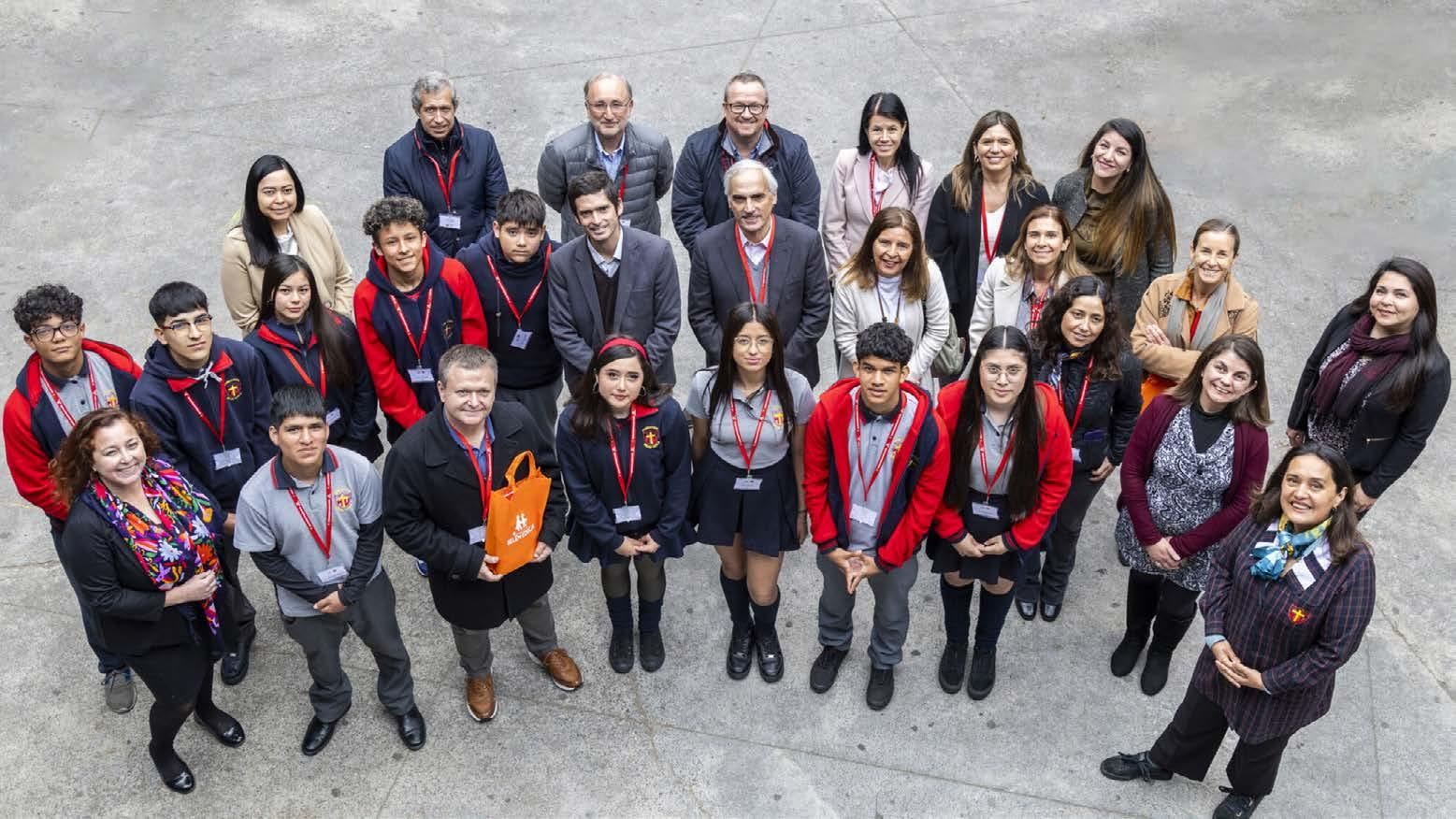
different realities, we have all cried and had difficulties at some point. Our backpacks may be of different types and sizes, but we all carry one.” He also tries to instill a sense of responsibility in them, encouraging them to take charge of their own future with phrases such as: “You build your life and you are the protagonist of it. Life is built on dreams and ambitions, and no one should limit them.”
In addition to mentoring, Empresas Copec executives visit Belén Educa schools to give keynote speeches that contribute to the development of the teenagers' professional vocations based on life testimonies. For Pedro Larraín, the greatest value of this activity is that students can learn about experiences “not from the successful life of someone with resources, but from the difficulties that these professionals faced and how they are now contributing to society through their companies. This demystifies myths and brings worldviews closer
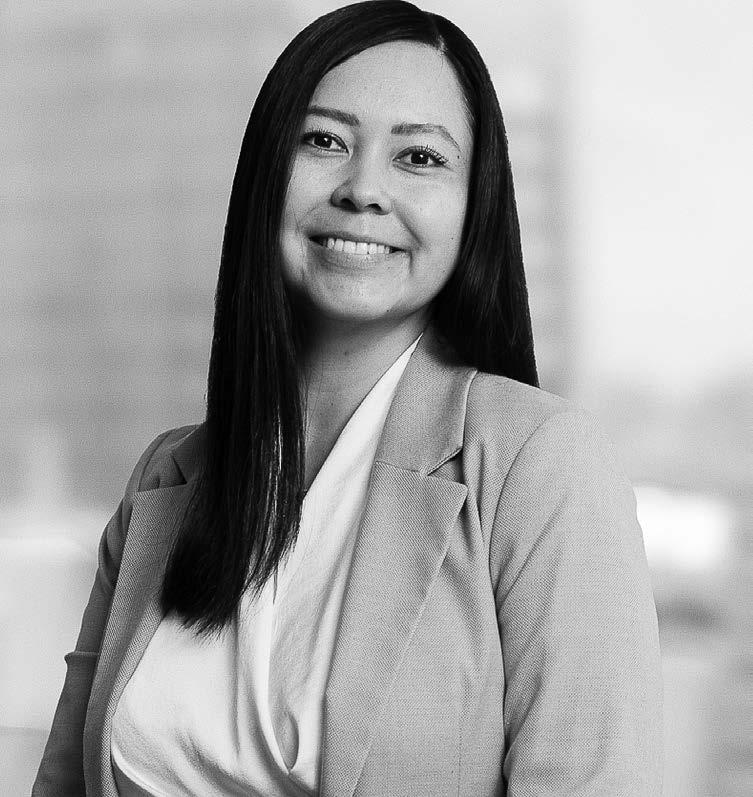
together in a country that longs to be more integrated,” he points out.
Project financing and the Anacleto Angelini Fabbri Academic Excellence Scholarship for continuing higher education are also part of the Company's contribution. For Paulina Cárdenas, this presence is “more than a donation, it is a human and business commitment.” And, in Larraín's opinion, “it shows a level of engagement that is not commonly found.”
IN THE PHOTO
Executives from Empresas Copec and its subsidiaries during the keynote presentations given in 2024 at the Arzobispo Manuel Vicuña School in San Joaquín, La Legua.
IN THE PHOTO: Marianne Haramoto Director of Sustainability and Corporate Affairs at Empresas Copec.
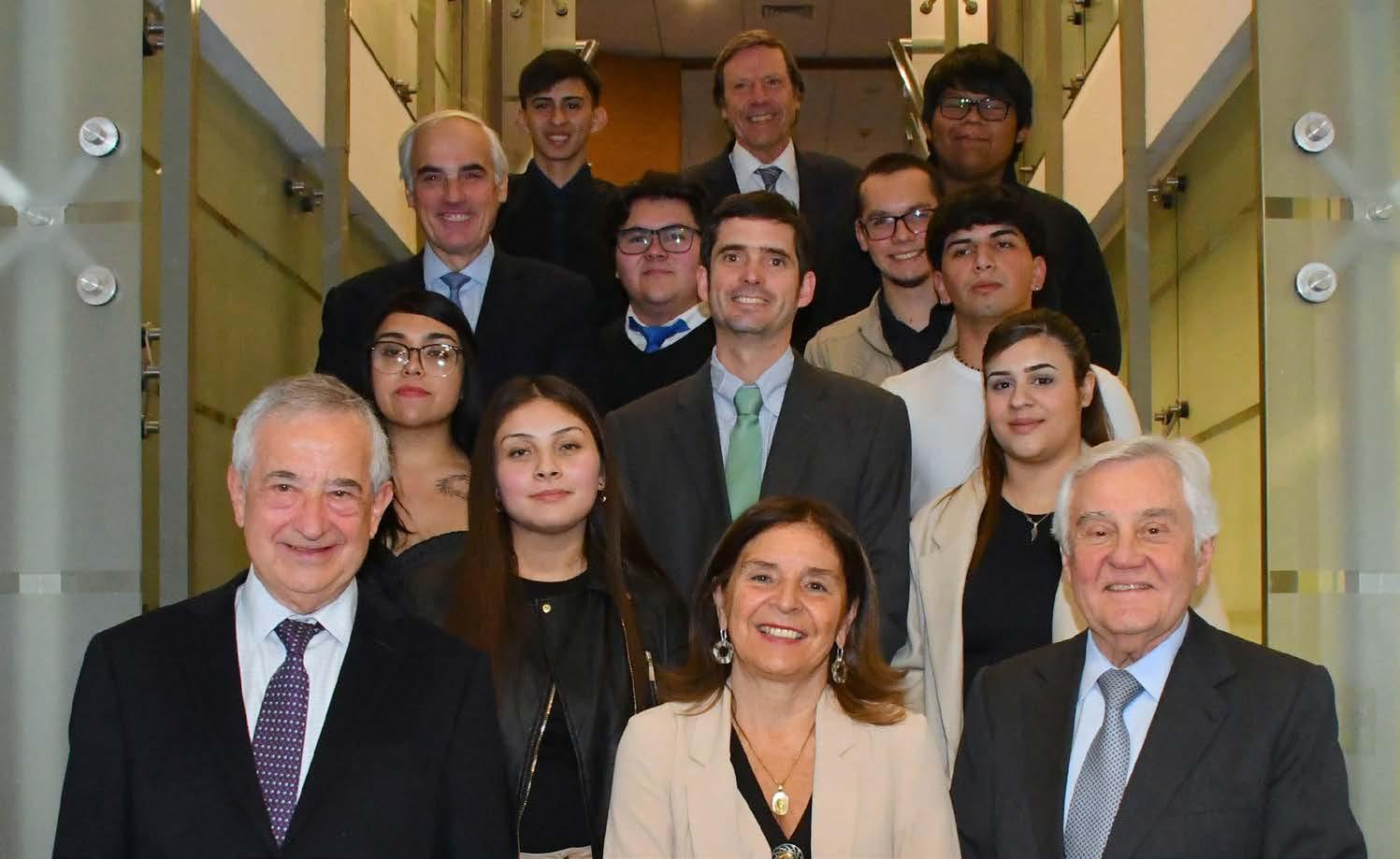
Marianne Haramoto, Director of Sustainability and Corporate Affairs at Empresas Copec, also highlights the significance of the recognition given to Colegio Cardenal Carlos Oviedo. “Personally, being there with them at the moment of the announcement was deeply moving. Seeing the students, from pre-kindergarten to 12th grade, celebrate with pride and hope confirms that this joint effort is making a real difference in their futures. This recognition not only highlights Belén Educa's educational innovation, but also projects Chile onto the global stage, showing that even our most vulnerable communities can generate inspiring models for the world. In a country that still faces significant educational gaps, this milestone is a call to redouble our efforts so that more young people have access to quality opportunities. As Empresas
Copec, we are honored to be part of this journey and reaffirm our commitment to continue collaborating with the Foundation in its transformative mission,” said the executive.
The Foundation's executive director specially mentions the teachers, principals, and the entire educational team “for the social transformation they are carrying out and the opportunities they are opening up for so many children. Every
Their dreams, our dreams
At Empresas Copec, the news that Colegio Bicentenario Cardenal Carlos Oviedo had been ranked among the top 10 in the world for educational innovation was received with joy and pride. “It is a well-deserved recognition for this tremendous group of people who, with genuine and deep conviction, work hard and strive to provide quality education to vulnerable young people, give them hope and, ultimately, transform their lives,” says Eduardo Navarro. He emphasizes that the “difficult but wonderful challenge” taken on by Belén Educa is in line with Empresas Copec's corporate purpose: To shape the world for future generations.
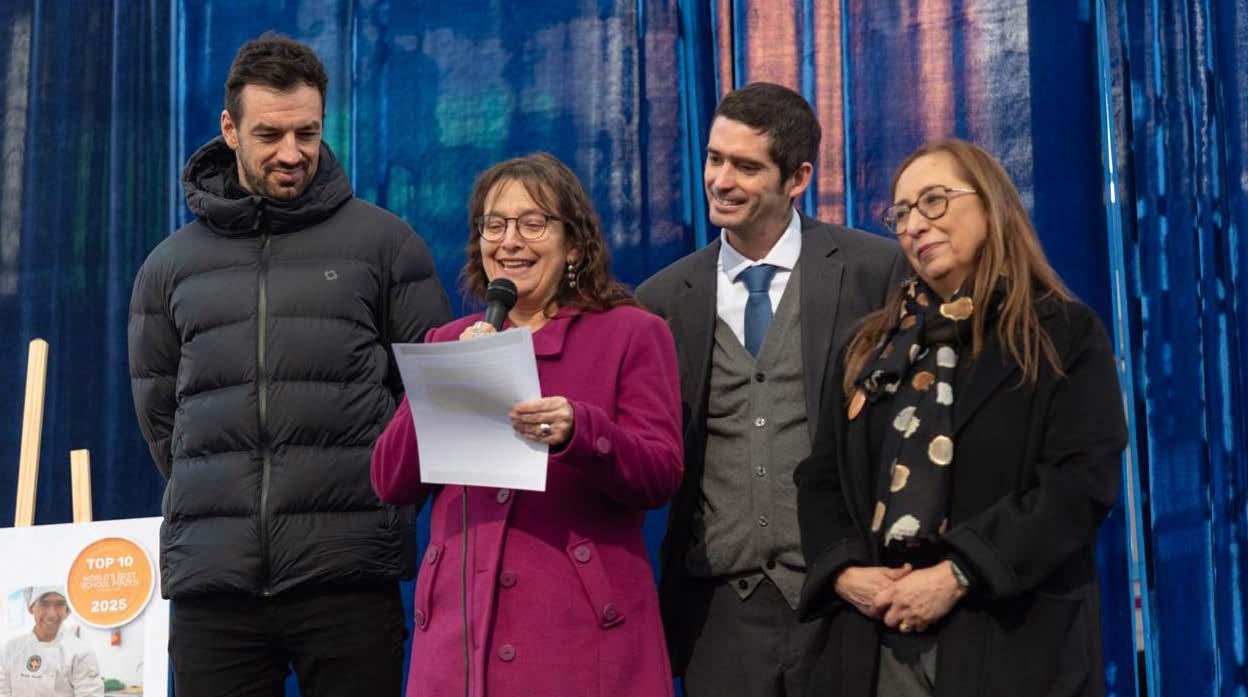
IN THE PHOTO:
Roberto Angelini, President of Empresas Copec, and Carmen Cisternas, Vice President of the Belén Educa Foundation, alongside executives and the eight students who received the 2025 Anacleto Angelini Fabbri Scholarship.
person who works here is marked by a desire for justice; that is their life's calling, and they channel it into education.”
Paulina Cárdenas, the principal of the awardwinning school, feels that milestones like this “make us realize that what we have set out to do is indeed possible: students can overcome barriers, even when they live in challenging contexts. Despite facing high vulnerability, they have the ability not only to access higher education, but also to complete it. It shows that our students believe in themselves and in their potential to go much further than they ever imagined.” She agrees with Pedro Larraín that “when one of these kids fulfills their dream, we feel that we have fulfilled ours.”
12
9
2
1,000 70%
14,500 600
Of Belén Educa graduates enter higher education in their first year.
FISHING SECTOR
EBITDA: US$ 16 million
ENERGY SECTOR
EBITDA: US$ 761 million

FORESTRY SECTOR
EBITDA: US$ 720 million
EBITDA: US$ (10) million
NET INCOME: US$ 437 million EBITDA: US$ 1.489 million
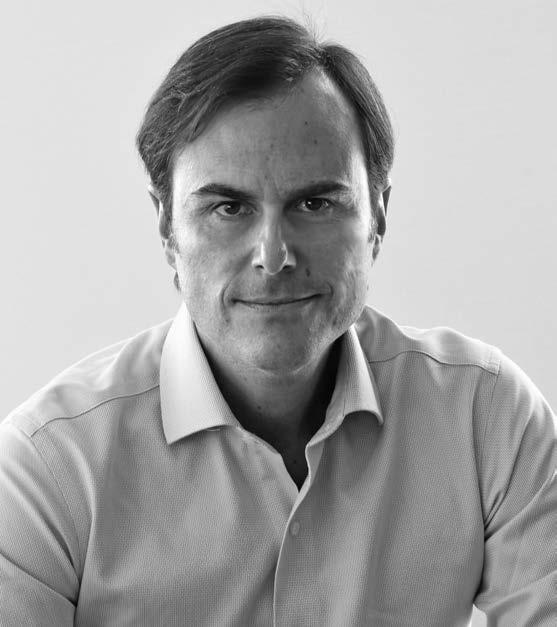
compared to 2024, driven by a substantial growth in volumes across its different channels. Terpel maintained its strong performance, with a significant contribution from the lubricants business. Abastible showed favorable commercial development in all its geographies, along with important logistical efficiencies. Particularly noteworthy was the performance of Gasib in Spain, whose recent incorporation has exceeded initial expectations, consolidating a strategic commitment to internationalization.
In mining, Marcobre continues to show a solid operation, with competitive costs derived from good grades and the presence of by-products, in a favorable price environment for copper. This performance reaffirms the strategic value of Empresas Copec’s presence in key sectors.
The recent quarter revealed mixed dynamics in Empresas Copec's businesses, in a challenging international context defined by sector volatility. Consolidated EBITDA was slightly lower than in the previous quarter and the same period last year, a result that mainly reflects the performance of pulp, while other divisions showed signs of strength and continuity.
In the forestry business, Arauco faced a scenario of low pulp prices, a context that intensified following the announcement of tariffs by the US government, causing a pause in demand, with cautious buyers waiting for the uncertainties surrounding this issue to ease. This situation resulted in a drop in the company's total EBITDA compared to the previous year. In contrast, the timber business remained stable, with figures in line with historical averages, reaffirming the resilience of this segment.
The energy sector, meanwhile, continues to be a significant driver of growth. Our subsidiary Copec reported an increase in EBITDA _
One of the most significant milestones of the period has been the progress of the Sucuriú project, the most ambitious in the history of the Arauco subsidiary. Although its execution represents a considerable challenge in terms of resources, the Company's financial strength has been decisive in its approval. Empresas Copec has historically maintained a policy of financial prudence, with clear debt limits and specific actions in the event of tighter scenarios. This discipline has been acknowledged by the markets, as shown by the successful placement of a corporate bond, which recorded a demand well above the amount offered and one of the lowest corporate spreads of the year. Along the same lines, Fitch Ratings recently confirmed Empresas Copec's local and international credit ratings at AA and BBB, respectively.
Sucuriú represents a unique opportunity to significantly increase the Company's scale: a plant of a size that implies high efficiencies, with one of the lowest construction costs per unit in the industry, located in a region of Brazil with exceptional forestry and logistical advantages. It is a project that combines significant economic value generation with environmental and social benefits, in line with Empresas Copec's long-term vision.
The coming years will be defined by three strategic focuses: flawless project execution, with top-tier suppliers and technical teams; cross-cutting financial discipline, allowing access to resources under optimal conditions; and maximization of the profitability of the existing businesses, to contribute from them to the financing of this major investment.
Thus, Empresas Copec continues to move forward with determination, caution, and a vision of the future.
IN THE PHOTO: Rodrigo Huidobro Alvarado CFO at Empresas Copec.

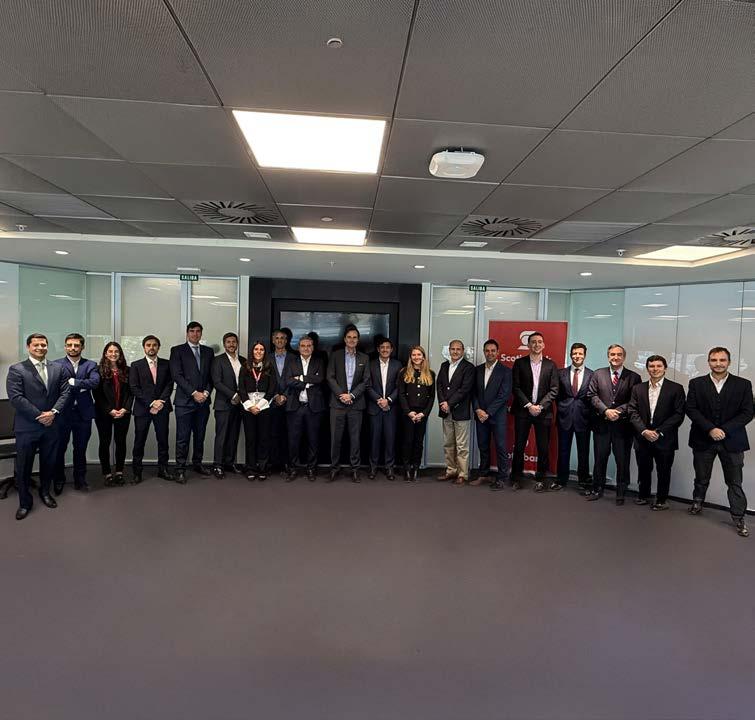
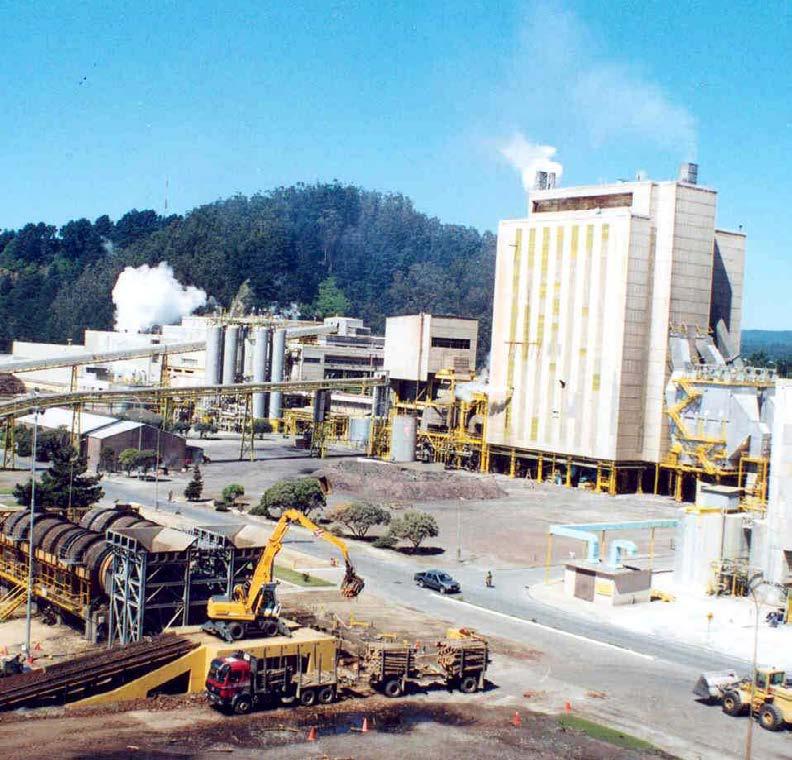
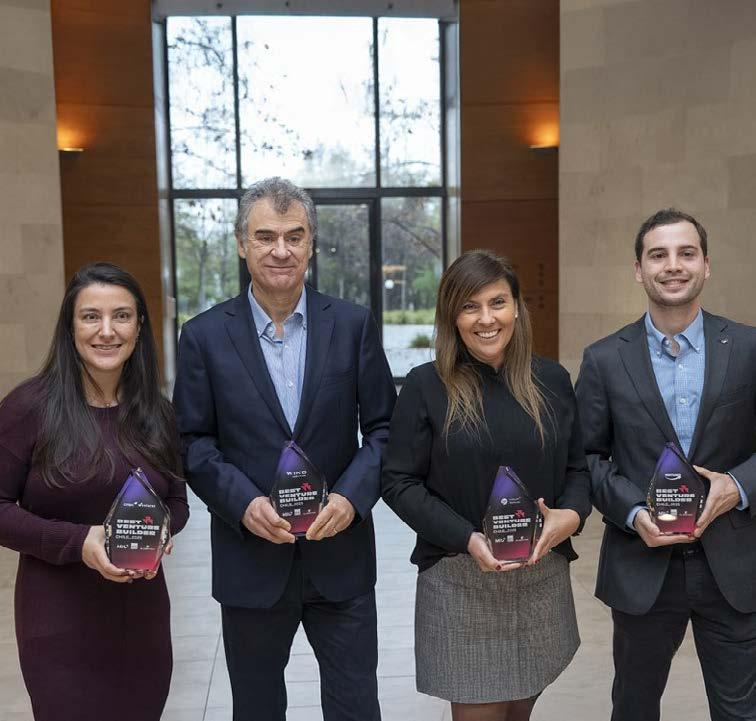
Roberto Angelini receives one of the highest honors of Italy read read
ARAUCO celebrates 50 years of its pulp mill in Constitución Empresas Copec successfully issues bond for UF 1.3 million read Copec leads again Corporate Venture Capital ranking in Chile read
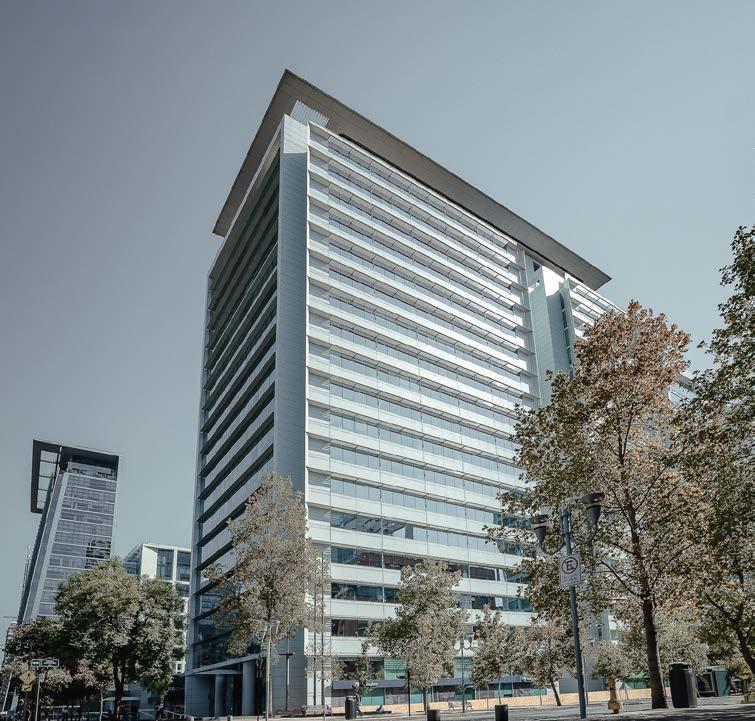

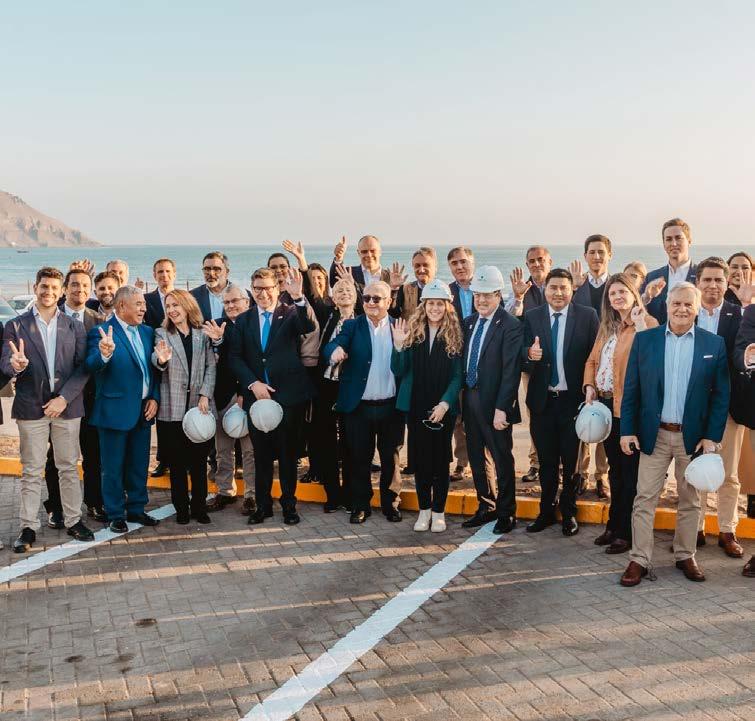
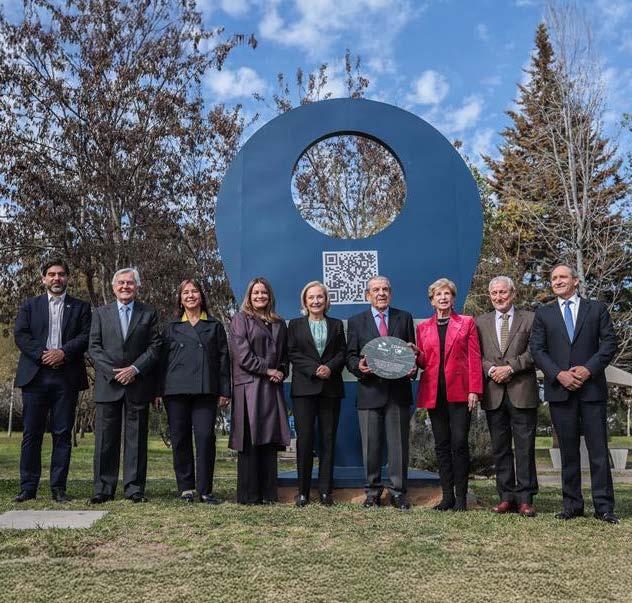
Empresas Copec and subsidiaries stand out in Citizen Brands ranking read
ARAUCO places sustainable bond for US$ 500 million read
Golden Omega promotes Omega-3 cluster in Arica read
Copec and MIM begin construction of South America's largest immersive space read
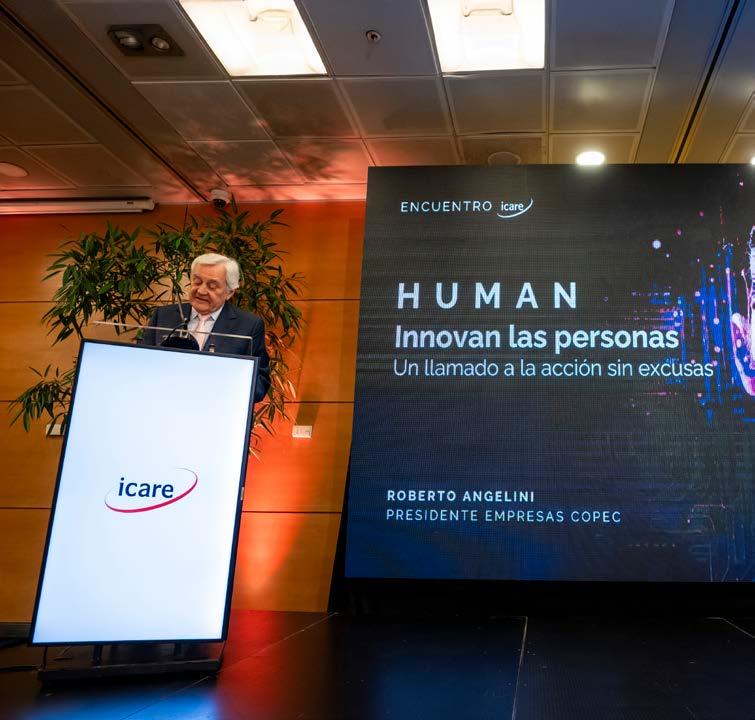


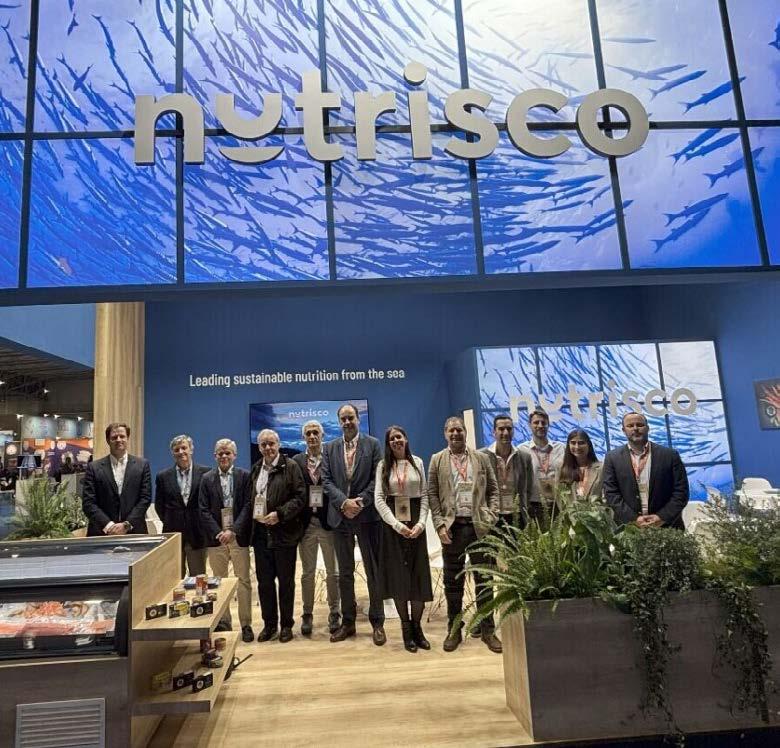
read Roberto Angelini at ICARE: “Innovation is an act of generosity towards future generations”
ARAUCO is the first forestry company in Chile and the second in Latin America to become a TNFD Adopter
Copec consolidates fast charging network across all regions of Chile
Nutrisco and Caleta Bay strengthen joint operations in the US read
read
read
Roberto Angelini receives one of the highest honors of Italy
empresas copec’s chairman was named “cavaliere del lavoro 2025,” for his outstanding lifetime achievement.
Roberto Angelini was acknowledged with the title “Cavaliere del Lavoro 2025,” one of the highest honors awarded by the Italian Republic to figures in the business world. The recognition was conferred by Italian President, Sergio Mattarella, to 25 businessmen who have stood out for their impeccable conduct and contribution to economic and social development.
The Company’s chairman was the only foreign resident awarded this year, underlining the exceptional nature of his business contribution and his enduring ties with Italy.
Furthermore, he receives the award 20 years after his uncle Anacleto Angelini received it. “His vision, his ethics and his ability to create value in a sustainable way represent a valuable example,” said Valeria Biagiotti, Italian Ambassador to Chile.
Meanwhile, the Company’s chairman commented: “This recognition has a deep meaning for me and my family. I am grateful for this important distinction, which I hope not only recognizes a trajectory, but also fosters us to continue creating value from our roles.”
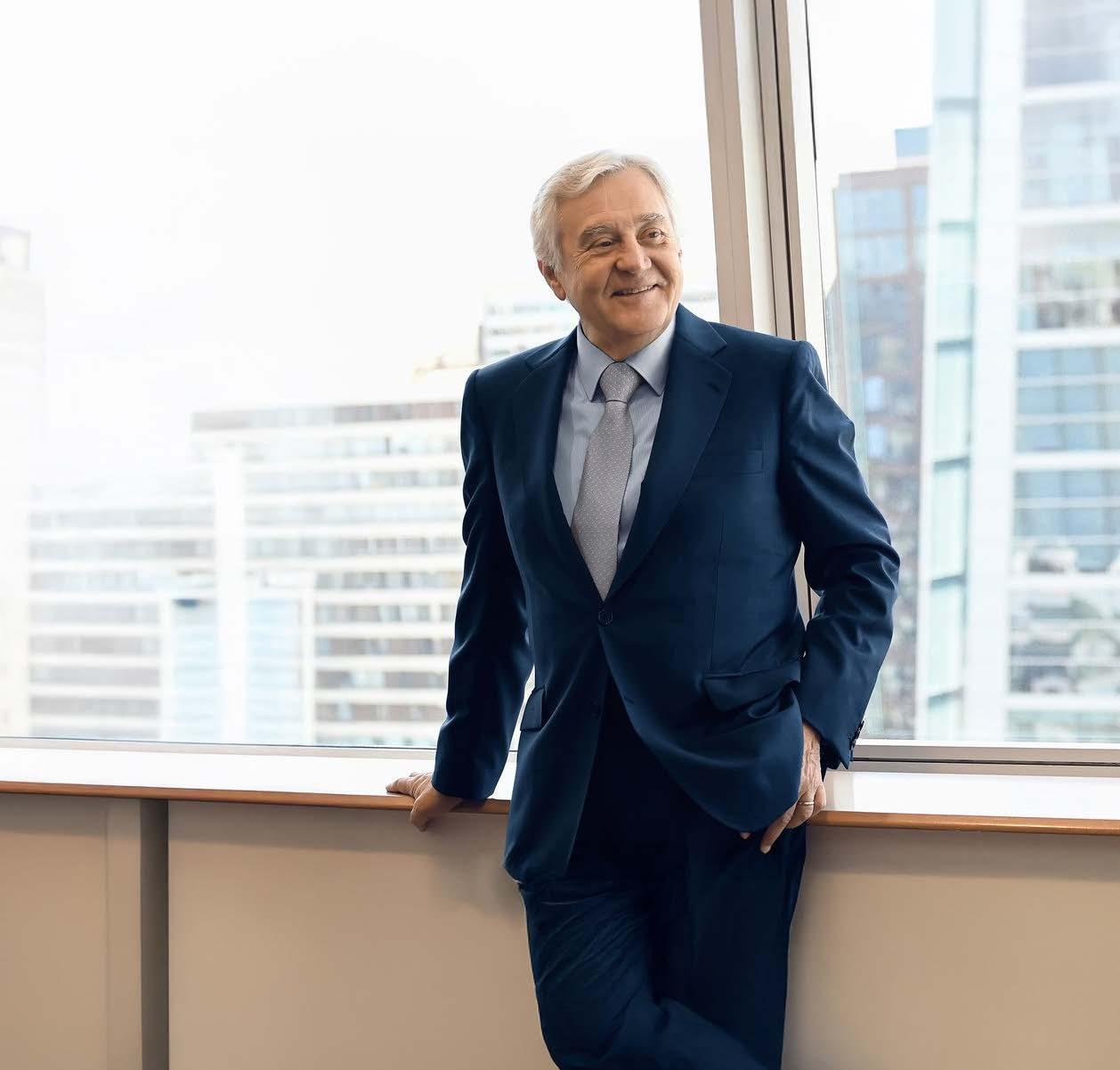

Empresas Copec successfully issues bond for UF 1.3 million
the funds will be used to refinance liabilities of the company and its subsidiaries.
Empresas Copec issued a new bond on the local market for UF 1.3 million, approximately US$ 54 million. The AM series instruments, with a maturity of 21 years, were placed at an interest rate of 3.40%, with a spread of 85 basis points and an AA risk rating from Feller Rate and Fitch Ratings.
The transaction was well received by investors, with demand reaching 1.8 times the amount offered.
At least 70% of the funds raised will be used to refinance short- and/or long-term liabilities of the Company and its subsidiaries.
Rodrigo Huidobro, Empresas Copec's CFO, said: “The high demand reflects confidence in our growth strategy, diversification, and track record, defined by responsible and sustainable financial management.”
ARAUCO celebrates 50 years of its pulp mill in Constitución
the facility has been key in the industrial and sustainable development of the maule region.
July saw the celebration of half a century since the start-up of the Constitución Mill, positioned as one of the most important industrial hubs in the Maule Region. Since 1975, it has promoted employment, innovation, and sustainability, with close ties to the local community.
Located between the mountains and the sea, the facility produces UKP unbleached pulp from pine grown in sustainable forests. The pulp is exported to different global markets and used in products such as packaging paper, cardboard, fiber cement, and special containers.
During the commemorative ceremony, Cristián Infante, ARAUCO’s CEO, said: “The Constitución Mill is the company’s oldest operating plant and a symbol of our evolution. It has been key in our transition from a local company to a global company, without ever losing our ties or pride in our origins in this beloved city.”
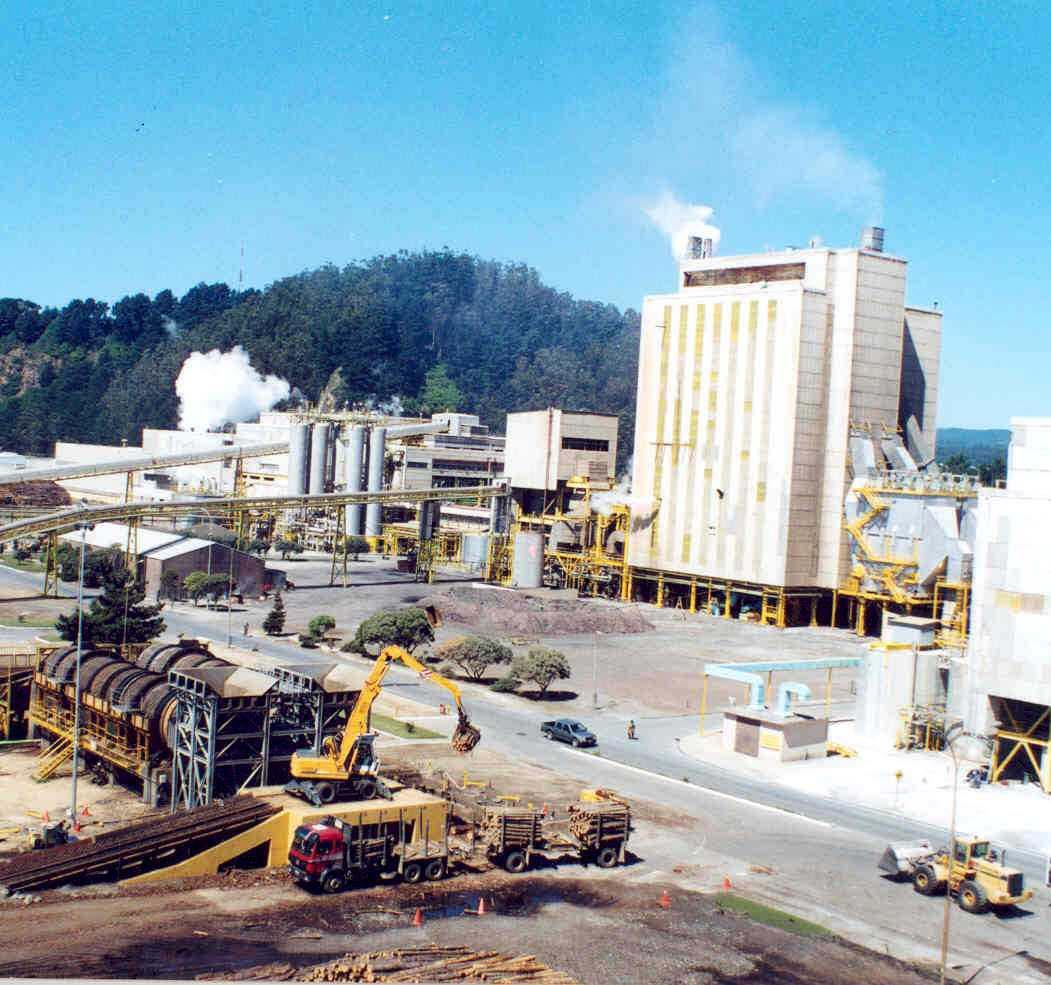
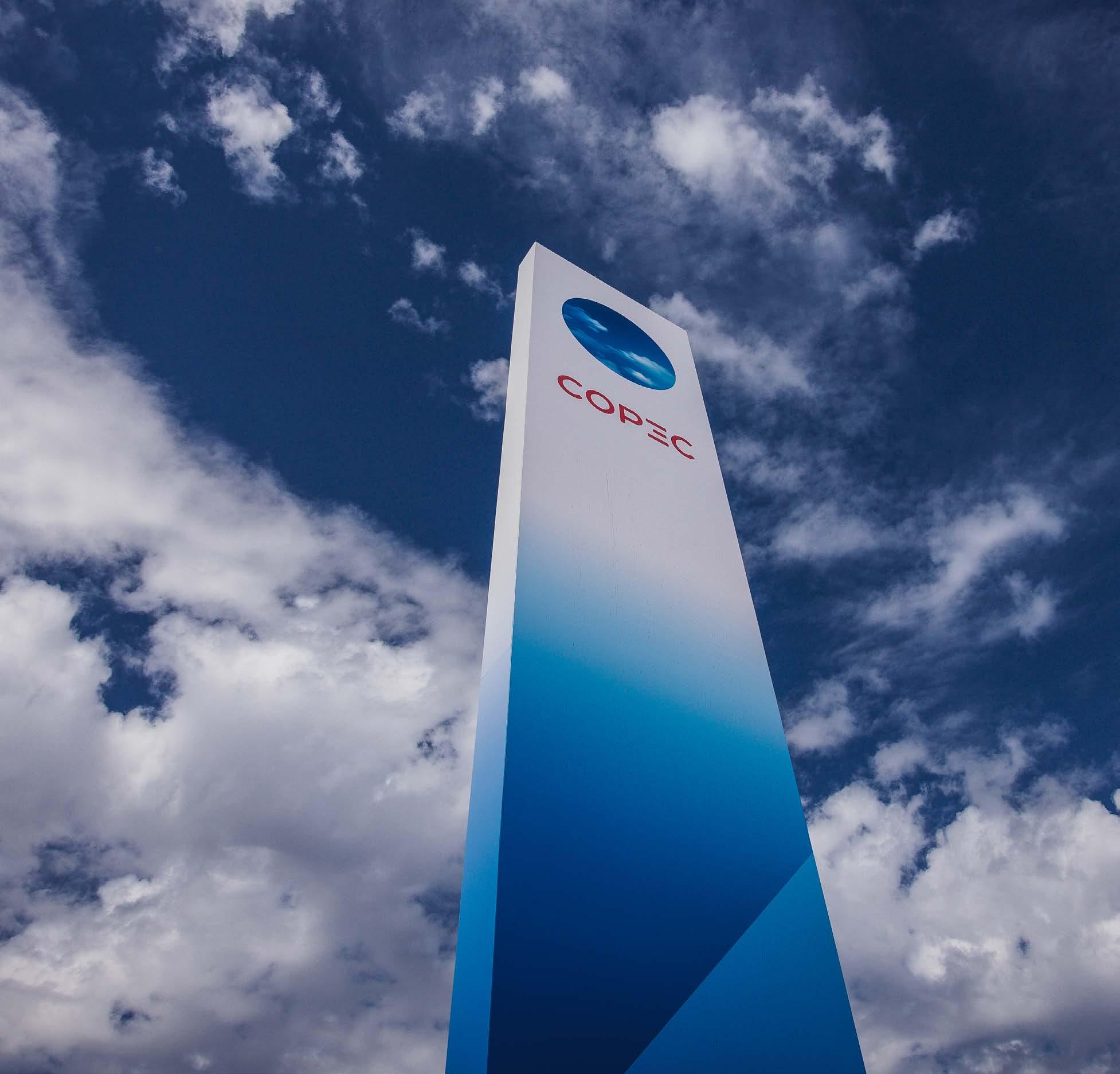
Copec leads again Corporate Venture Capital ranking in Chile
copec wind ventures and wind garage were acknowledged for their leadership and innovation.
For the third consecutive year, Copec’s innovation and new business platform, was distinguished by the Best Venture Builder Chile 2025 Ranking, developed by ESE Business School, MIC Innovation and El Mercurio.
Copec Wind Ventures won first place in the Corporate Venture Capital (CVC) category, while Copec Wind Garage was acknowledged as one of the best Venture Client (VC) programs.
The above highlights the subsidiary’s strategic work in collaborating with global and national startups, underscoring its leadership in the industry and its commitment to the state-of-the-art technology and sustainability of the country.
Empresas Copec and subsidiaries stand out in Citizen Brands ranking
copec and pronto lead in their categories, and group executives were recognized for promoting brands with purpose.
In the XVI edition of the Citizen Brands study by Cadem, Copec ranked fifth in the overall ranking and led the Service Station category. Pronto Copec, meanwhile, ranked first in Convenience Stores and 33rd overall.
Abastible ranked 67th, while Arauco reached the 82nd position, being one of the three companies that most improved its public perception. Likewise, Blue Express was ranked in 10th place in the “Innovative Capacity” category.
The study also distinguished executives who promote brands with purpose. Eduardo Navarro, Empresas Copec’s CEO, was acknowledged as one of the main promoters of Citizen Companies and Brands. Marcela Bravo, director at Arauco, and Arturo Natho, Copec’s CEO, were also acknowledged.
The study evaluated 325 brands in terms of their positive presence, relevance and contribution to society, highlighting those that manage to connect with people beyond their commercial offer.
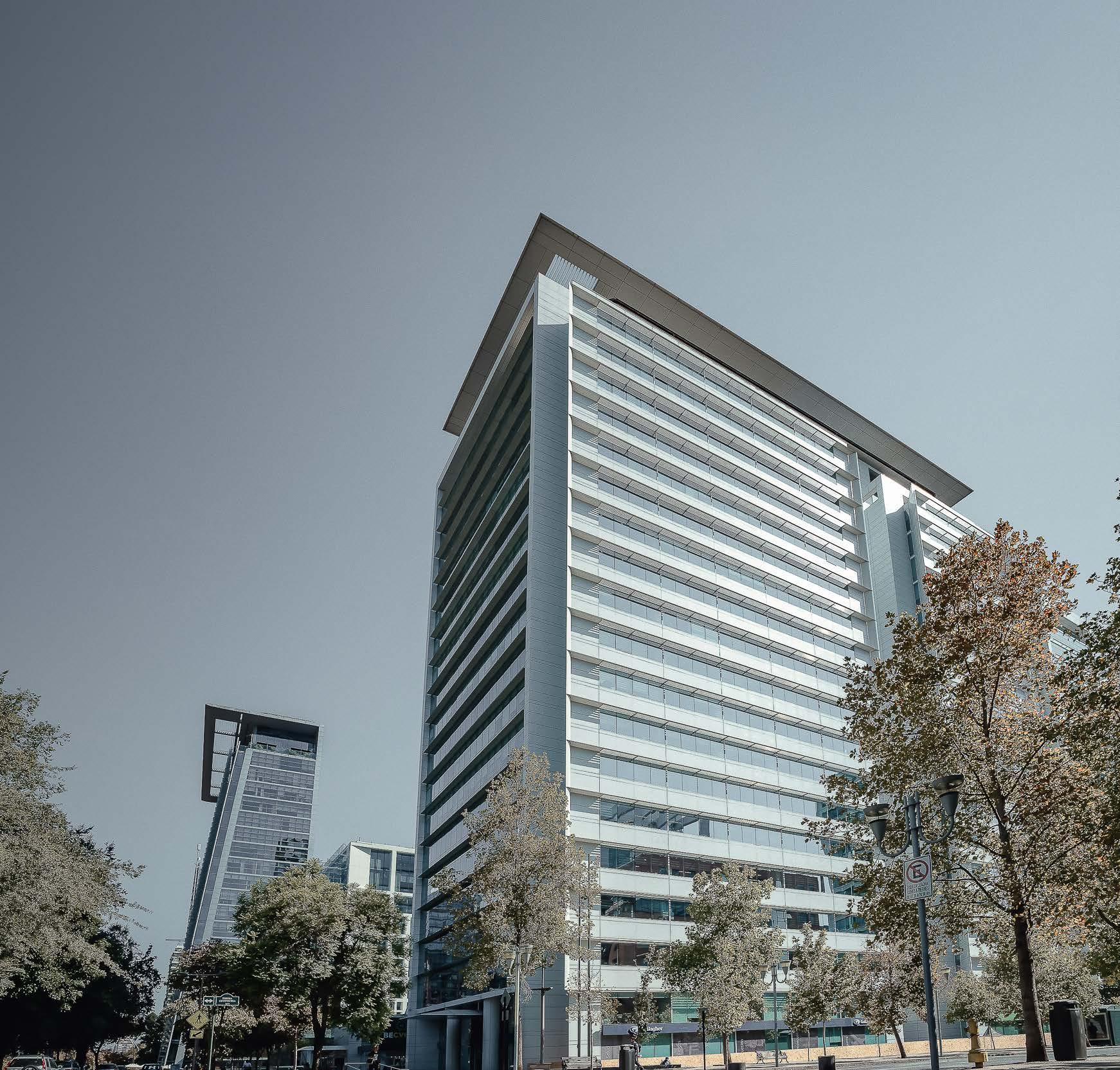

ARAUCO places sustainable bond for US$ 500 million
the funds will be used to finance green initiatives and the sucuriú project in brazil.
The forestry subsidiary issued US$ 500 million in sustainable bonds with a seven-year maturity and an annual rate of 6.18%. The transaction took place on April 30 and was led by JP Morgan, Scotiabank, Santander and Itaú BBA.
The sustainable bond category allows to allocate resources to projects with environmental and social benefits. In this case, the proceeds will be used for general corporate purposes, which might include partial financing of the Sucuriú project, currently under construction in Brazil.
In addition, ARAUCO plans to use part of the proceeds to finance or refinance green and social initiatives, in line with its Sustainable Financing Framework.
This operation reaffirms the subsidiary's commitment to sustainability and the implementation of financial instruments that promote a more responsible economy.
Golden Omega promotes Omega-3 cluster in Arica
the initiative aims to position this city as a global hub for omega-3 production.
With the support of CPC and its six trade associations, Golden Omega, together with Benexia, Condensa, and Newscience, launched the “Arica Capital of Omega-3” cluster, that aims to position Arica as a global strategic center for the production of essential fatty acids.
The initiative started as a collaborative effort between companies with presence in the northern city and common ties, highlighting a territorial synergy with a strong focus on innovation.
Currently, this joint effort generates an annual investment of US$4.8 million in goods, services, and patents, in addition to direct employment for nearly 400 people, contributing to local economic development and consolidating Arica as a productive hub in the north of the country.
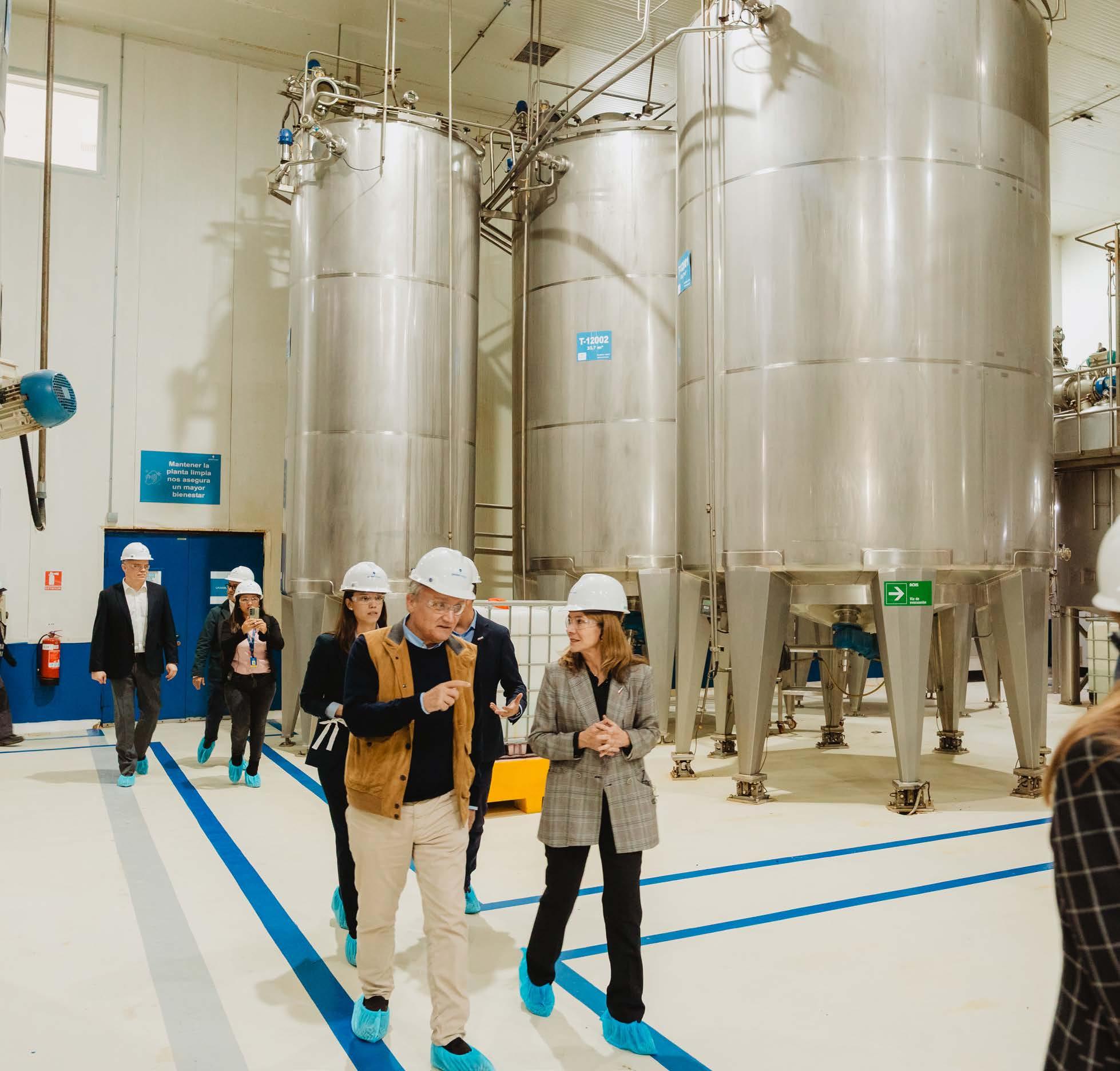
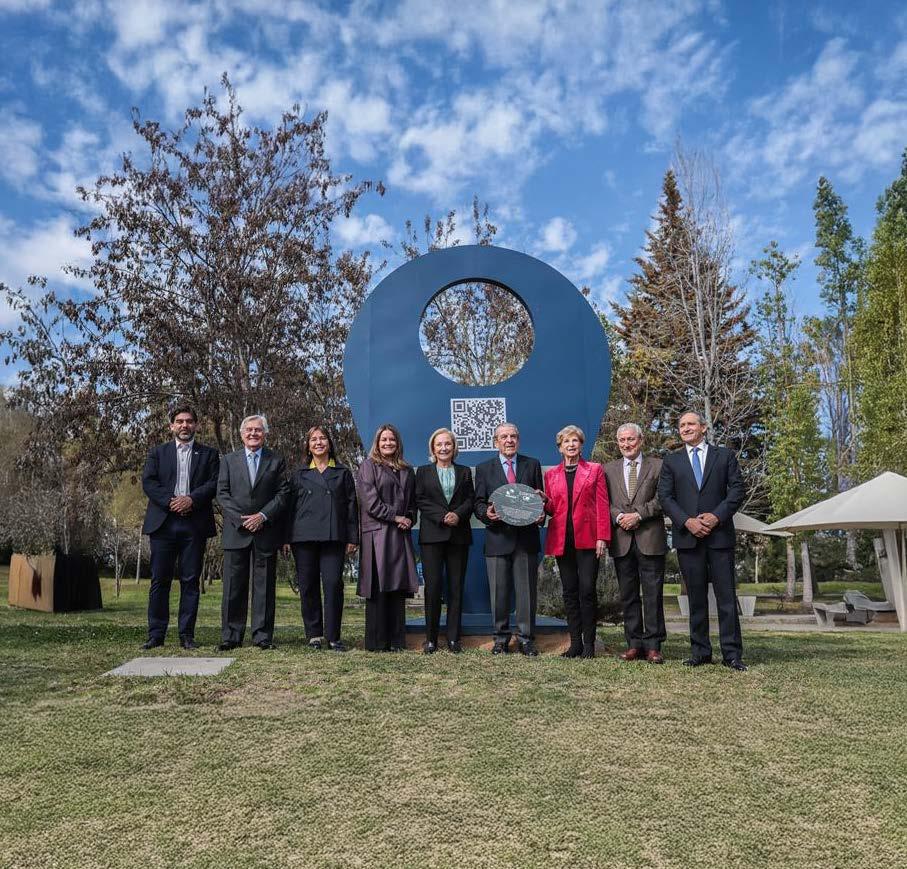
Copec and MIM begin construction of South America's largest immersive space
the project is scheduled to open in 2026 and will feature 4k technology and a capacity for 500 people.
As part of the 90th anniversary of Copec and the 25th anniversary of Museo Interactivo Mirador (MIM), both institutions laid the foundation stone of the largest and most modern immersive space in South America. The milestone was attended by former President Eduardo Frei; former first ladies and presidents of the Tiempos Nuevos Foundation, Marta Larraechea and Cecilia Morel; Minister of Science, Technology, Knowledge, and Innovation Aldo Valle; and Undersecretary of Culture and Arts Jimena Jara.
The structure will be 22 meters in diameter, 14 meters high, over 400 m² in size, and have a capacity for 500 people. Its design includes a micro-perforated aluminum screen optimized for FullDome projections, surround sound, and synchronized lighting, allowing for the simulation of the starry sky, the projection of educational content, and augmented reality experiences.
Arturo Natho, Copec's CEO, emphasized that the project “is the beginning of a new chapter where science, art, and technology come together to inspire future generations.”
Roberto Angelini at ICARE:
“Innovation is an act of generosity towards future generations”
empresas copec’s chairman spoke about the strategic value of innovation and its importance in the company’s history and projection.
As part of the event Human, Innovan las personas, held by ICARE’s Círculo de Innovación together with CORFO, Roberto Angelini stressed that “innovation is not synonymous with technology, but an attitude towards life,” underscoring its human and collective dimension. “To innovate is to imagine a better future and to have the courage to build it. It is not enough to manage the present: we have the responsibility to leave a better world to the next generations,” he said.
Empresas Copec’s Chairman also reviewed the specific experiences of subsidiaries such as Copec, Arauco, Abastible and Golden Omega, where innovation has been key to leading transformation processes, promoting new business models and moving towards a more sustainable development. He also highlighted initiatives such as the Copec-UC Foundation and the UC Anacleto Angelini Innovation Center as examples of virtuous collaboration between the private sector, academia and the State.
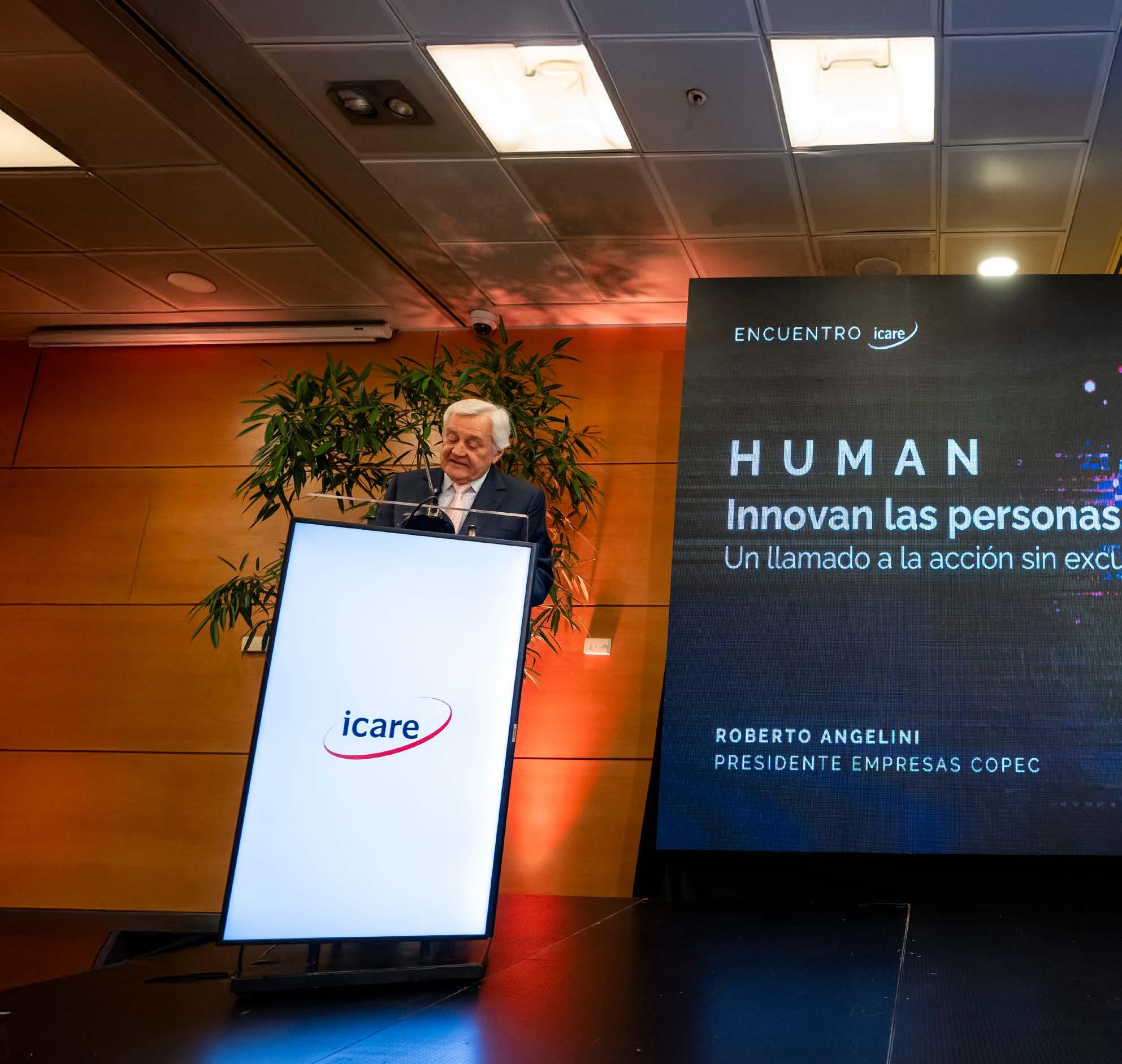

ARAUCO is the first forestry company in Chile and the second in Latin America to become a TNFD Adopter
in this way, the subsidiary committed to transparently reporting the risks and opportunities faced by its business regarding nature.
Being a Taskforce on Nature-related Financial Disclosures (TNFD) Adopter means publicly stating that nature is at the heart of strategic decisions, integrating it into the business model and the company's vision for sustainable growth.
“For us as a company, nature is not just another resource, it is the foundation on which we build our future and, therefore, this is another step in that direction, reaffirming that caring for nature is at the heart of our decisions and our way of growing,” explained Maria Soledad Vial, Head of Sustainability and Impact at ARAUCO.
The subsidiary thus joins companies such as Suzano, Upm, Oji, Daio Group, Smurfit Westrock, Nippon Paper Industries, Lenzing, Sumitomo Forestry, Hoketosu, Mercer Int, Cheng Long, Forico, Fedrigoni, Mayr-Melnhof Karton, West Fraser Timber, Forestry England, Sttg, and Greensphere Capital, which have already adopted this measure.
Copec consolidates fast charging network across all regions of Chile
with the installation of a new charging point in arica, the subsidiary completes its national presence and reinforces its leading position in electromobility in the country.
Developed by Copec Voltex, the new charging point is located at just 22 kilometers from the border with Peru, becoming the furthest north in Chile. Since the launch of its first public charger in 2012, the company has led the infrastructure for electromobility in Chile.
The subsidiary now has the longest continuous electric route in South America -over 2,200 kilometers between Copiapó and Castro- and the world’s southernmost charging point in Punta Arenas. In addition, it energizes more than 50% of the urban electric public transport in Chile.
“We completed our network’s presence in all regions of the country while reinforcing the goal of democratizing access to electromobility,” said Francis David, Copec Voltex’s commercial manager.

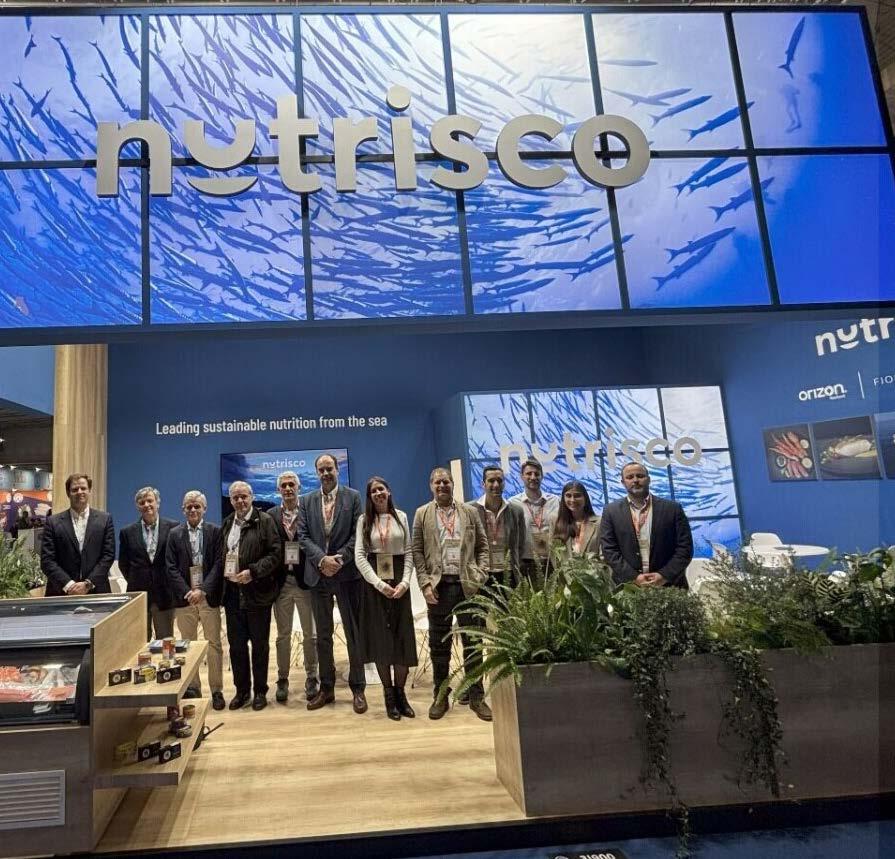
Nutrisco and Caleta Bay strengthen joint operations in the US
the alliance integrates the logistical and commercial capabilities of both companies to respond to the needs of retailers and end consumers.
The subsidiaries announced a strategic alliance to consolidate their presence in the United States and Canada by jointly managing their operations from Nutrisco's sales office in Miami.
The agreement seeks to offer more direct and efficient service to customers in the region by integrating logistics and commercial capabilities to meet the demands of retailers and end consumers.
The alliance combines Nutrisco's global infrastructure and portfolio -with operations in more than 60 countries- with Caleta Bay's expertise in aquaculture, specializing in rainbow trout. The joint portfolio will include products such as deep-sea seabass, king crab, stone crab, Australis hake, and jack mackerel, along with value-added alternatives tailored to international market trends.
journalistic magazine published by: empresas copec s.a.
150 el golf avenue, 17th floor, las condes. phone number: 22461 7000
legal representative: eduardo navarro
director: rodrigo huidobro
editing and writing: m. francisca riveros
journalists: natalia labbé isidora riesco daniela araneda marisol silva comsulting team
proofreading: norinna carapelle
photography: christian hamed image bank from empresas copec and subsidiaries image banks
design and graphic production: porta4, design studio
translation: cristina molina
if you have any suggestions and opinions, please send us an email at comunicaciones@empresascopec.cl
follow us:
www.empresascopec.cl
The opinions expressed by the different authors and contributors in this magazine are the exclusive responsibility of those who express them and do not necessarily represent the opinion of Empresas Copec S.A.
